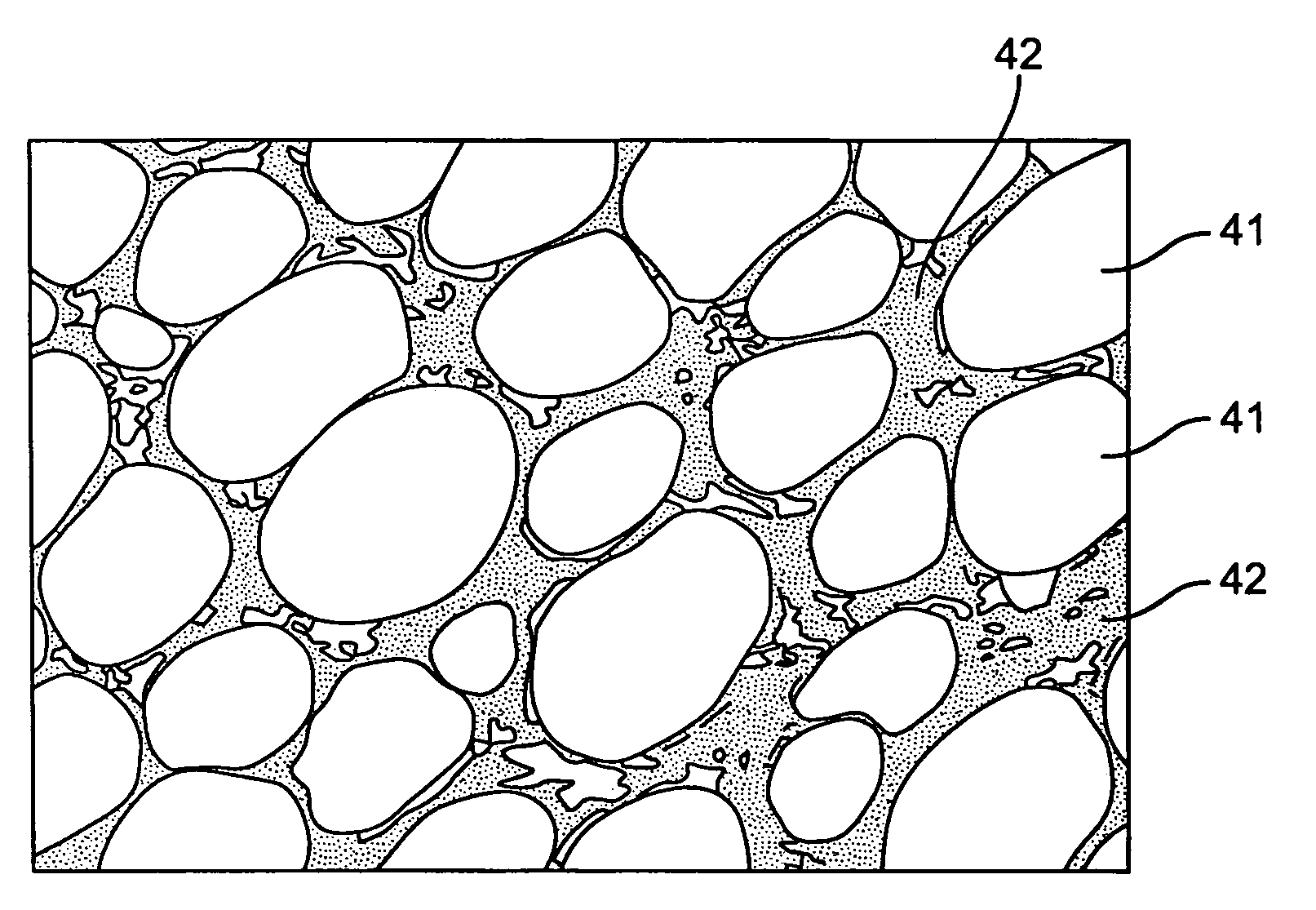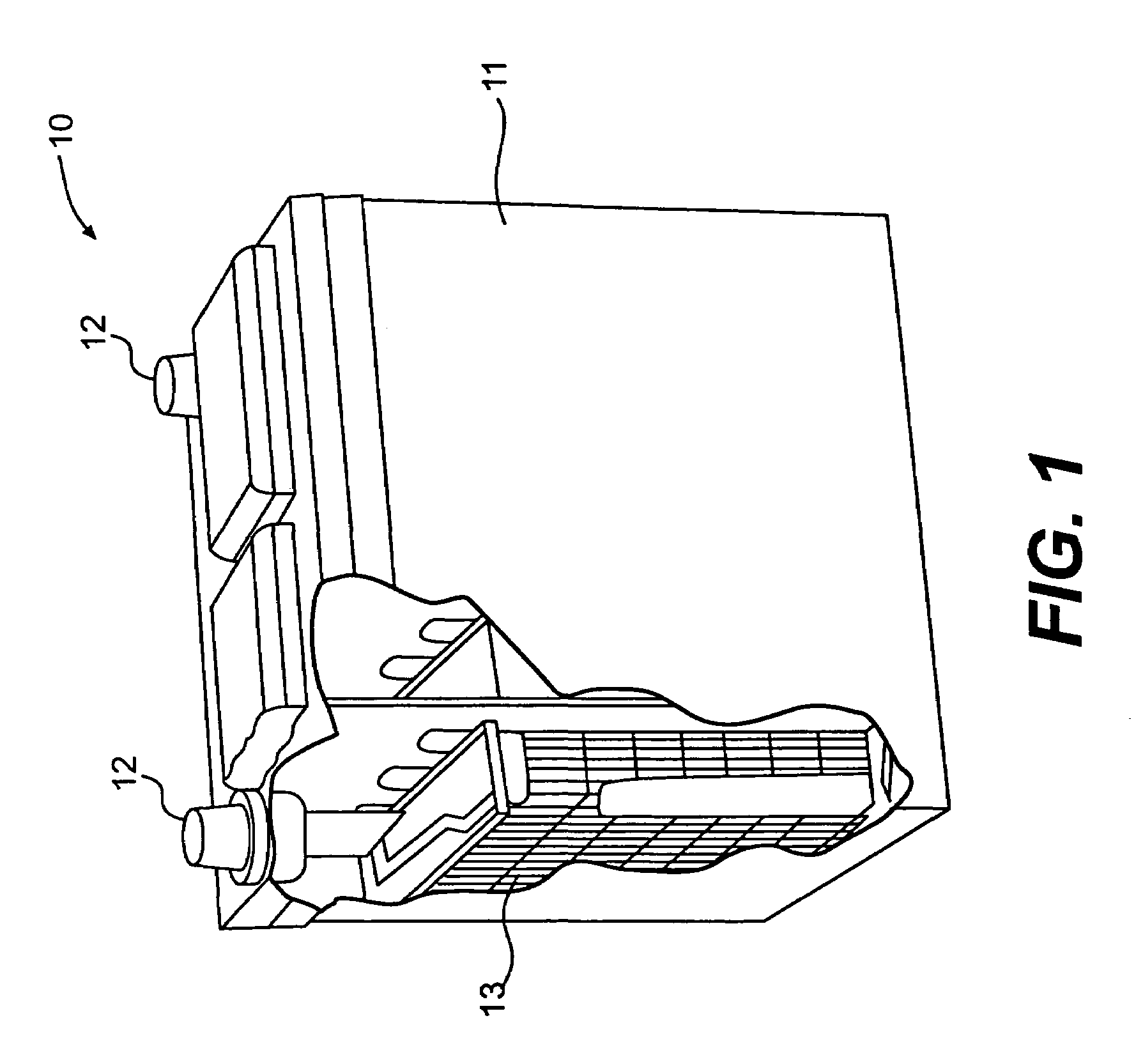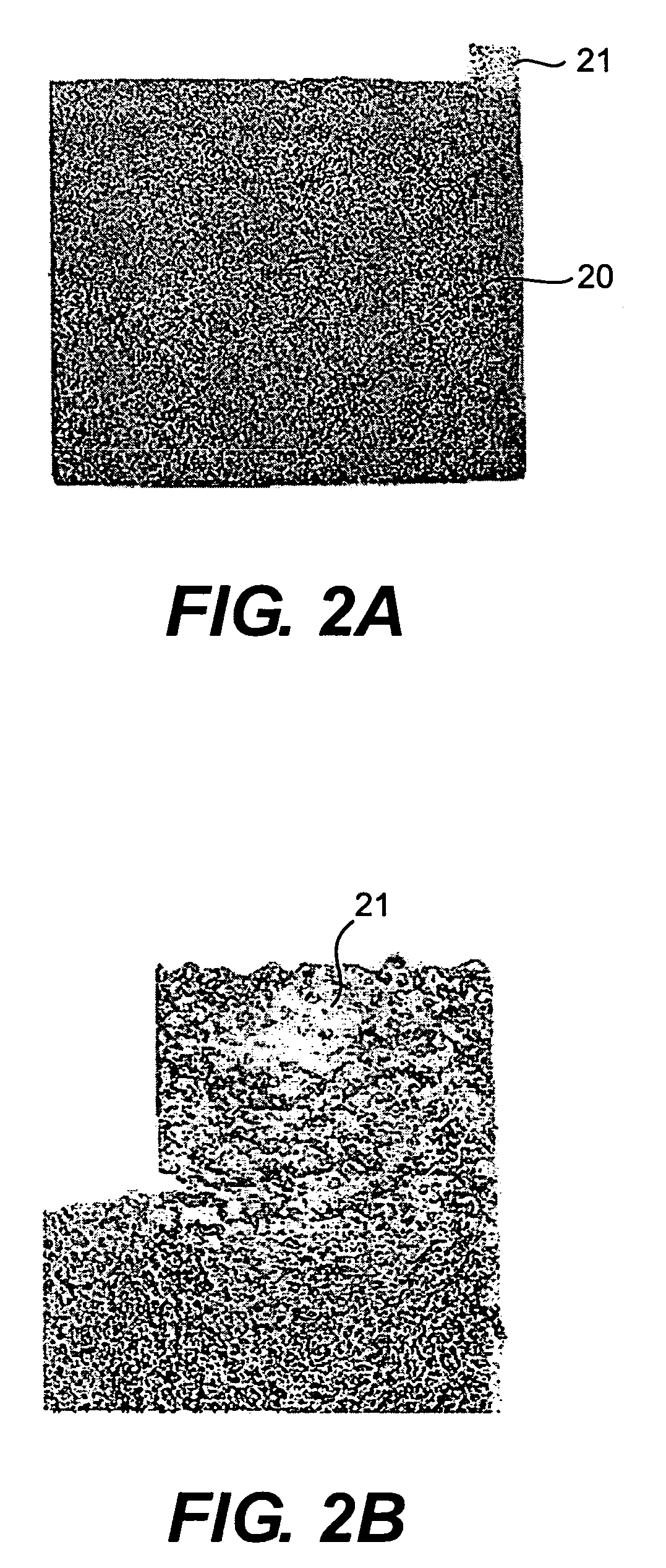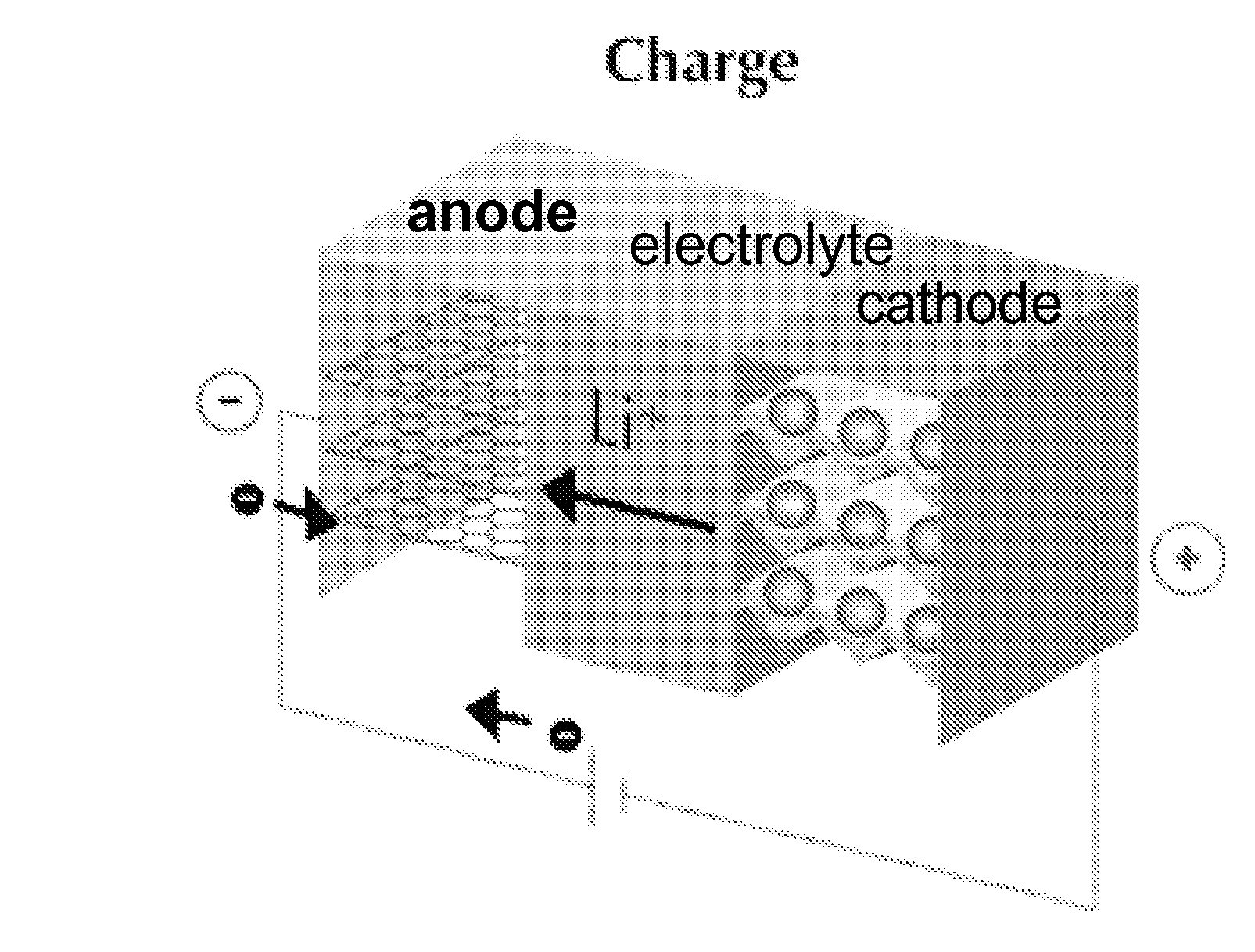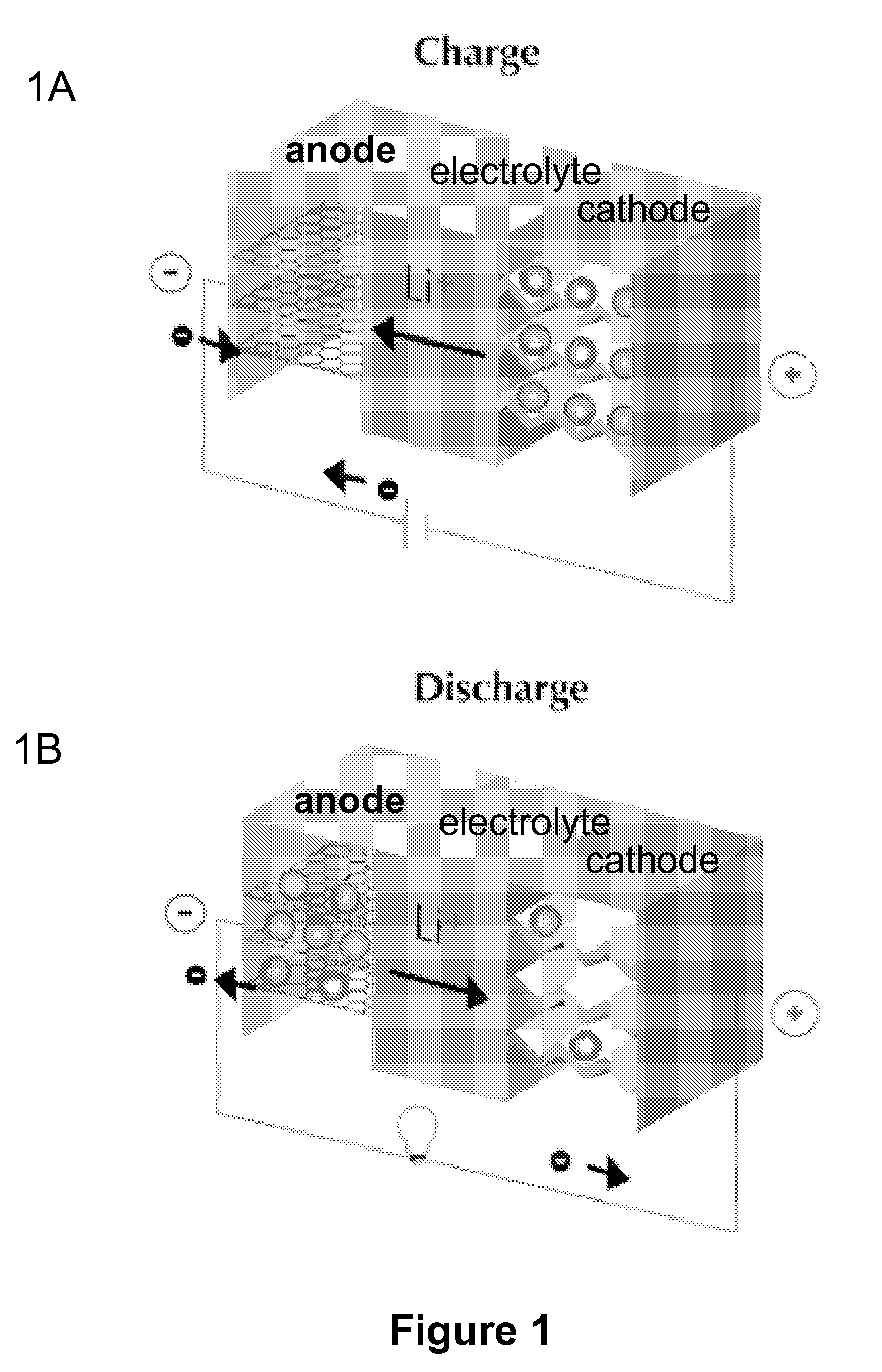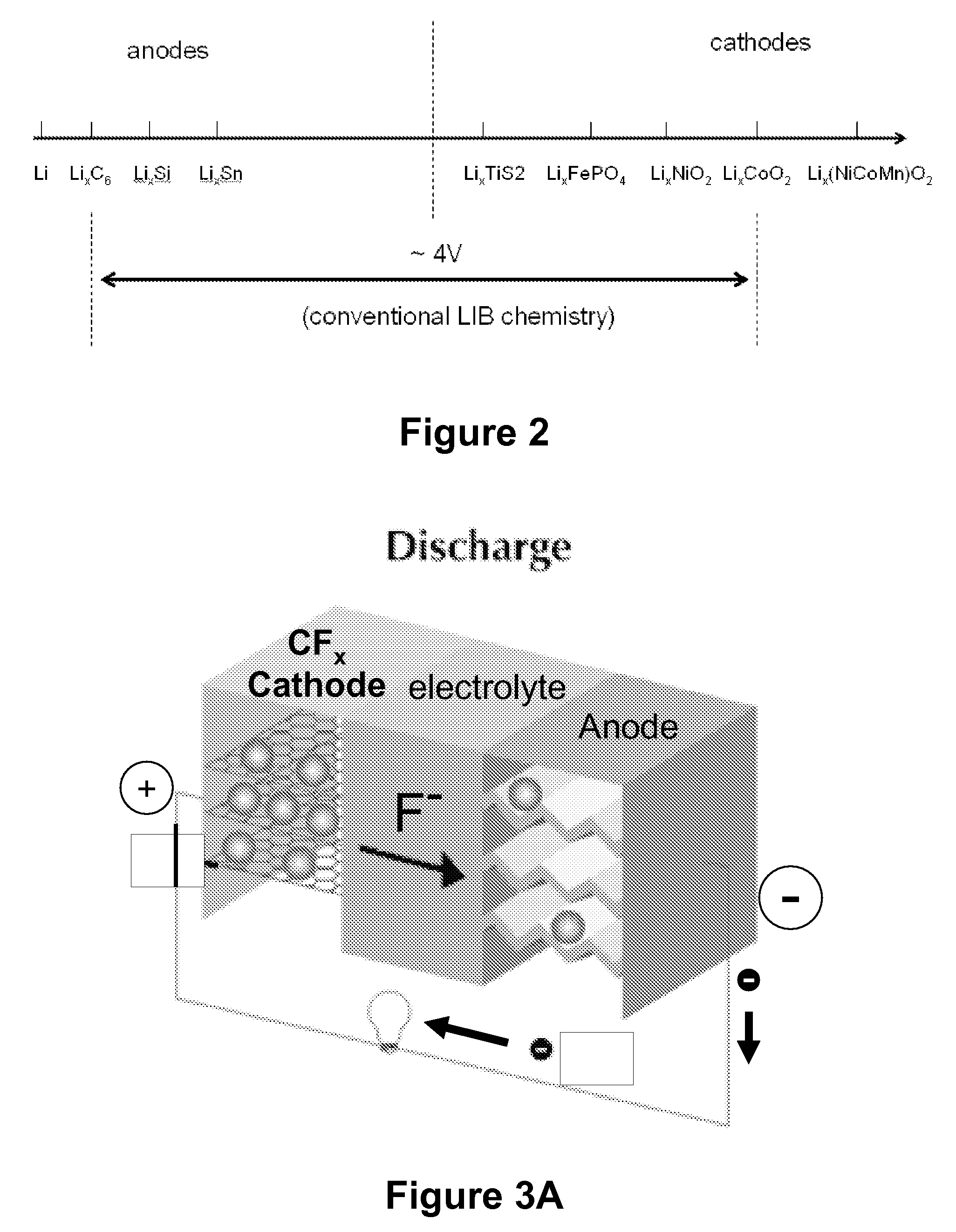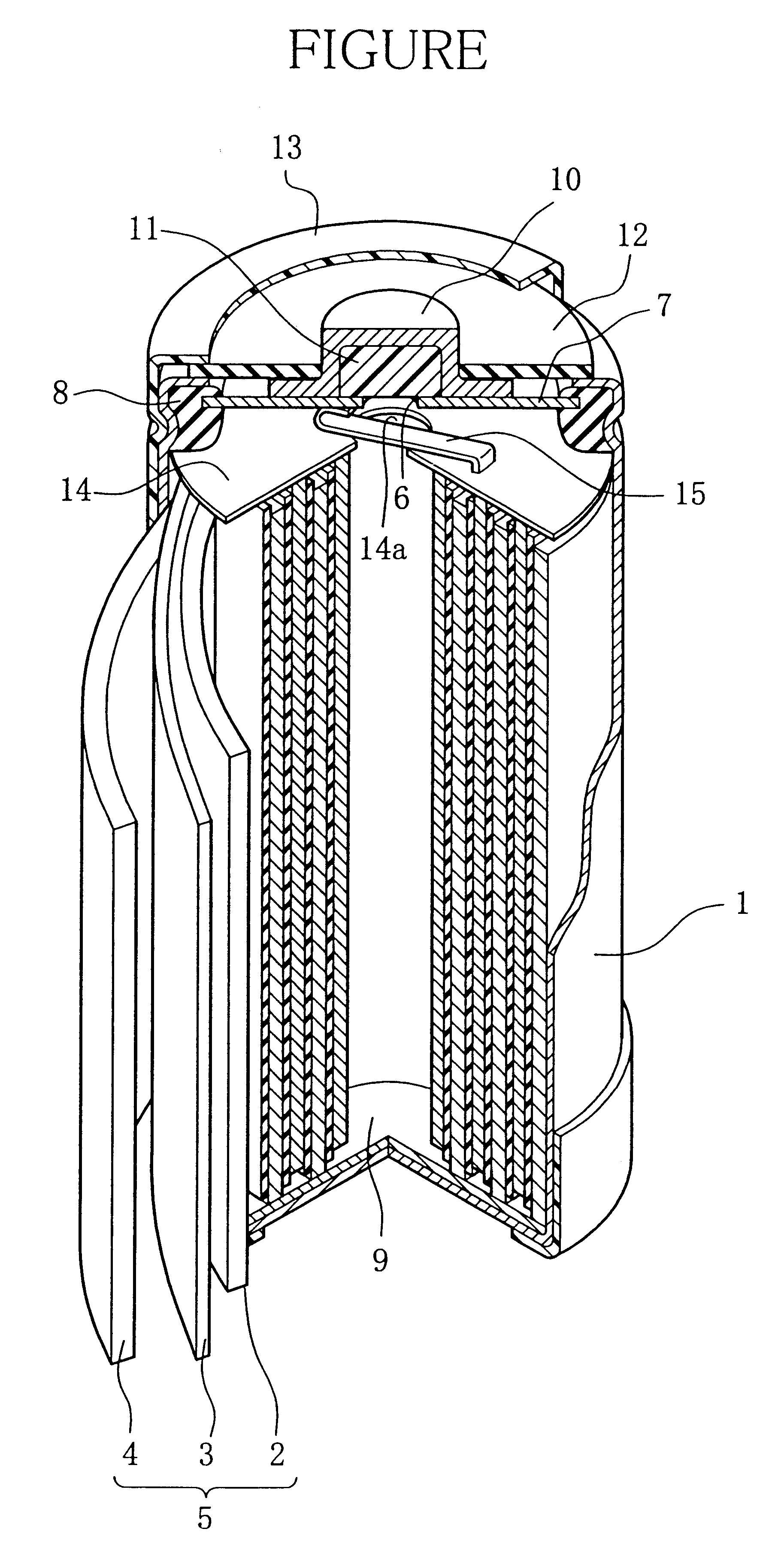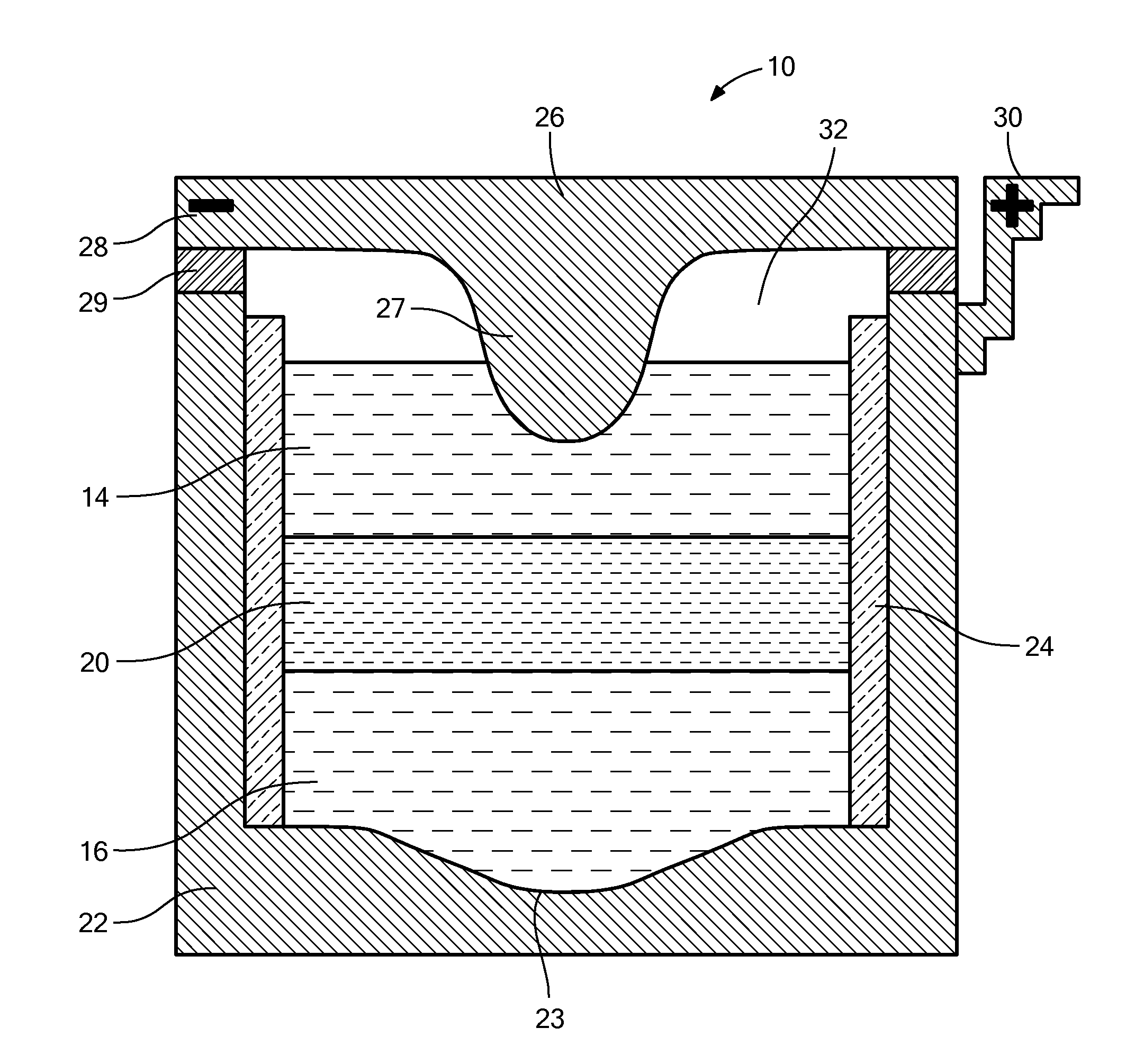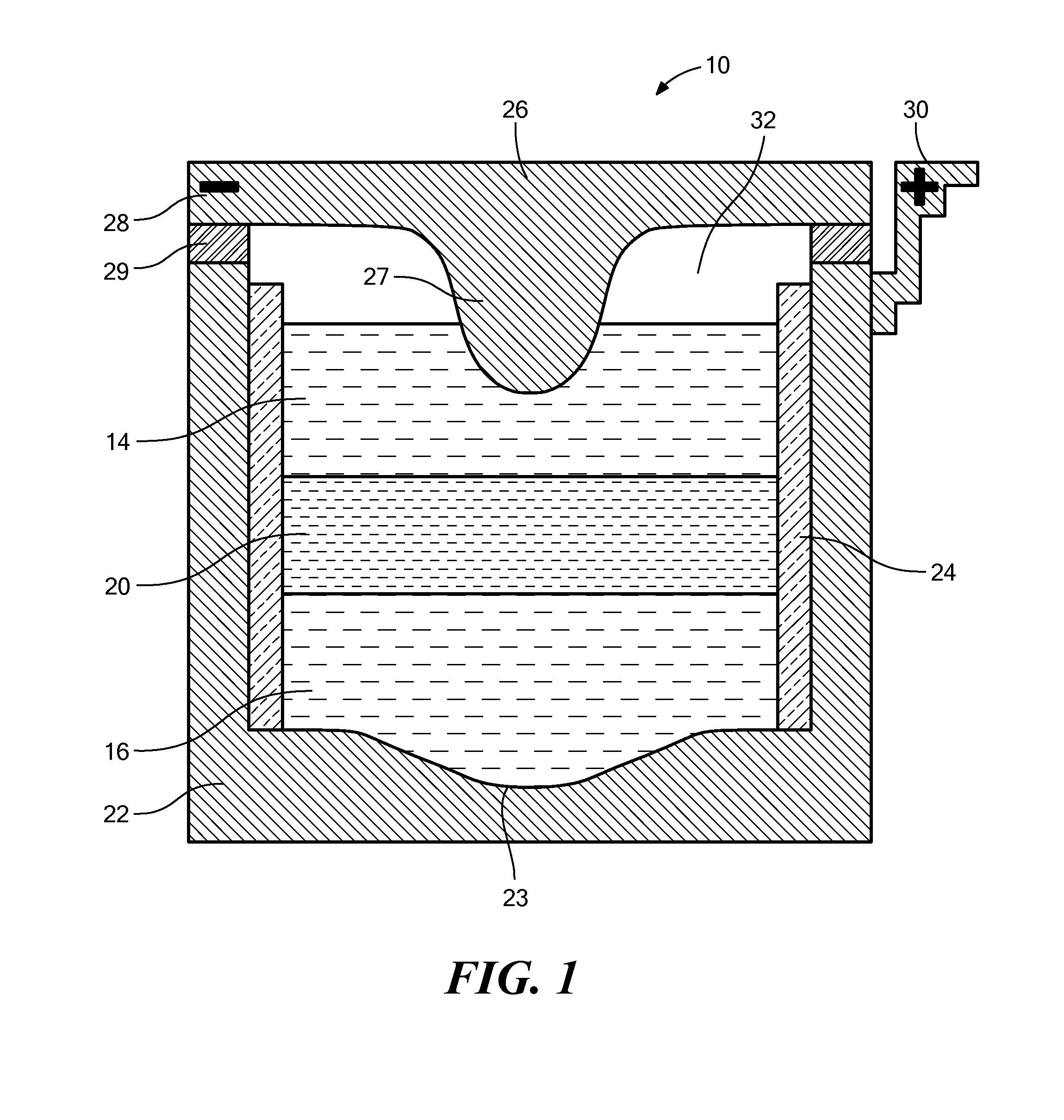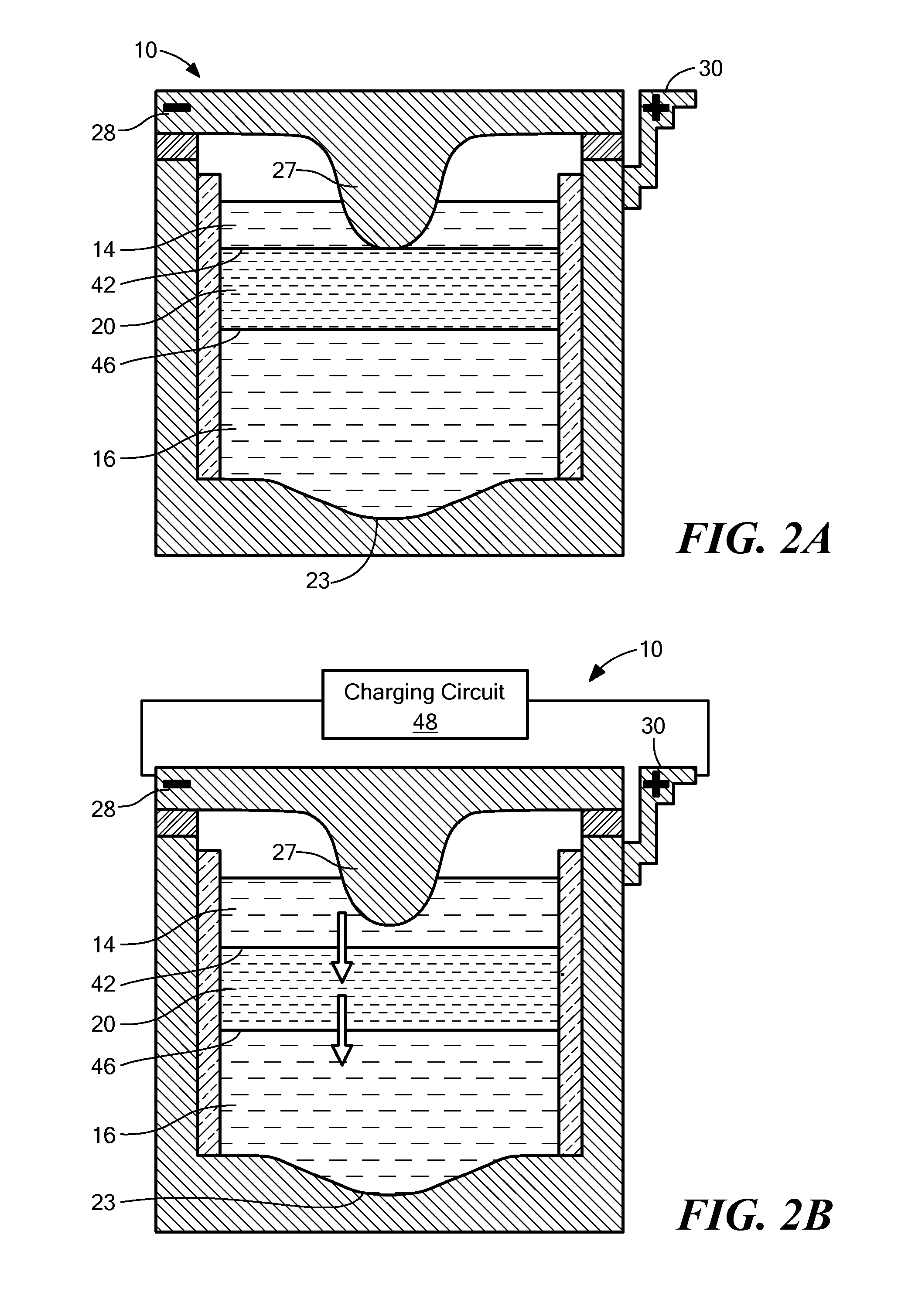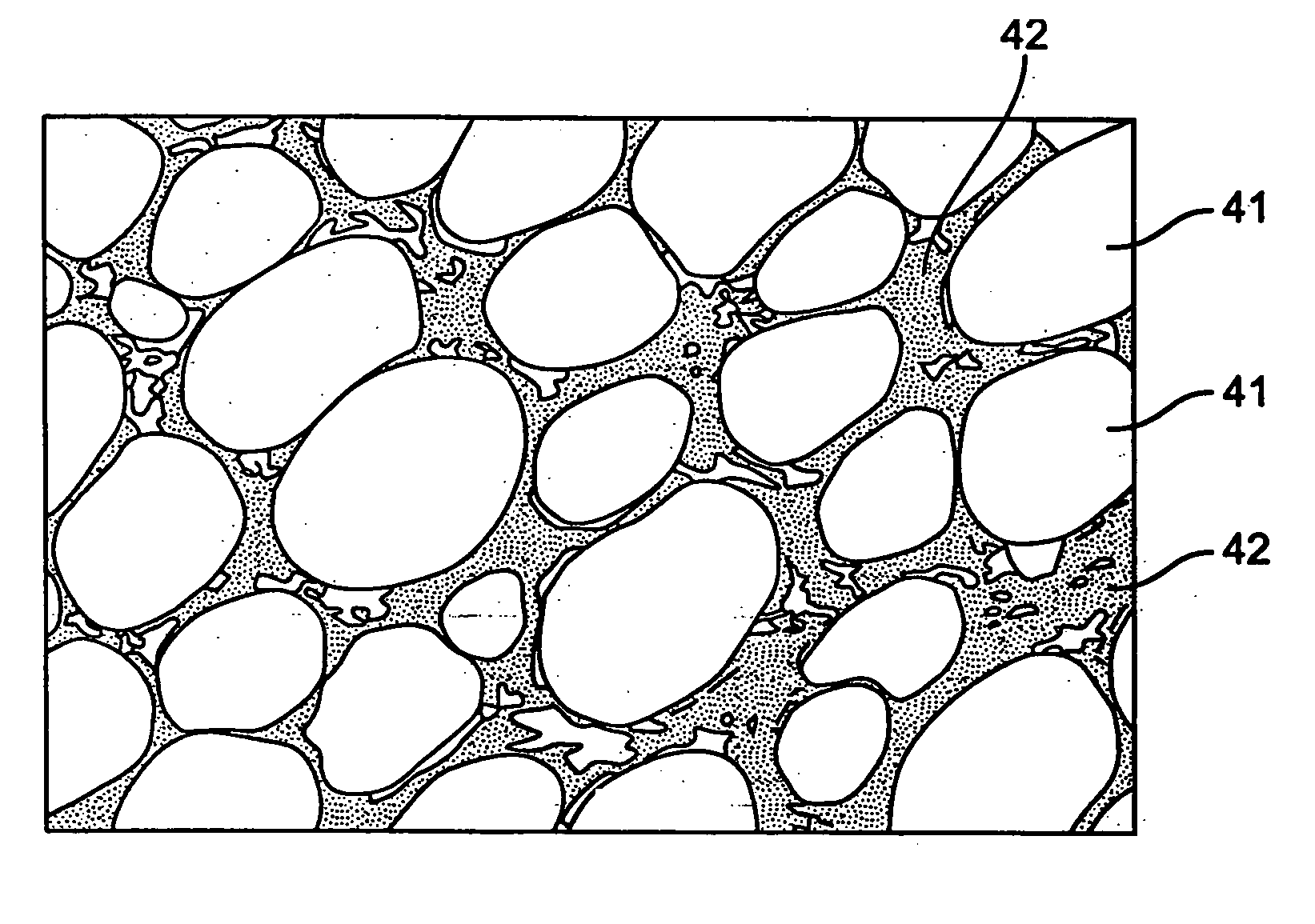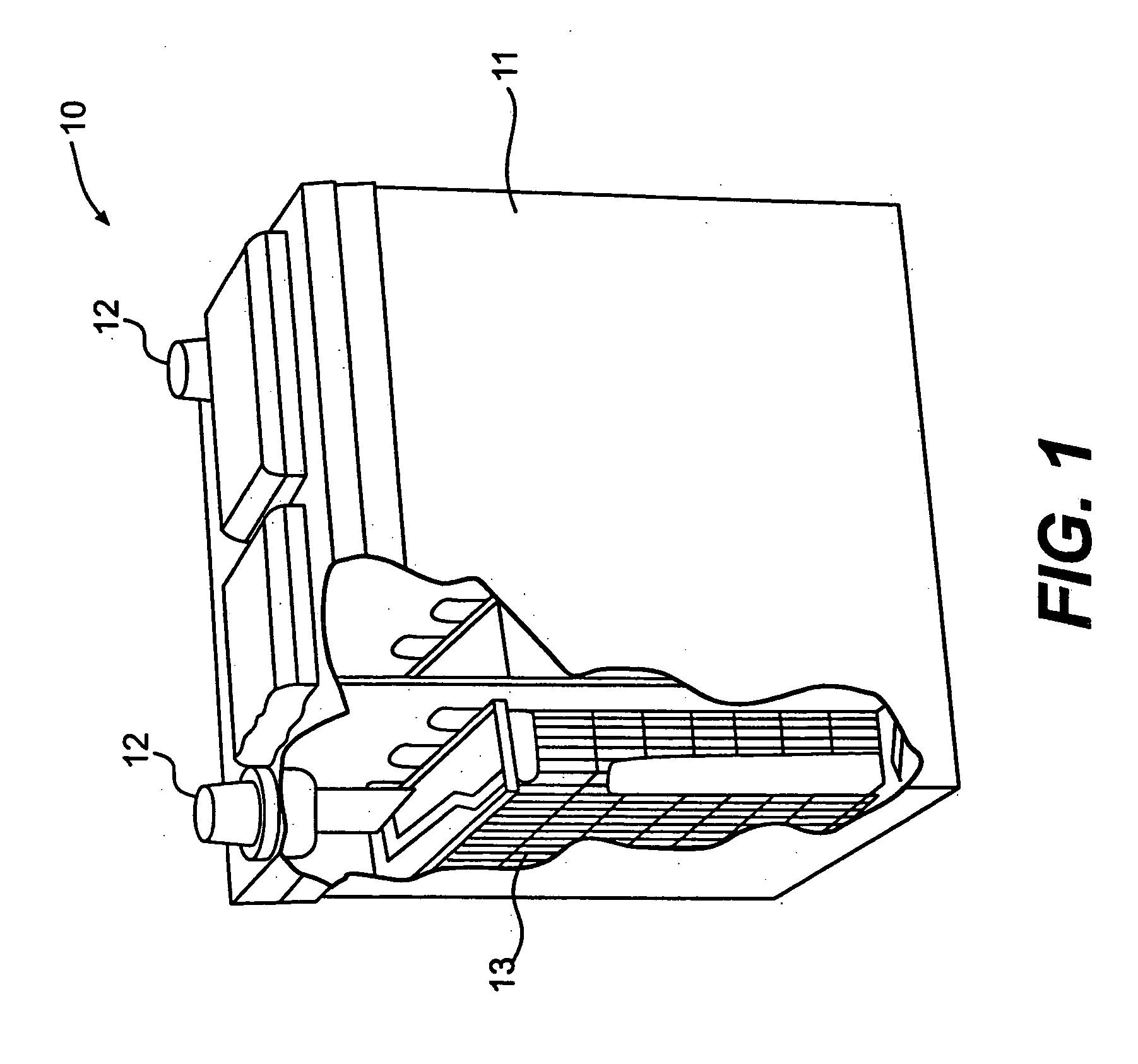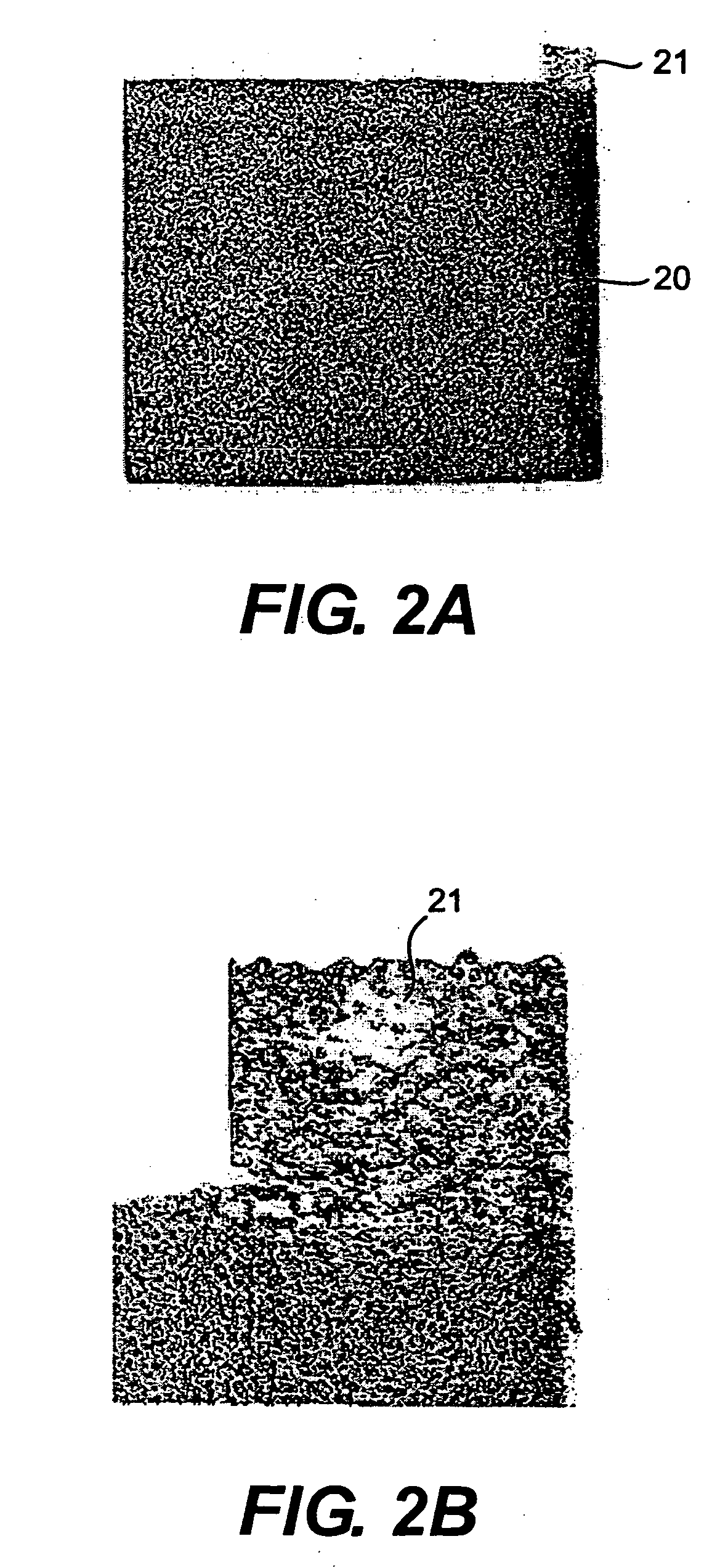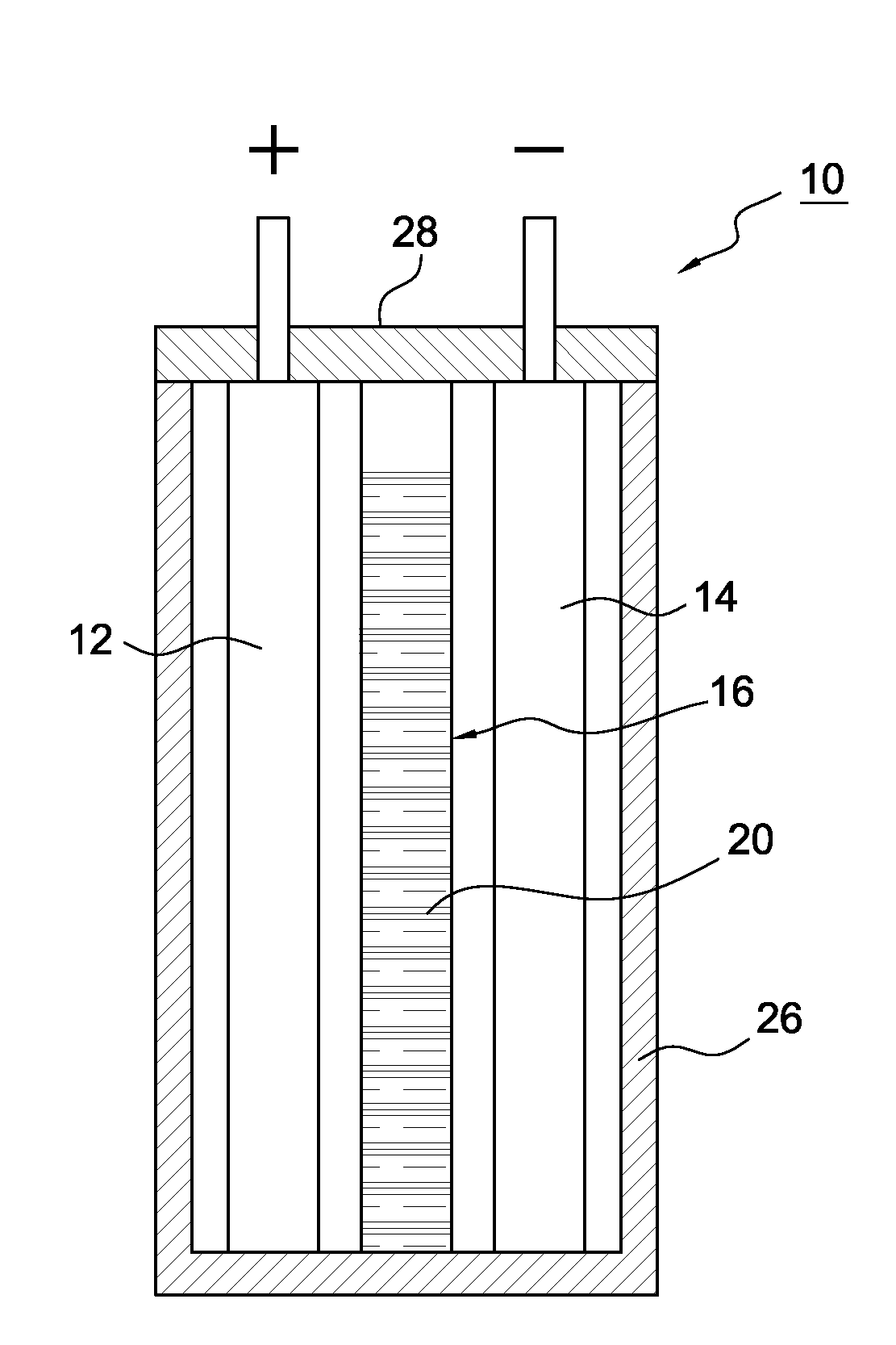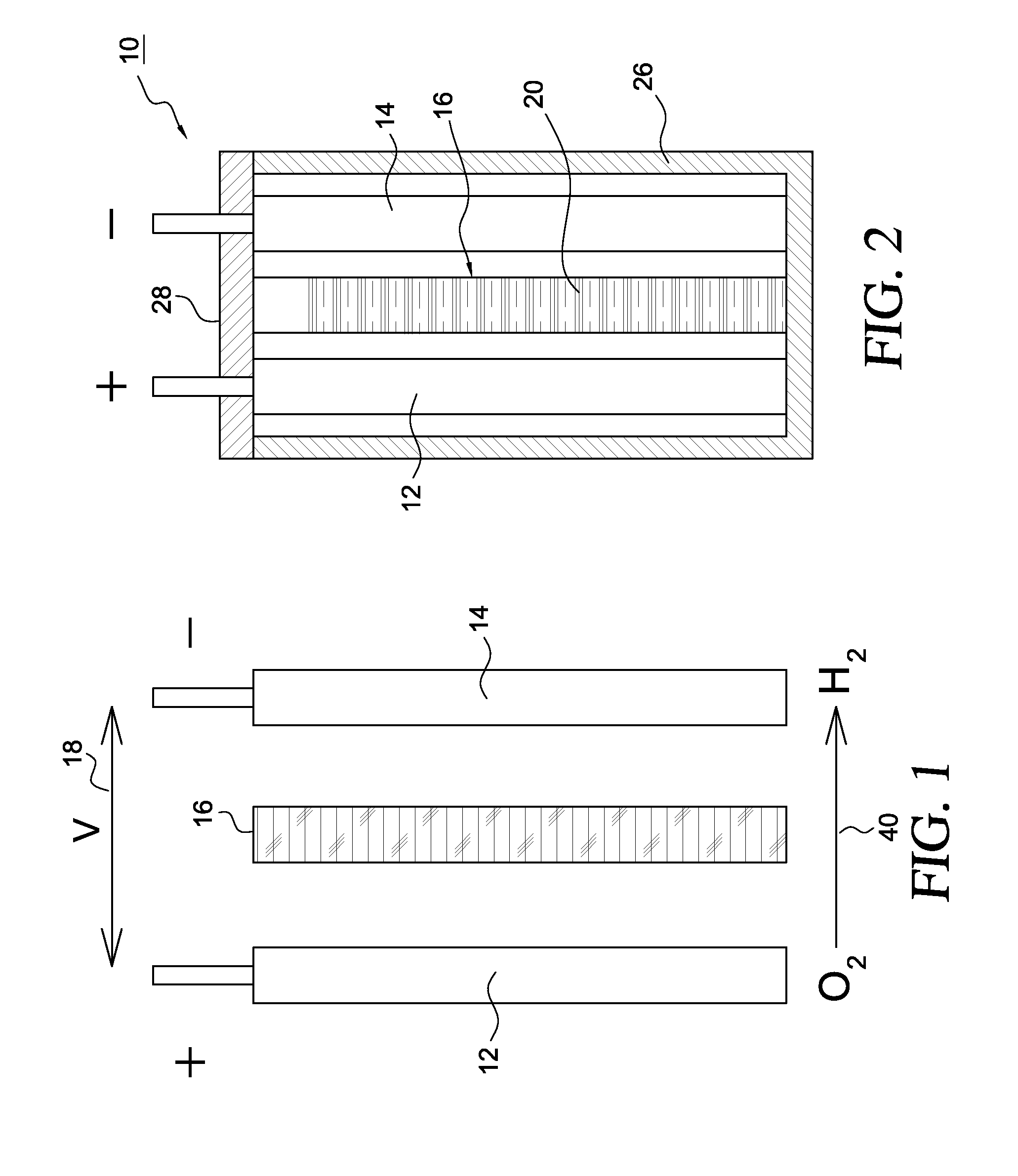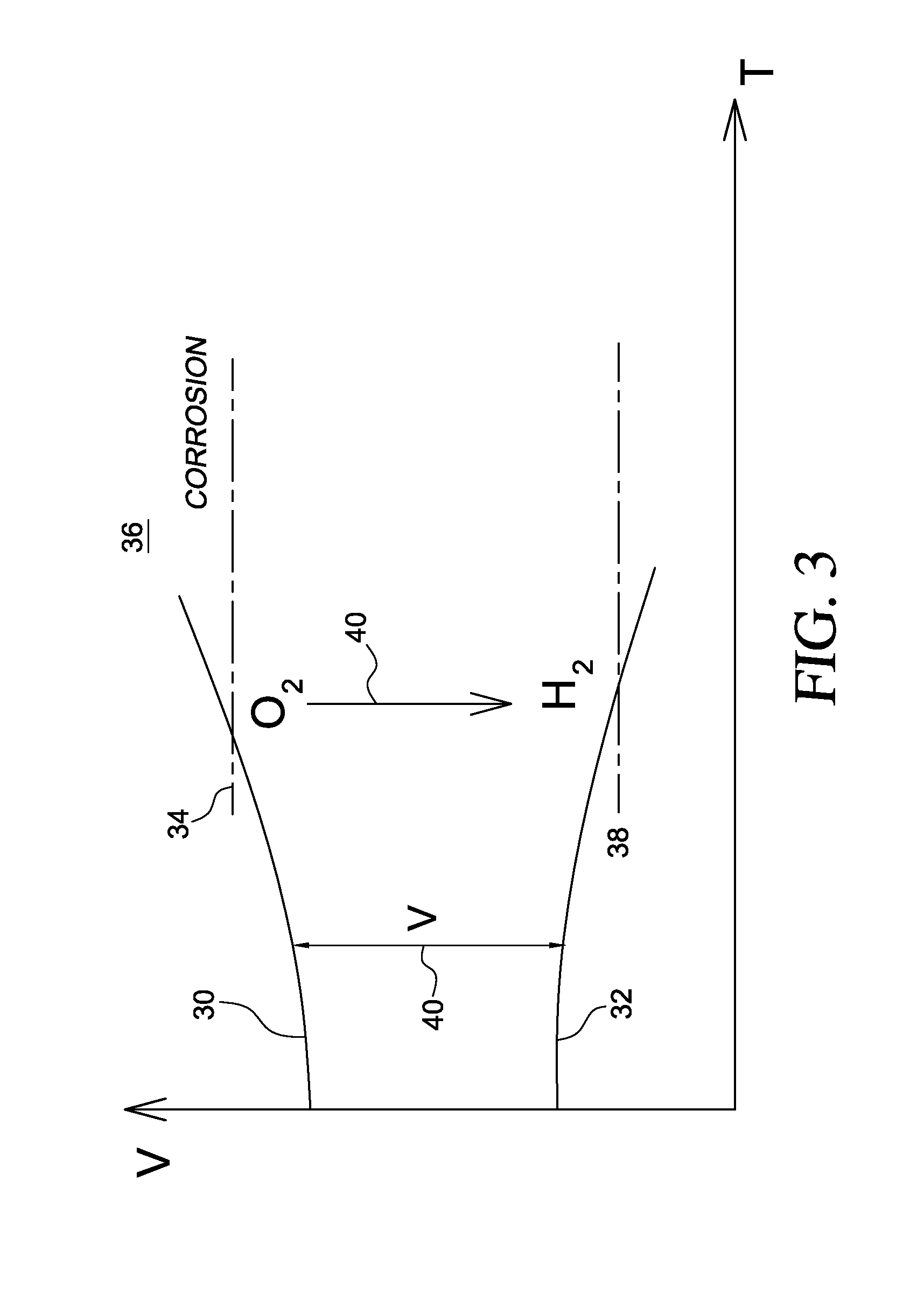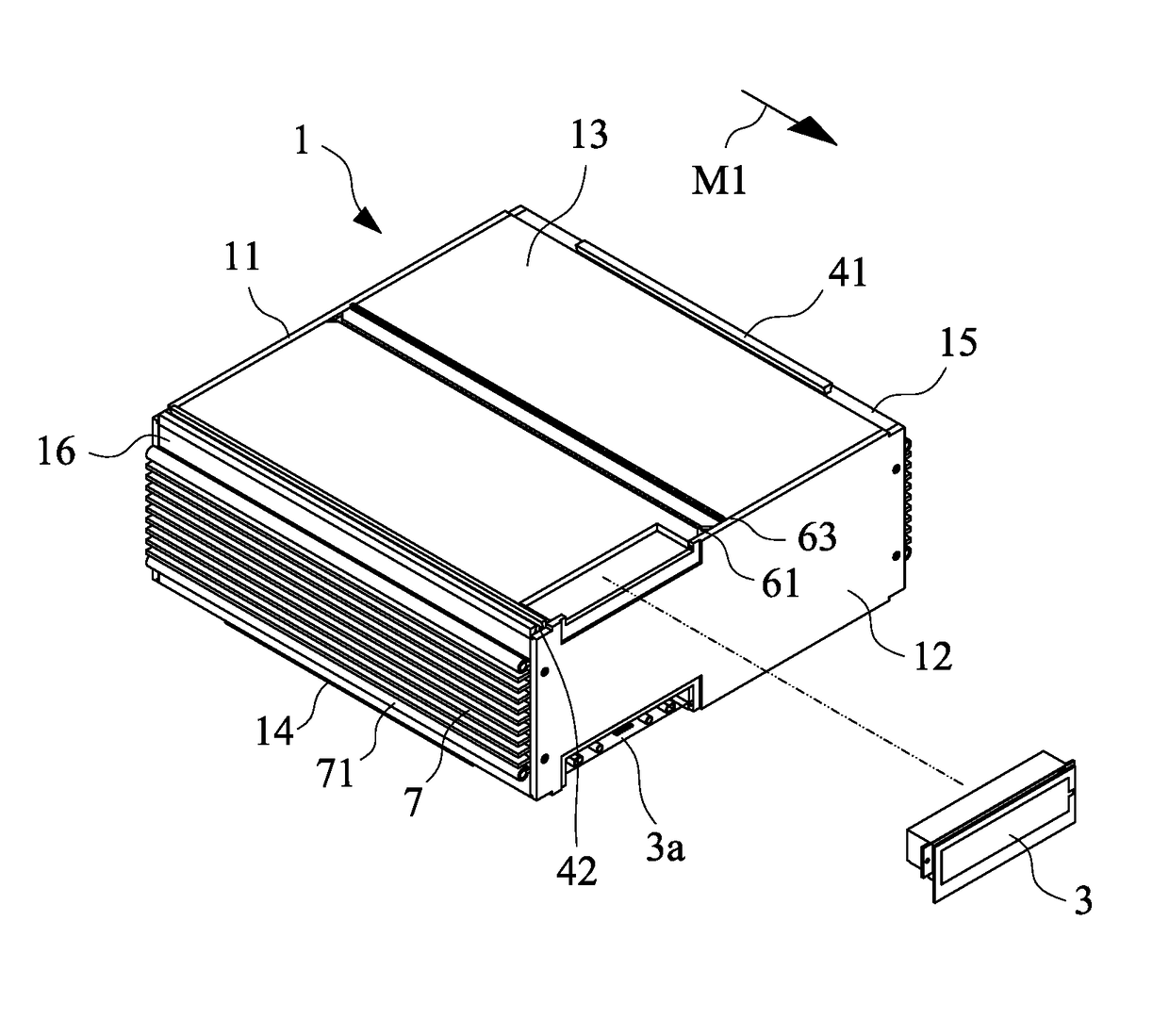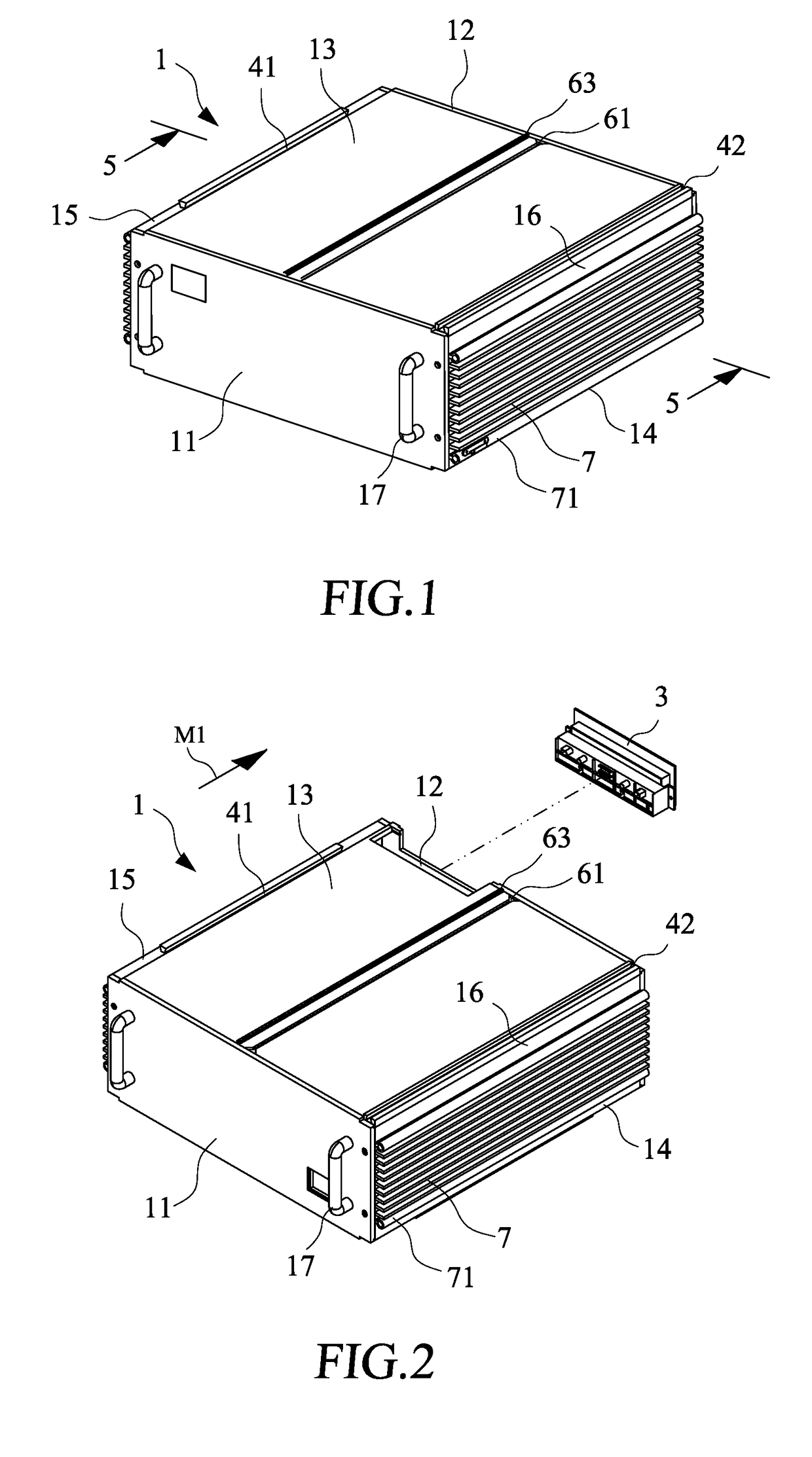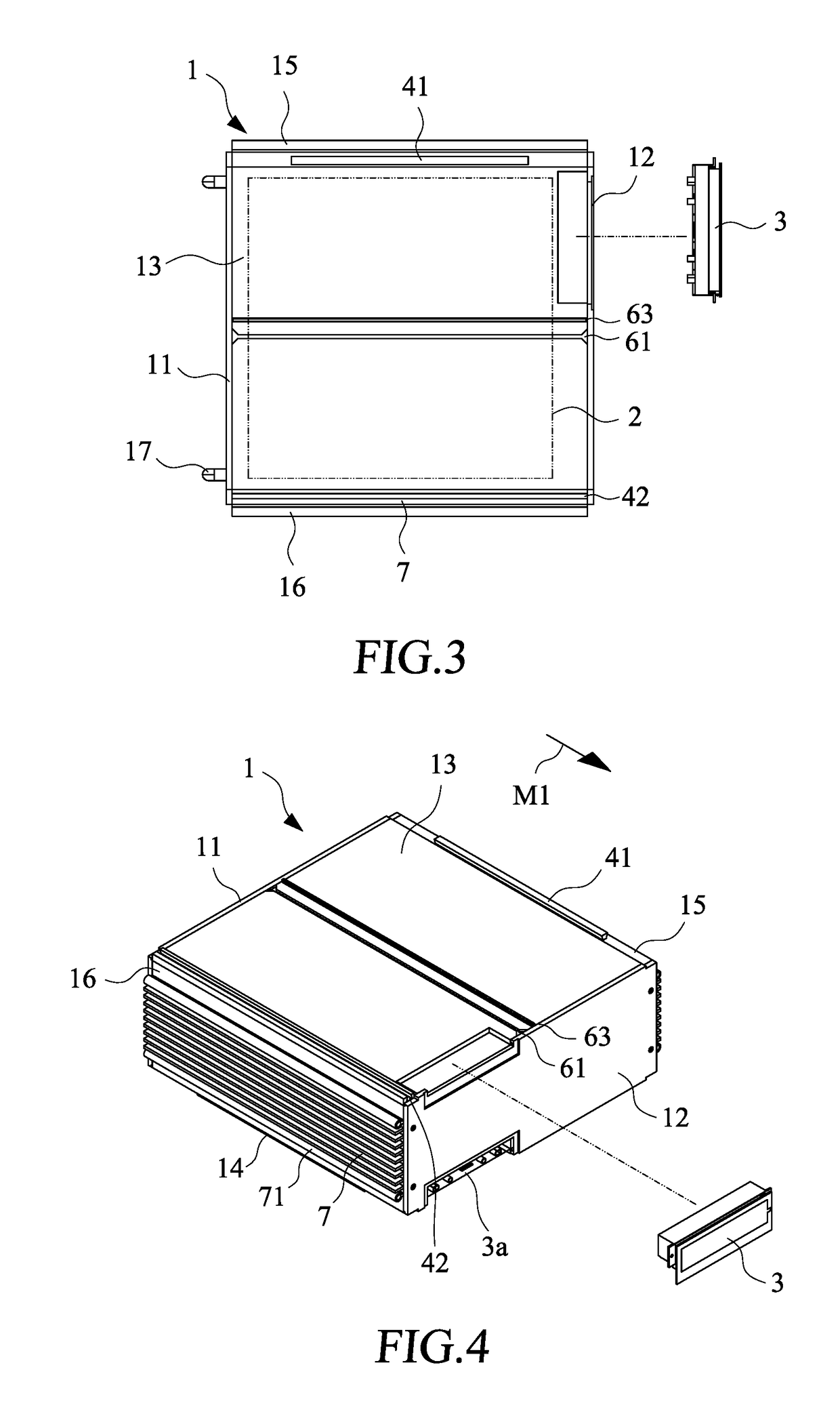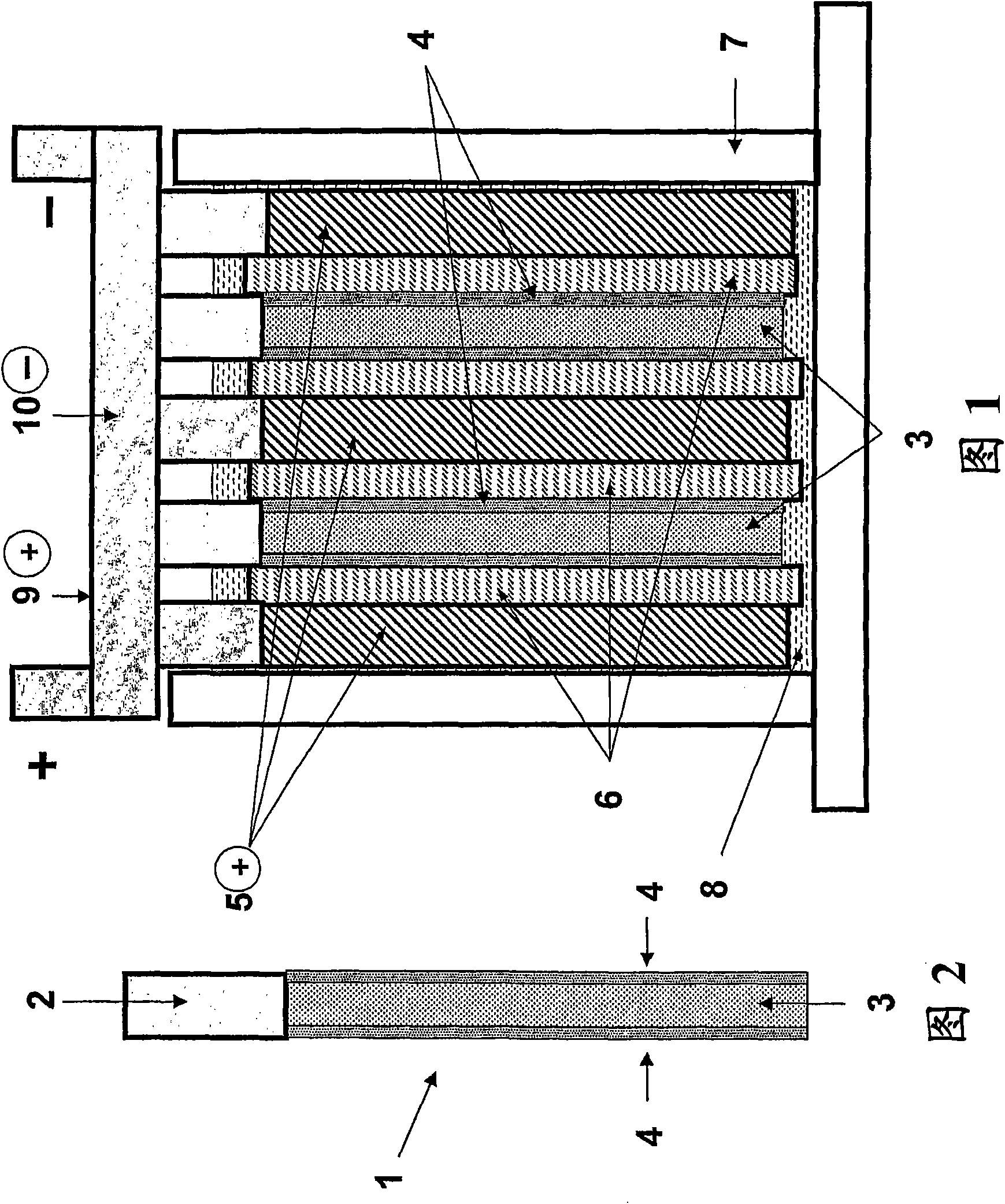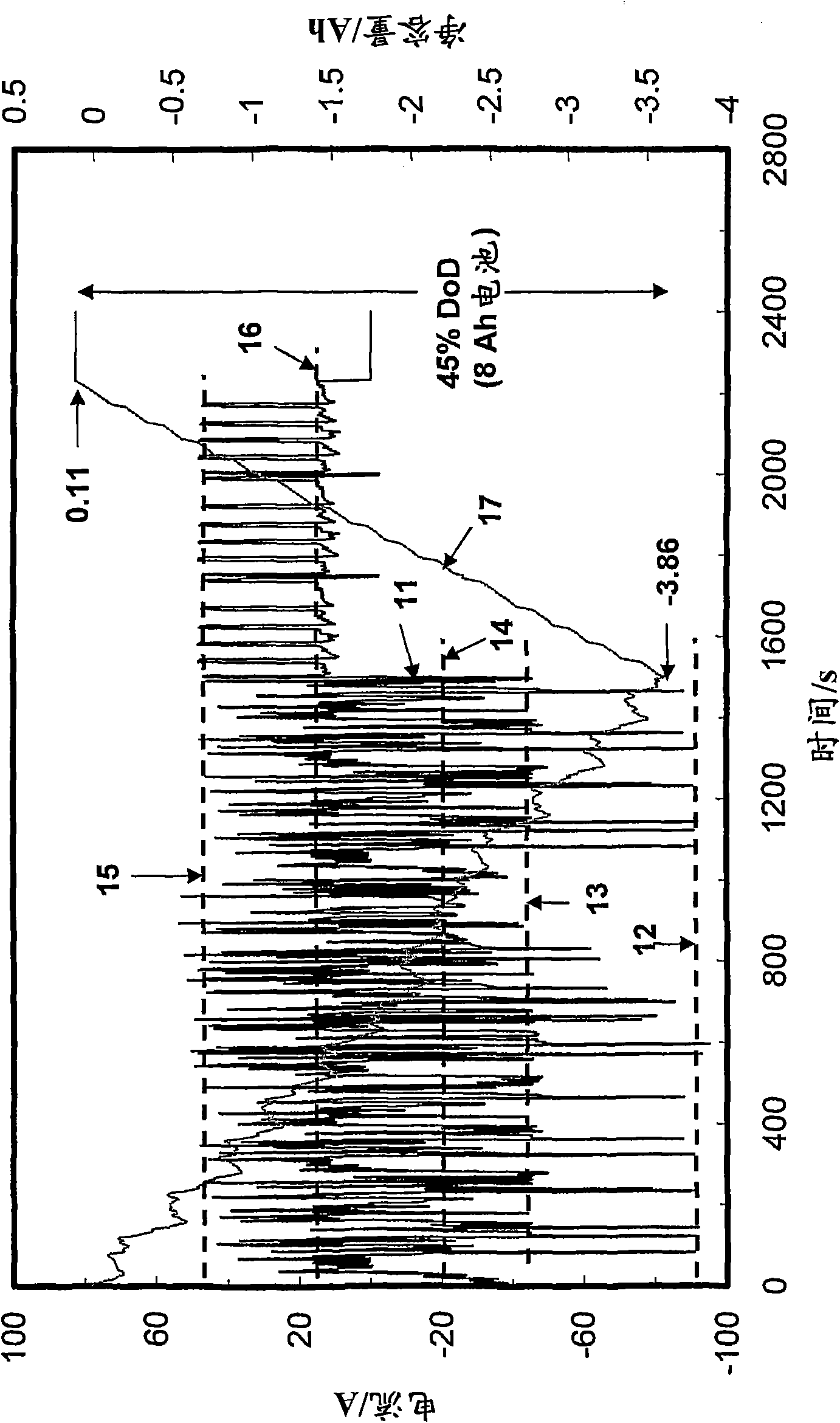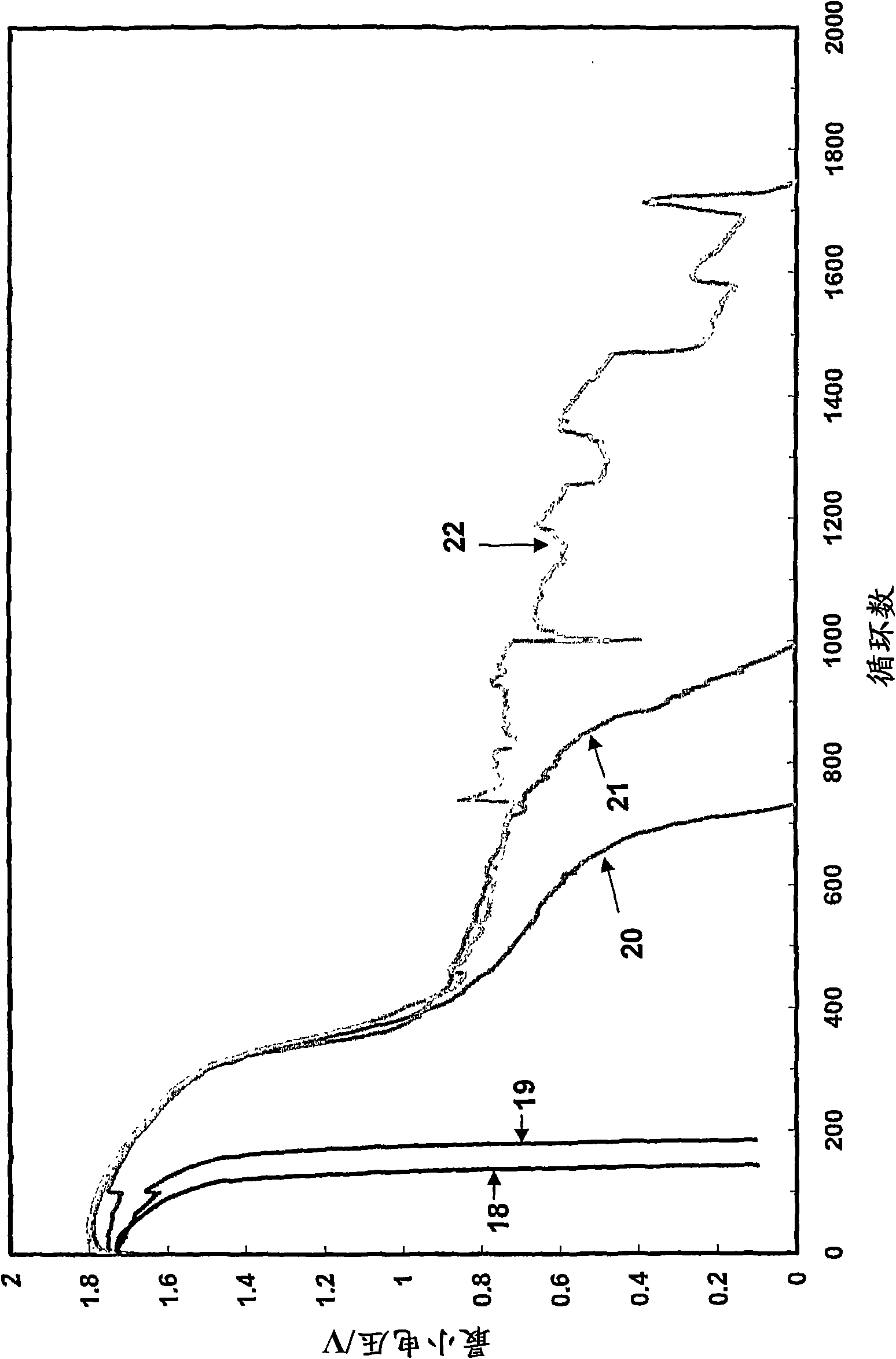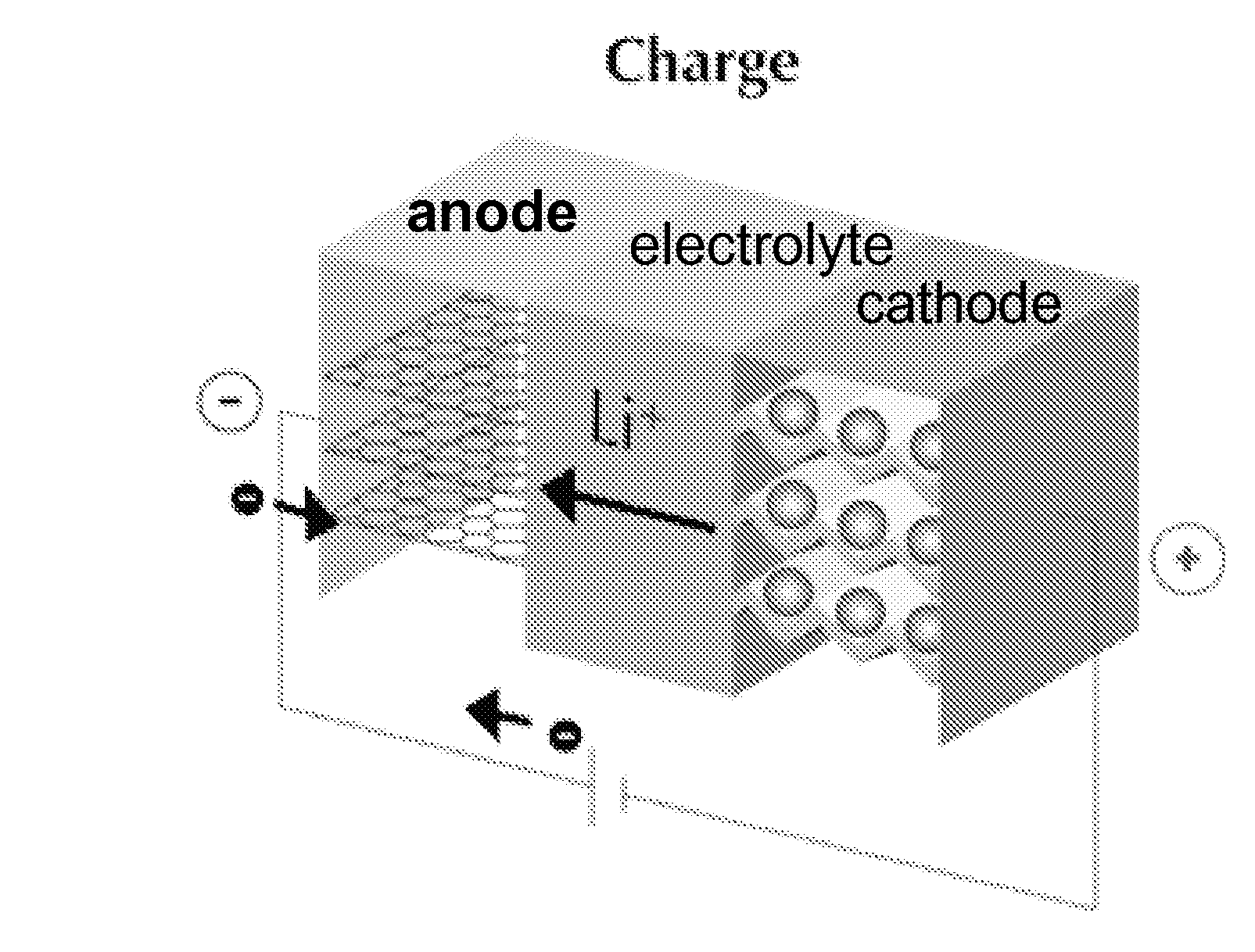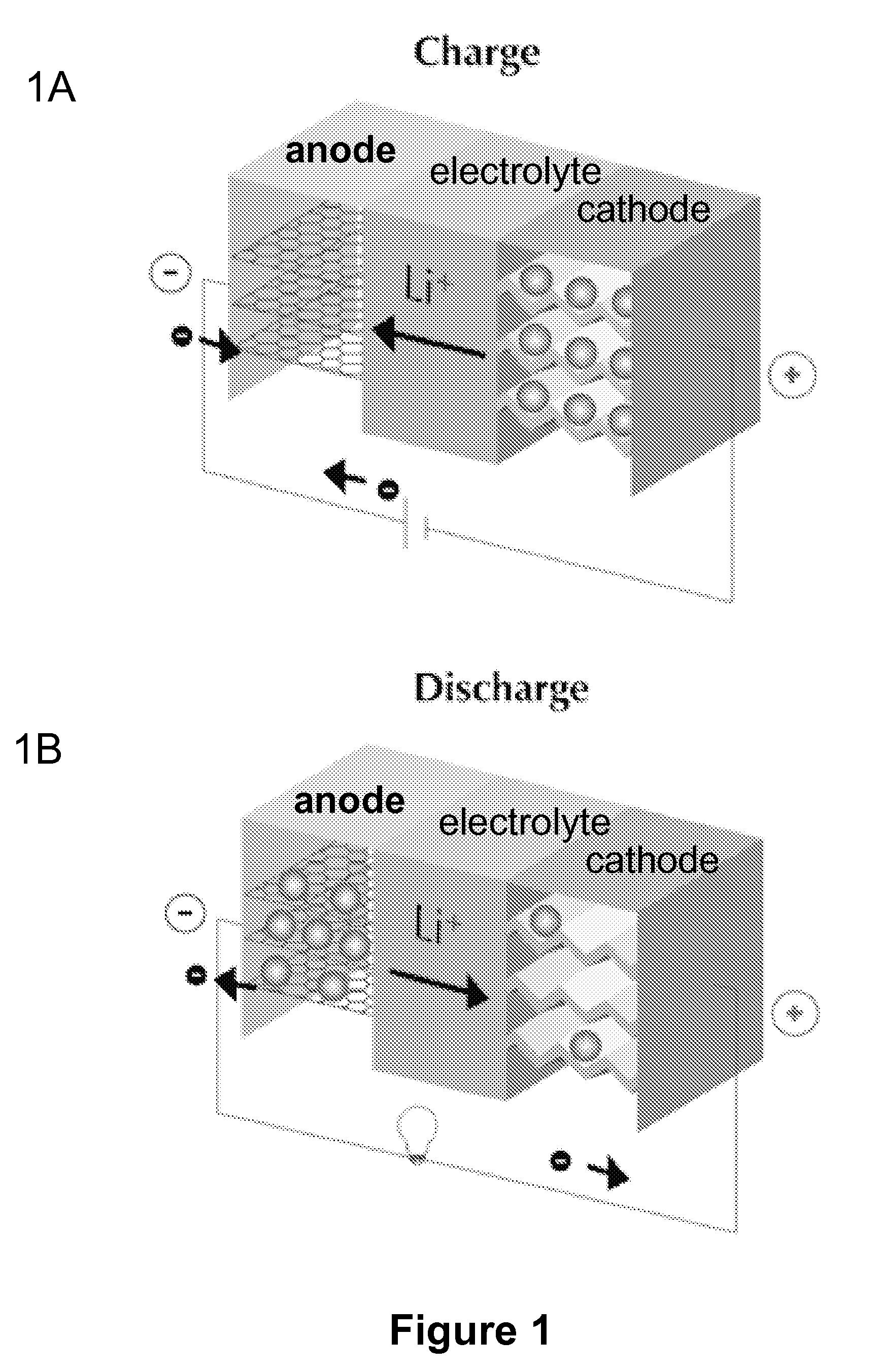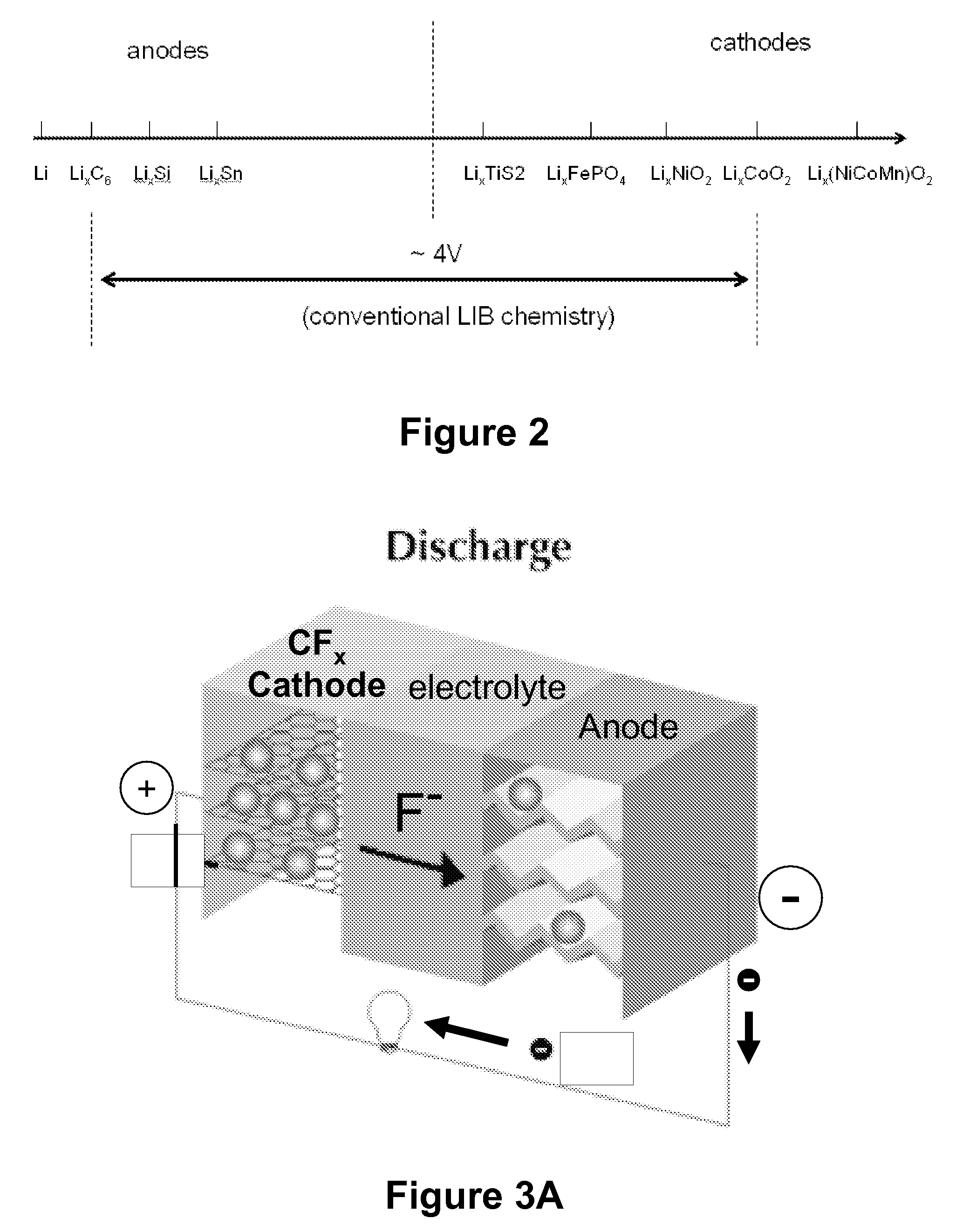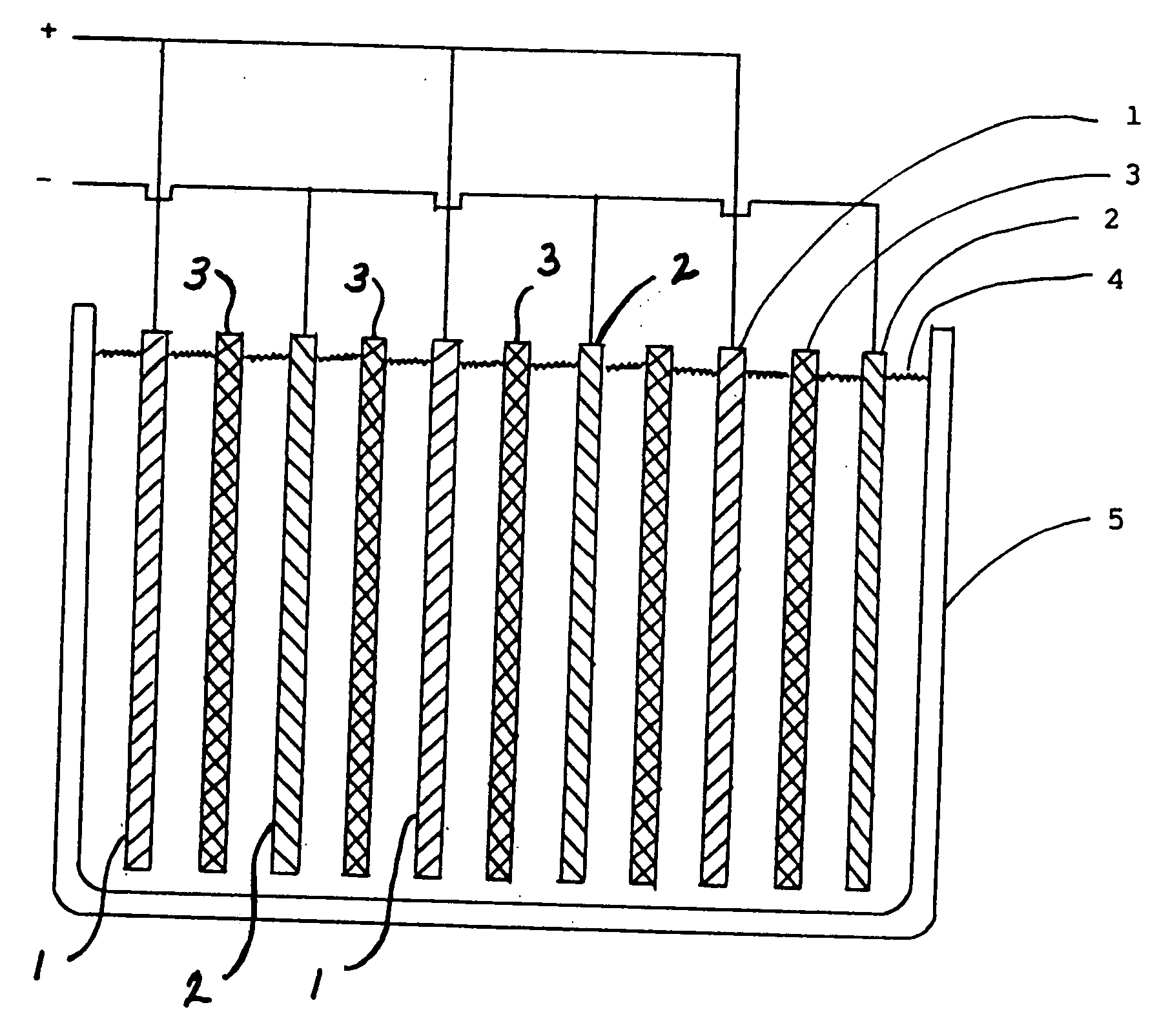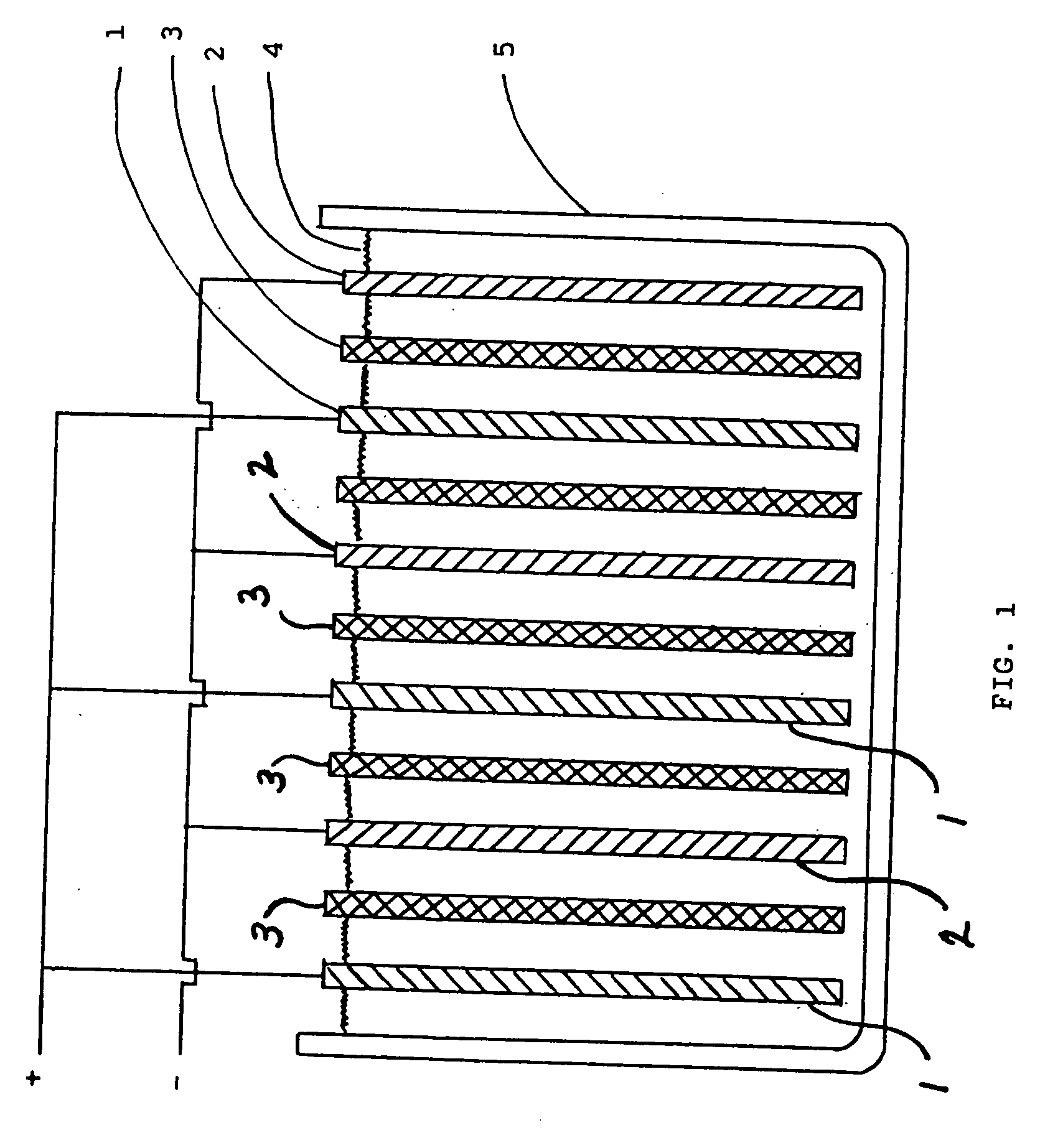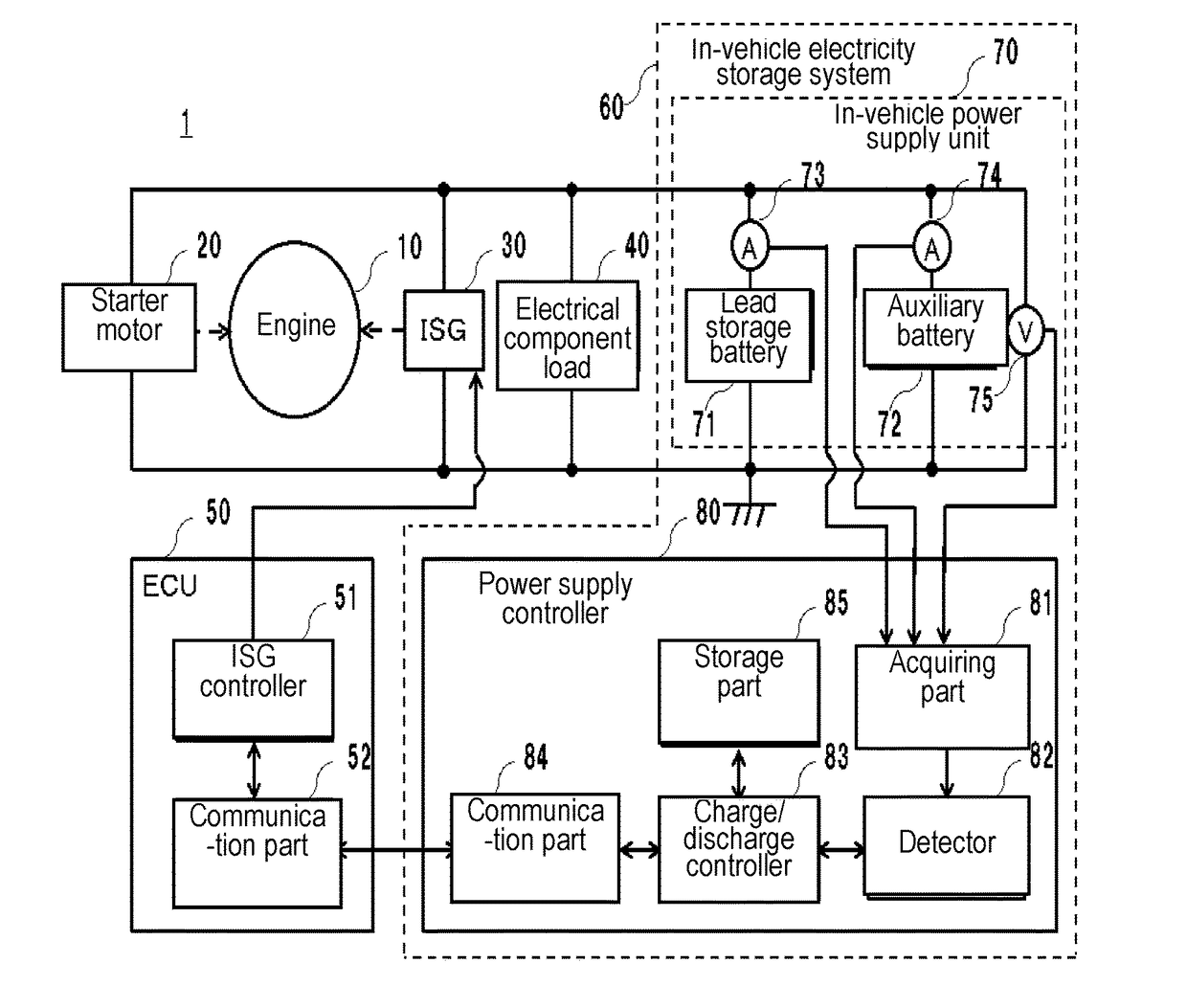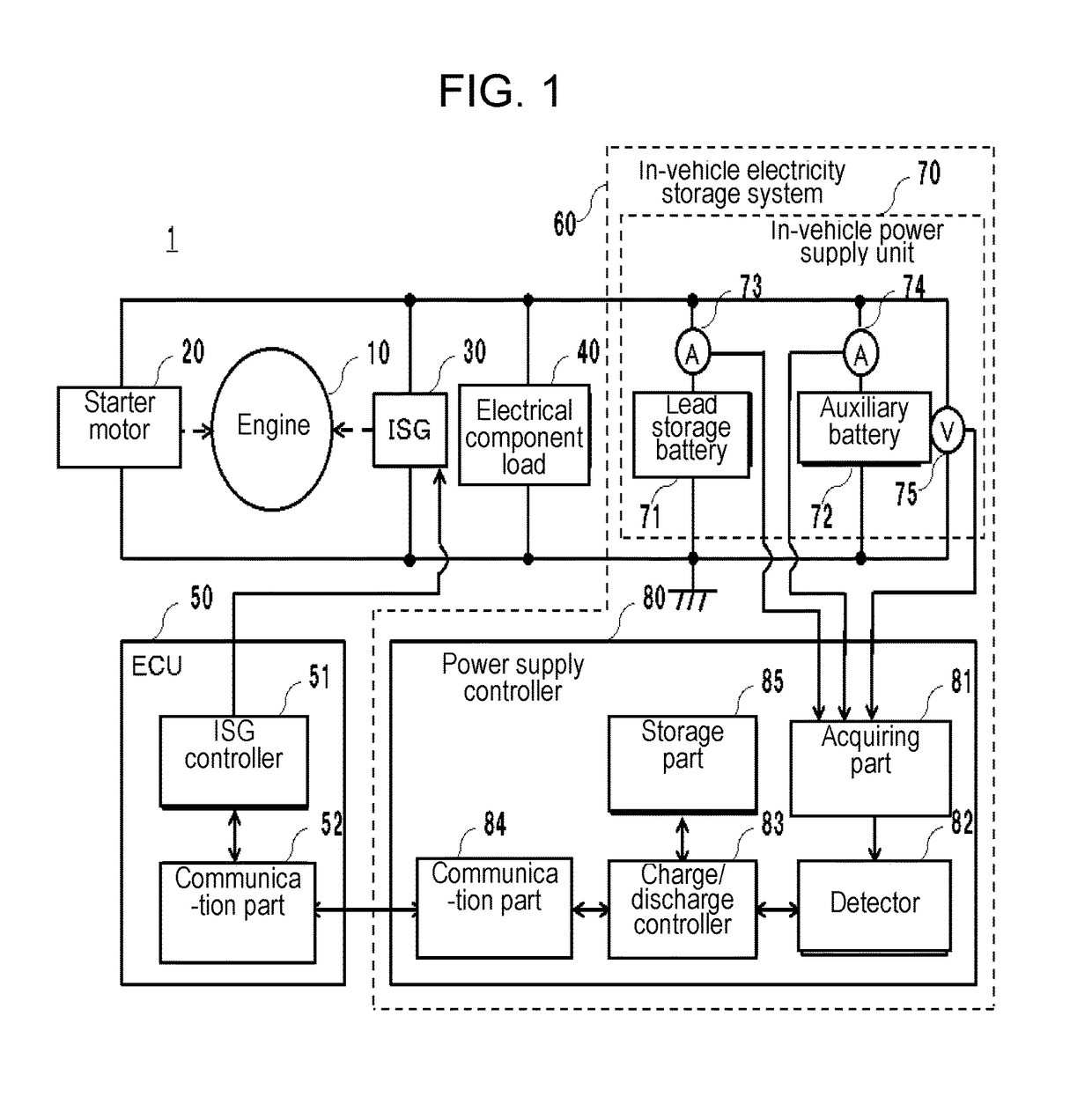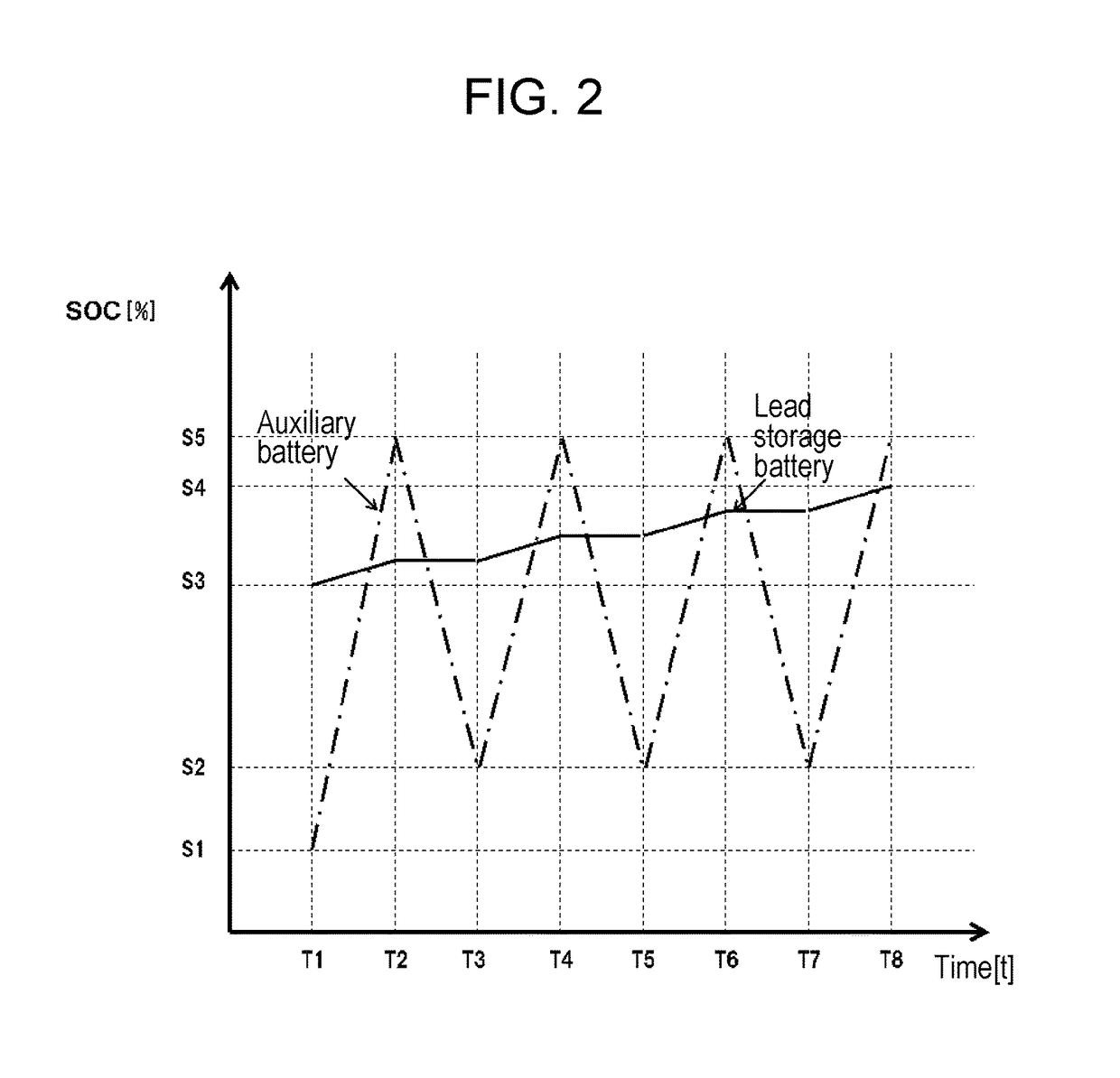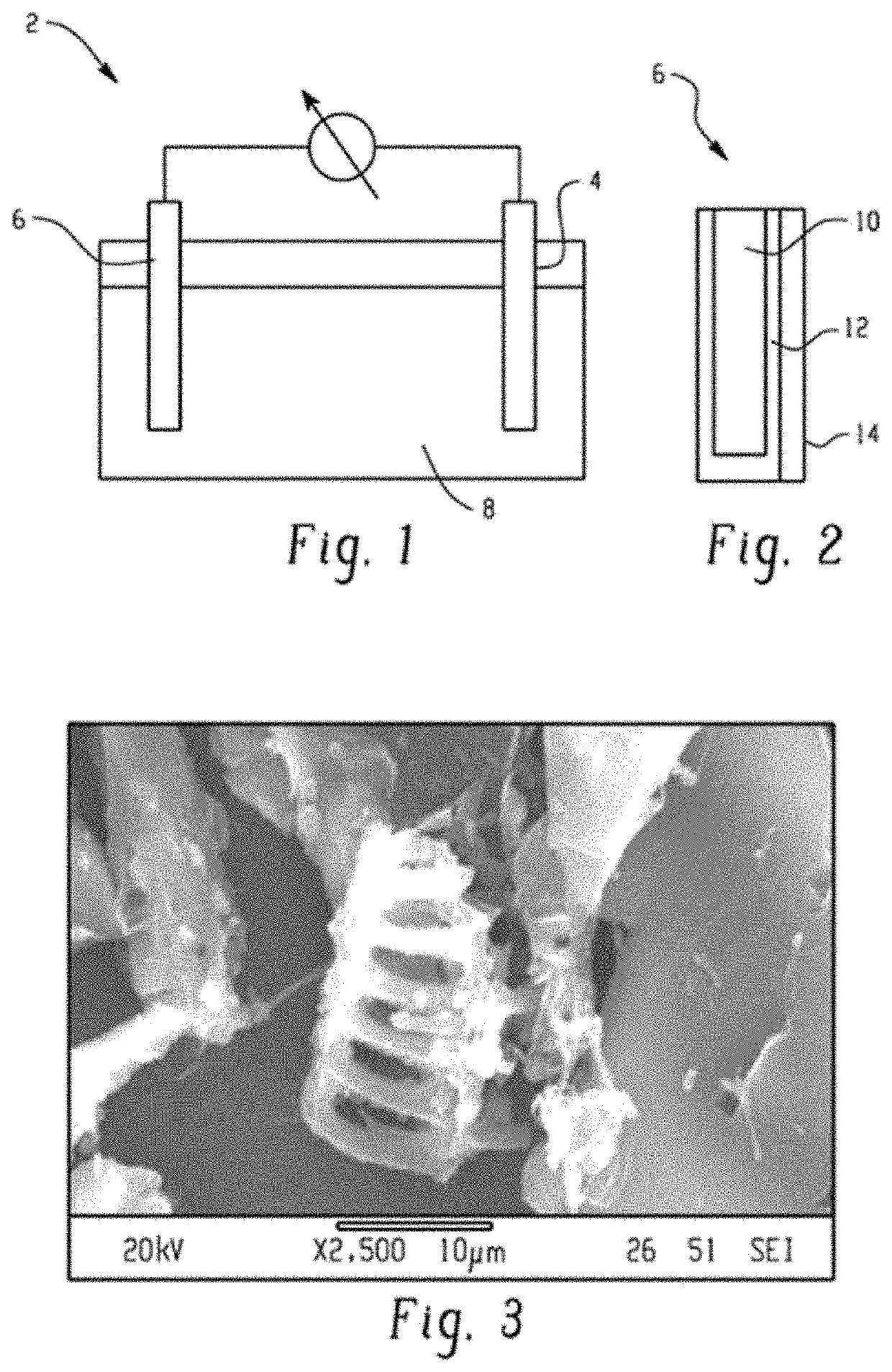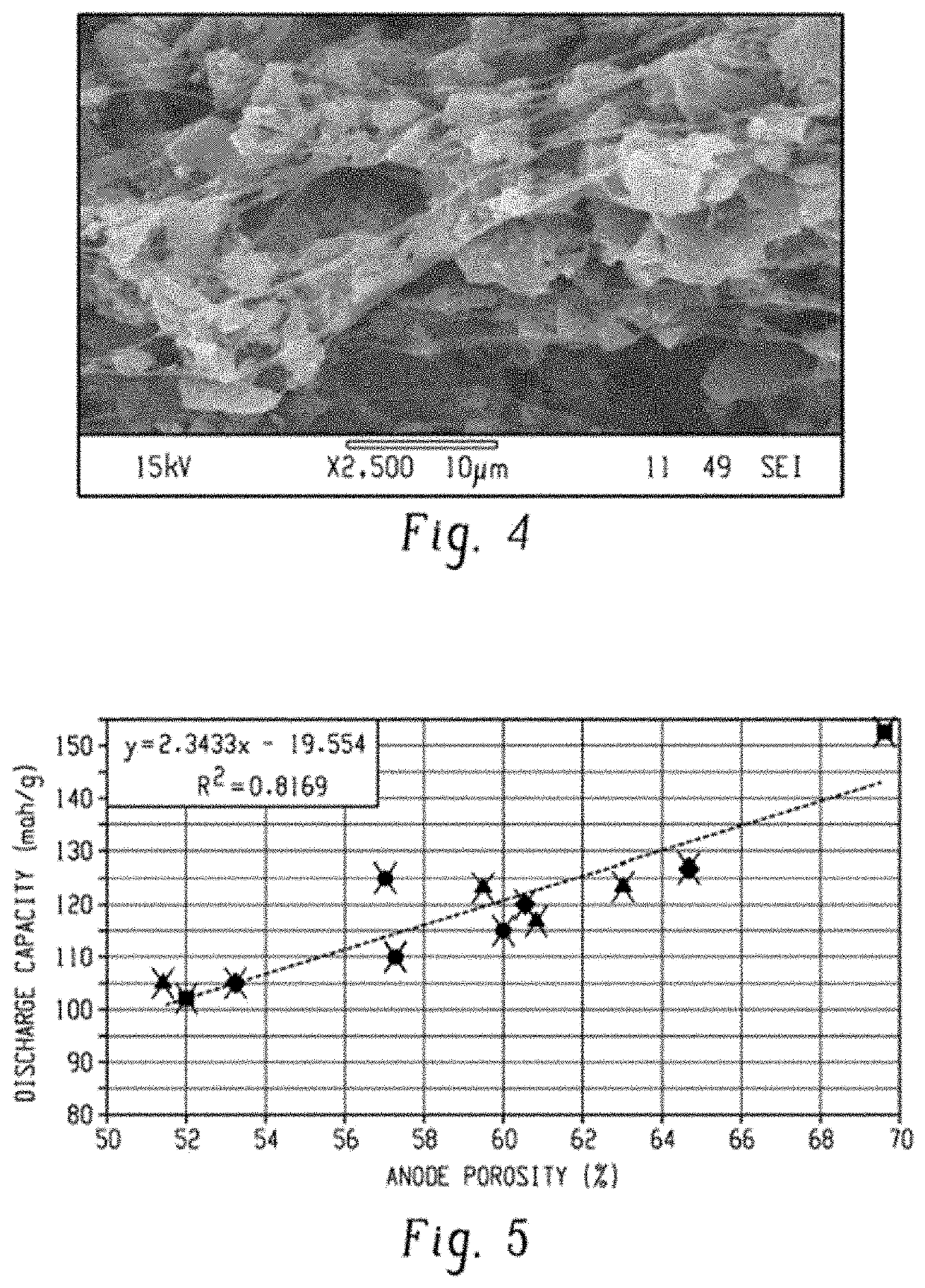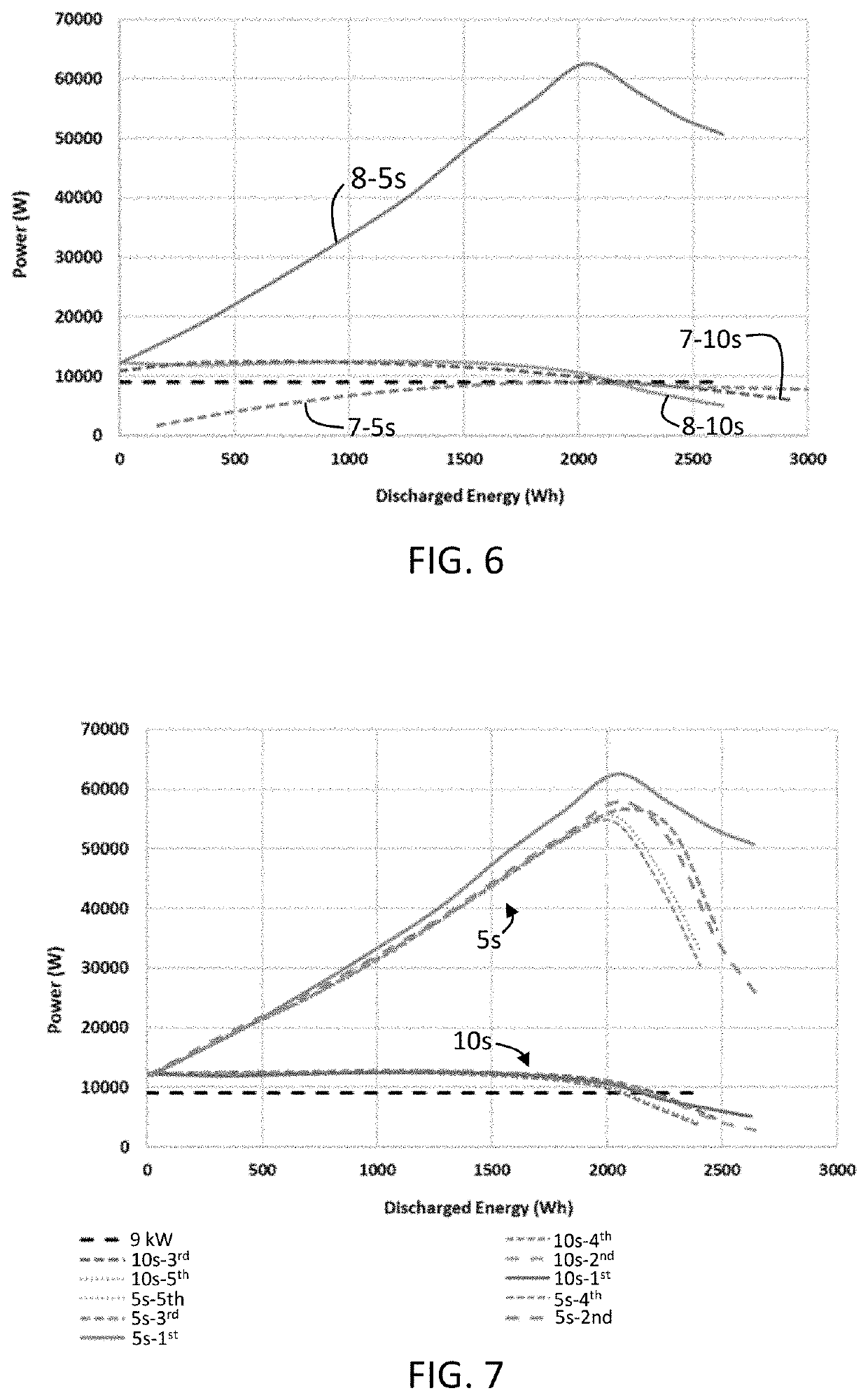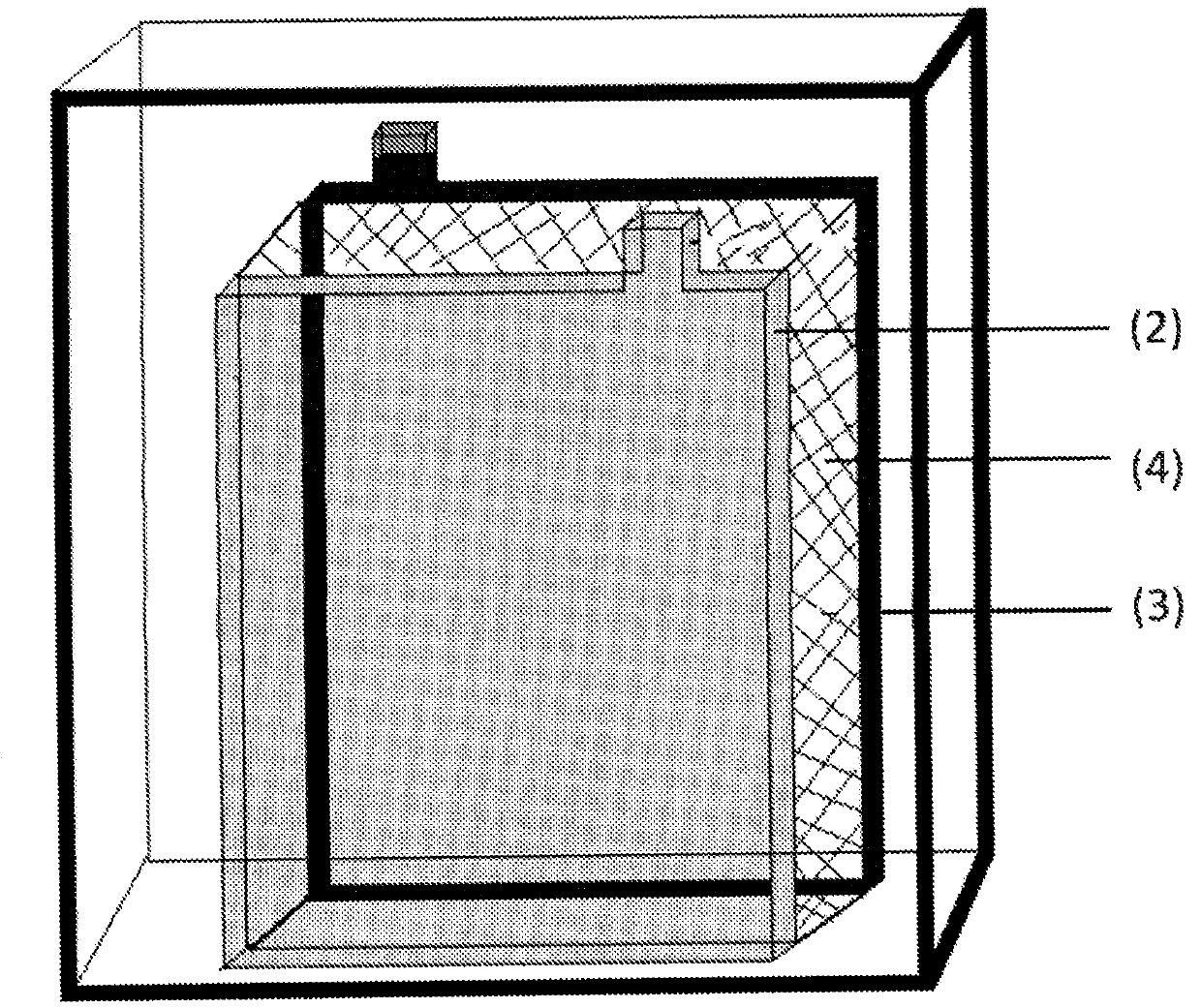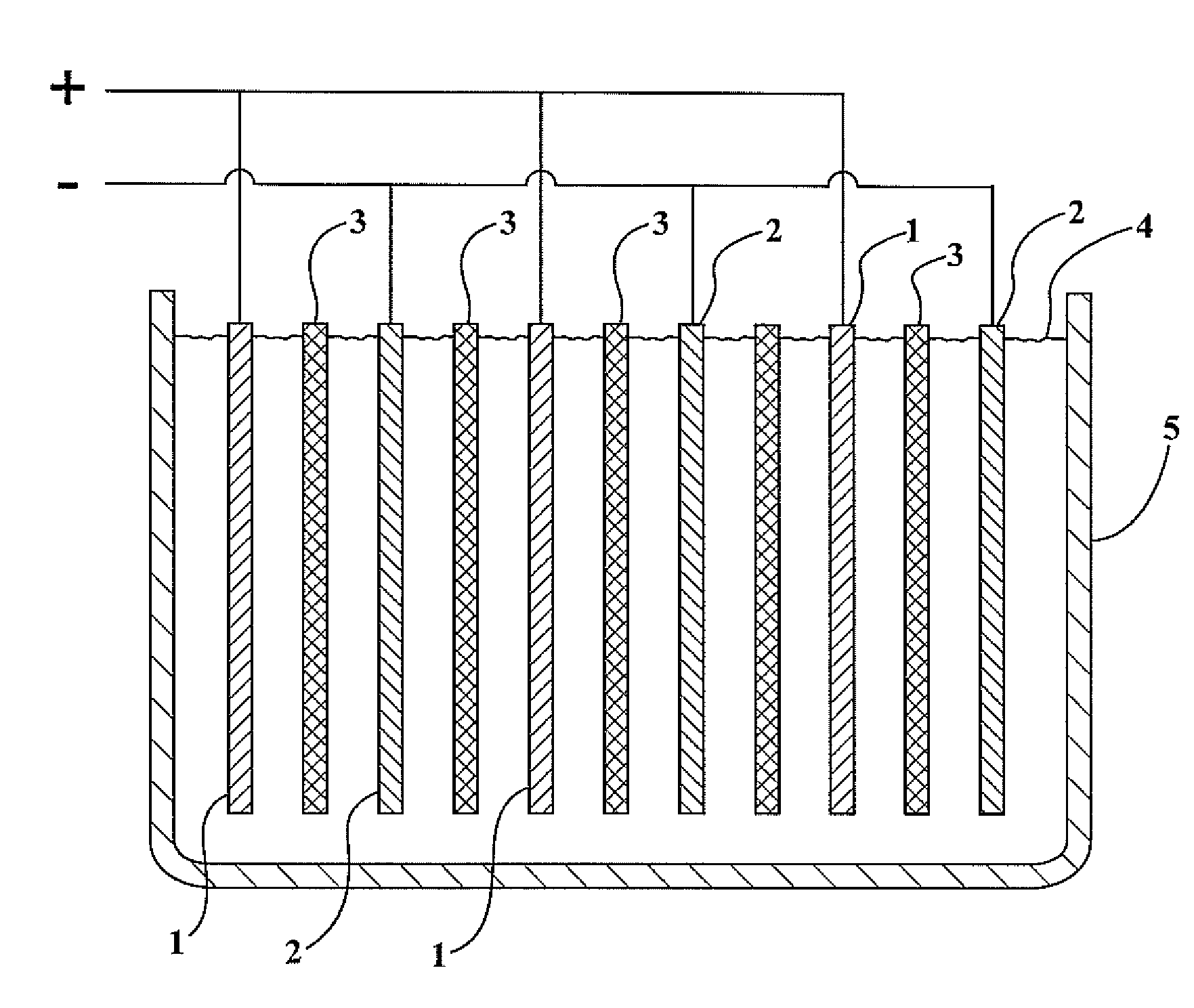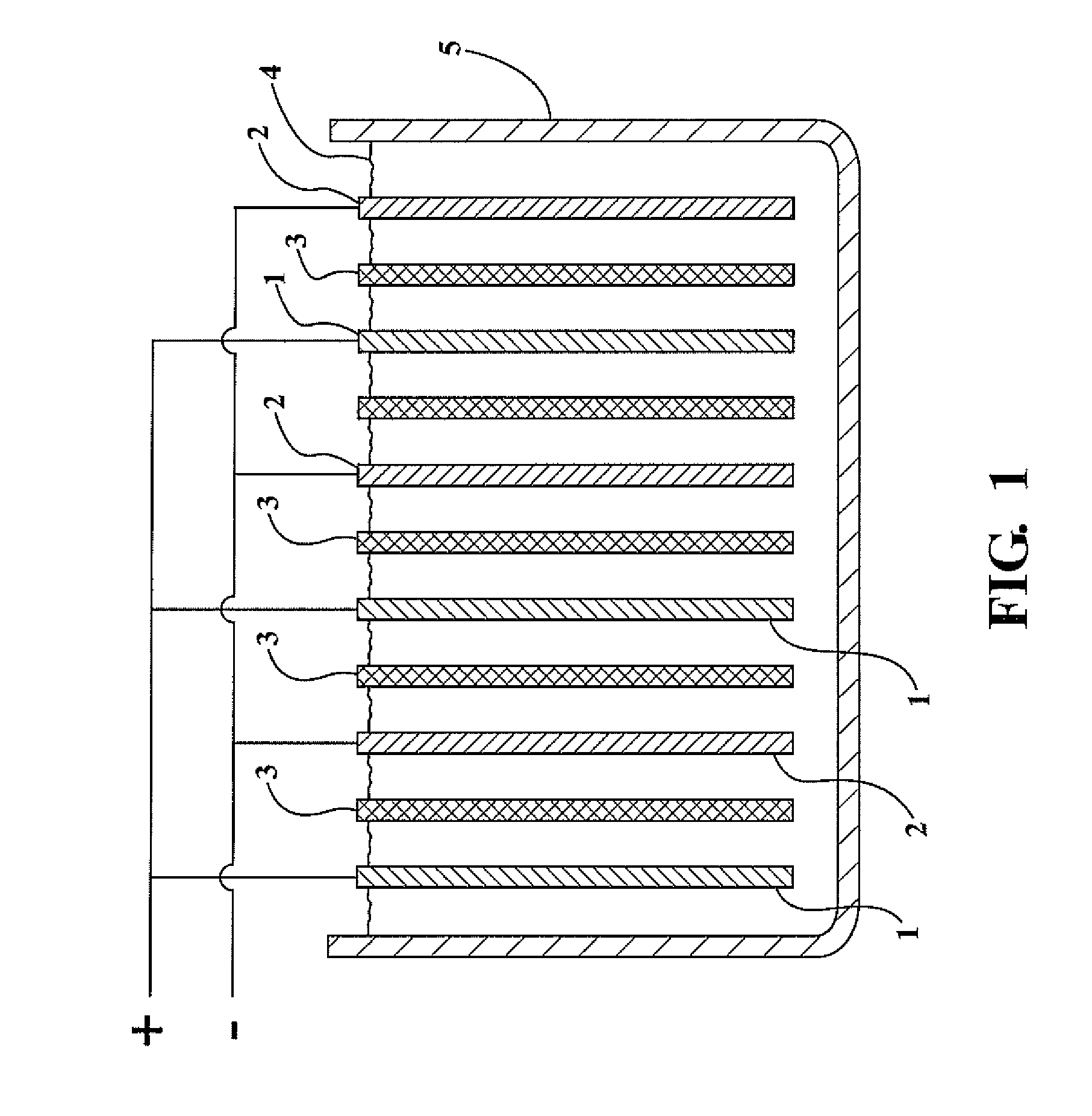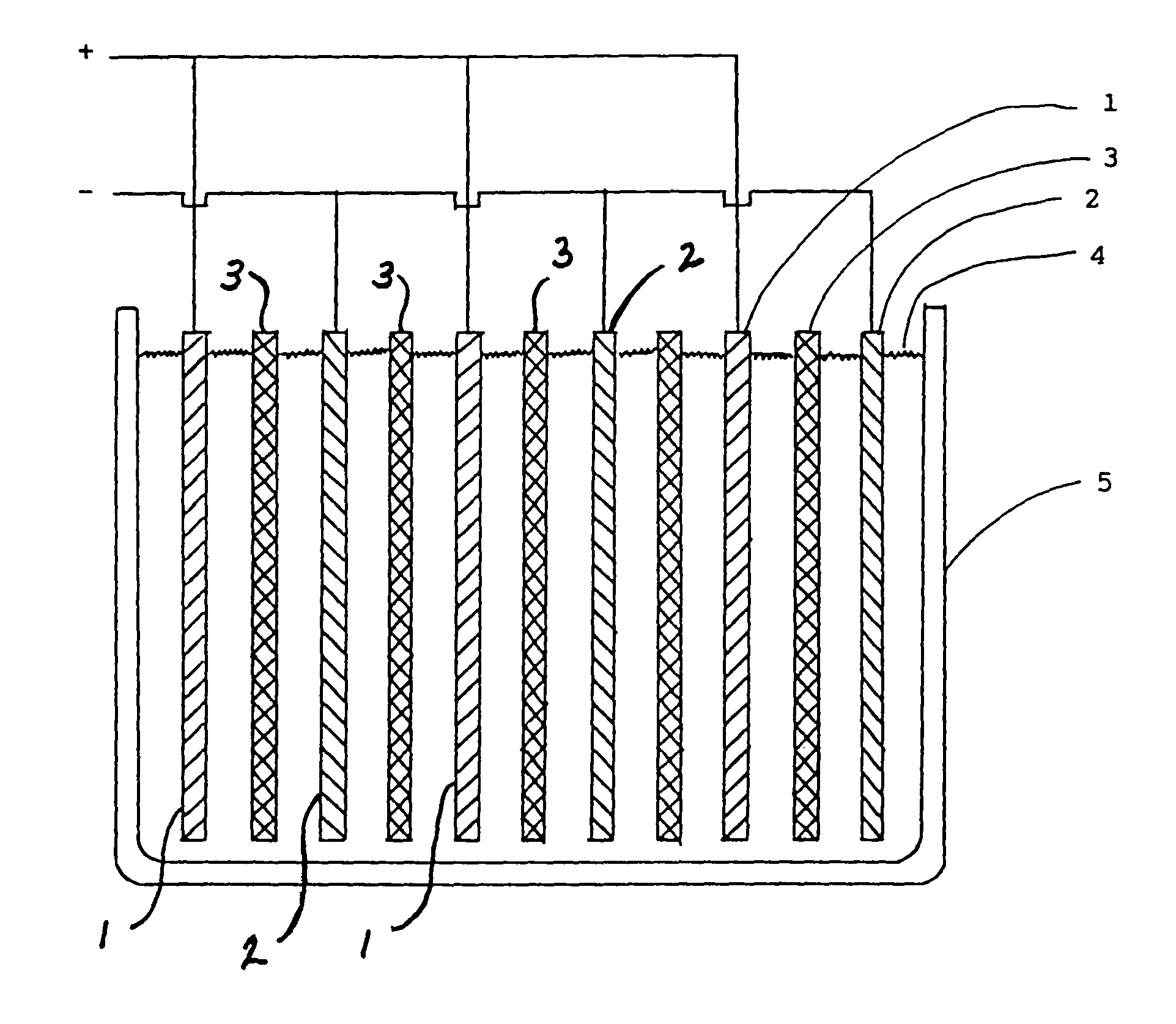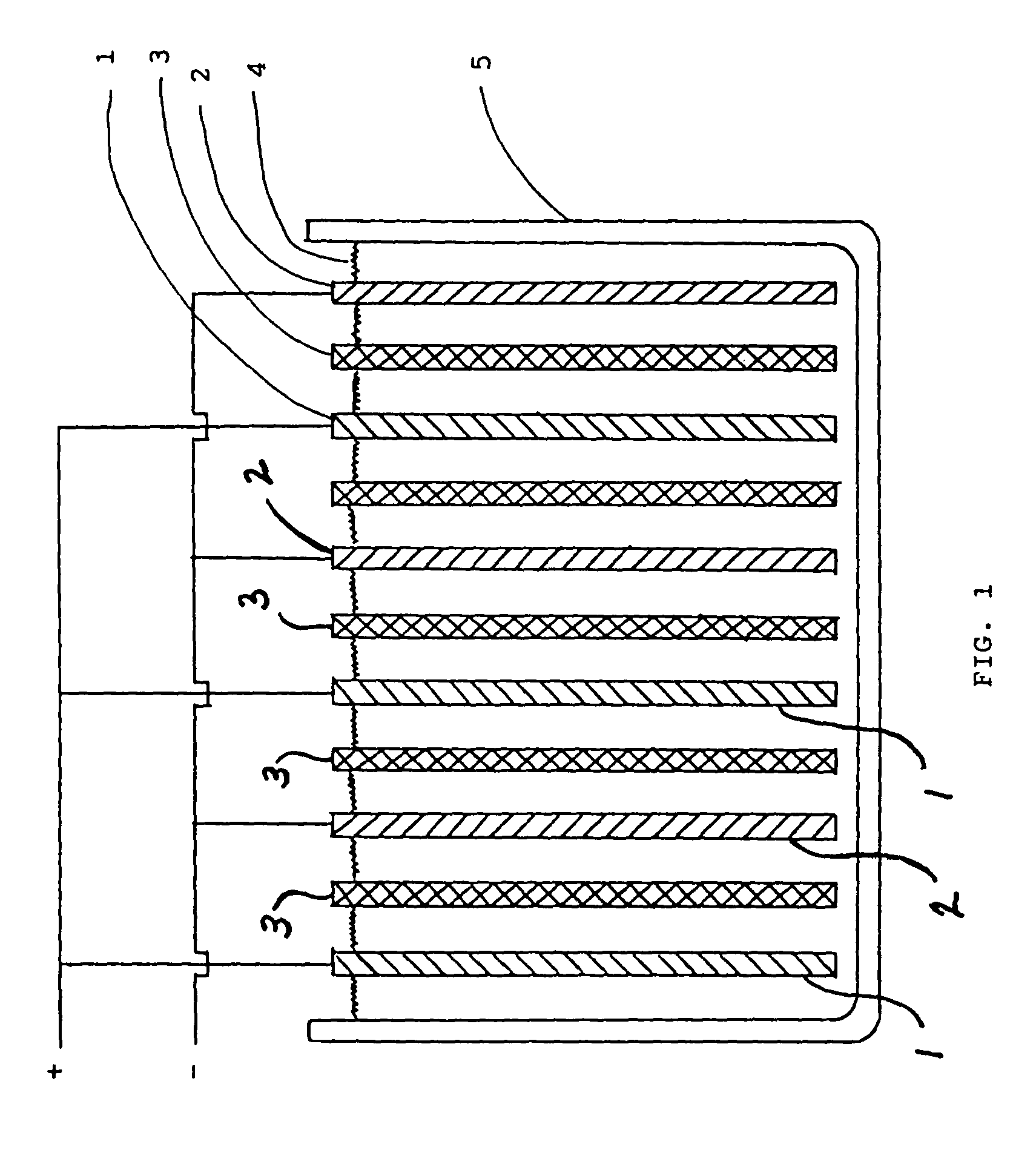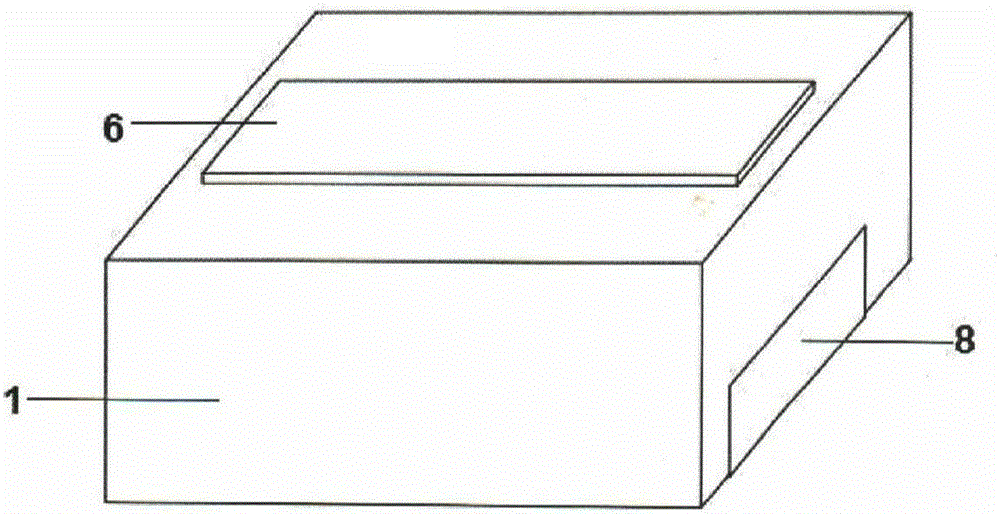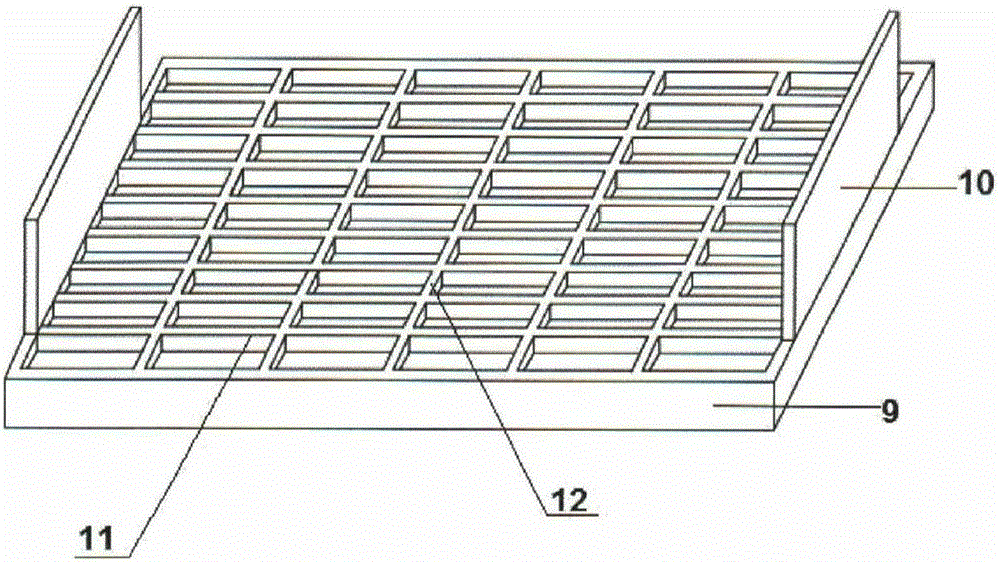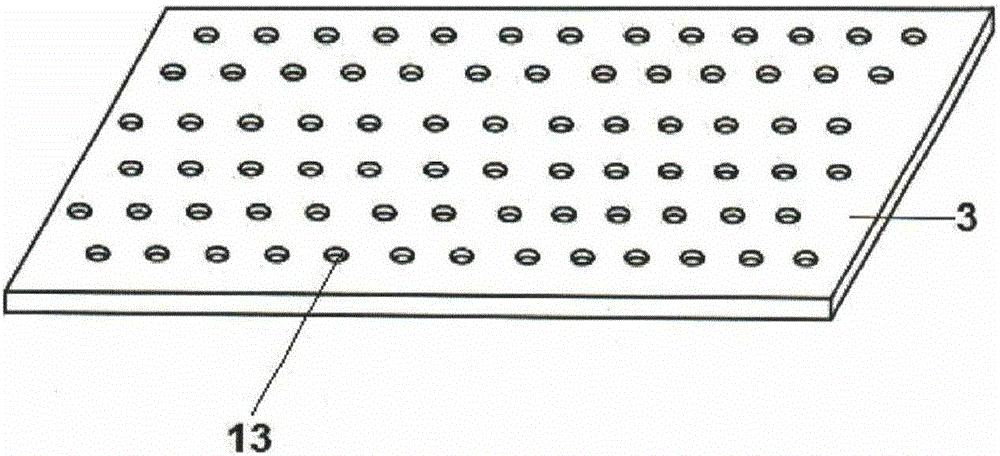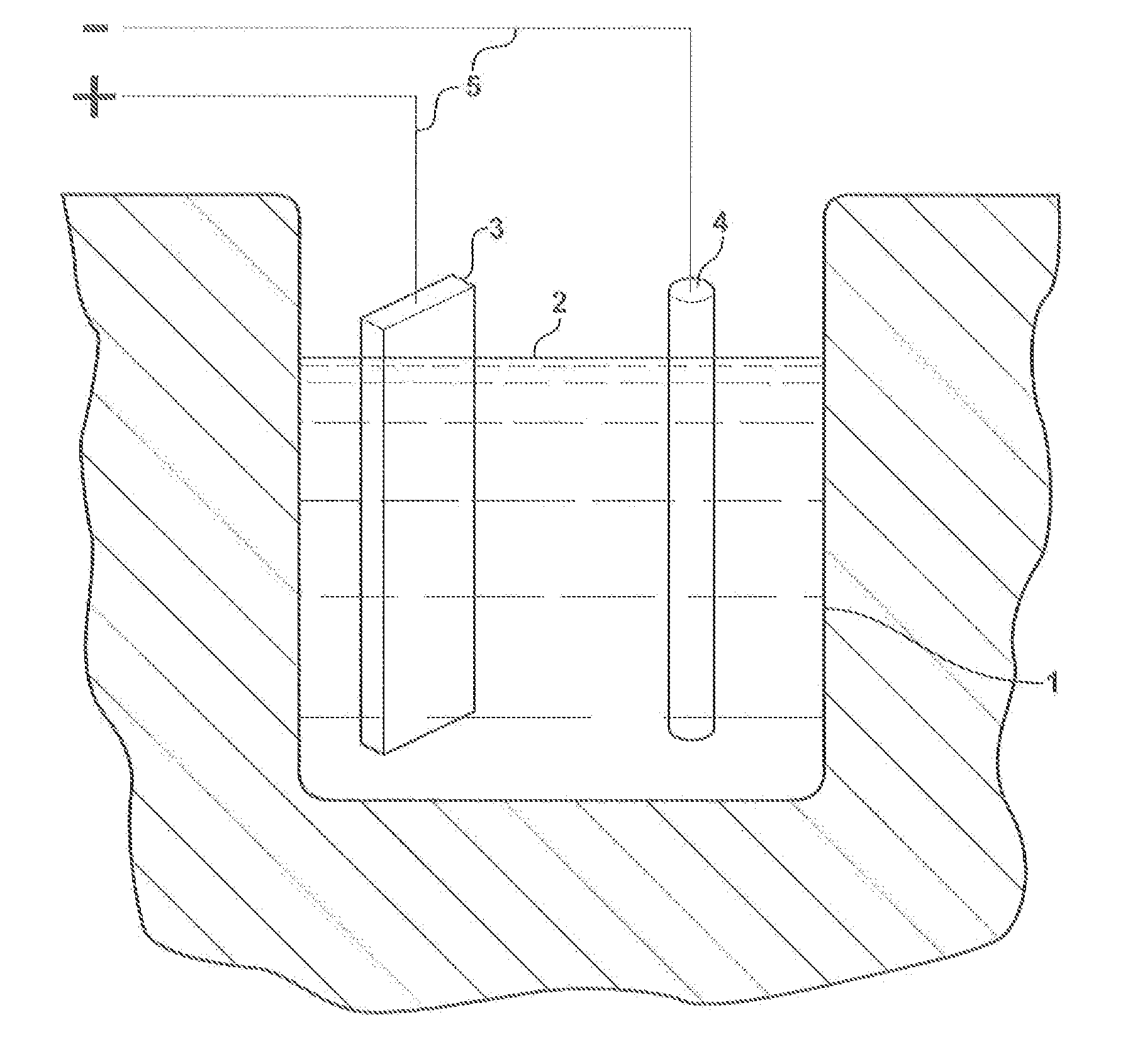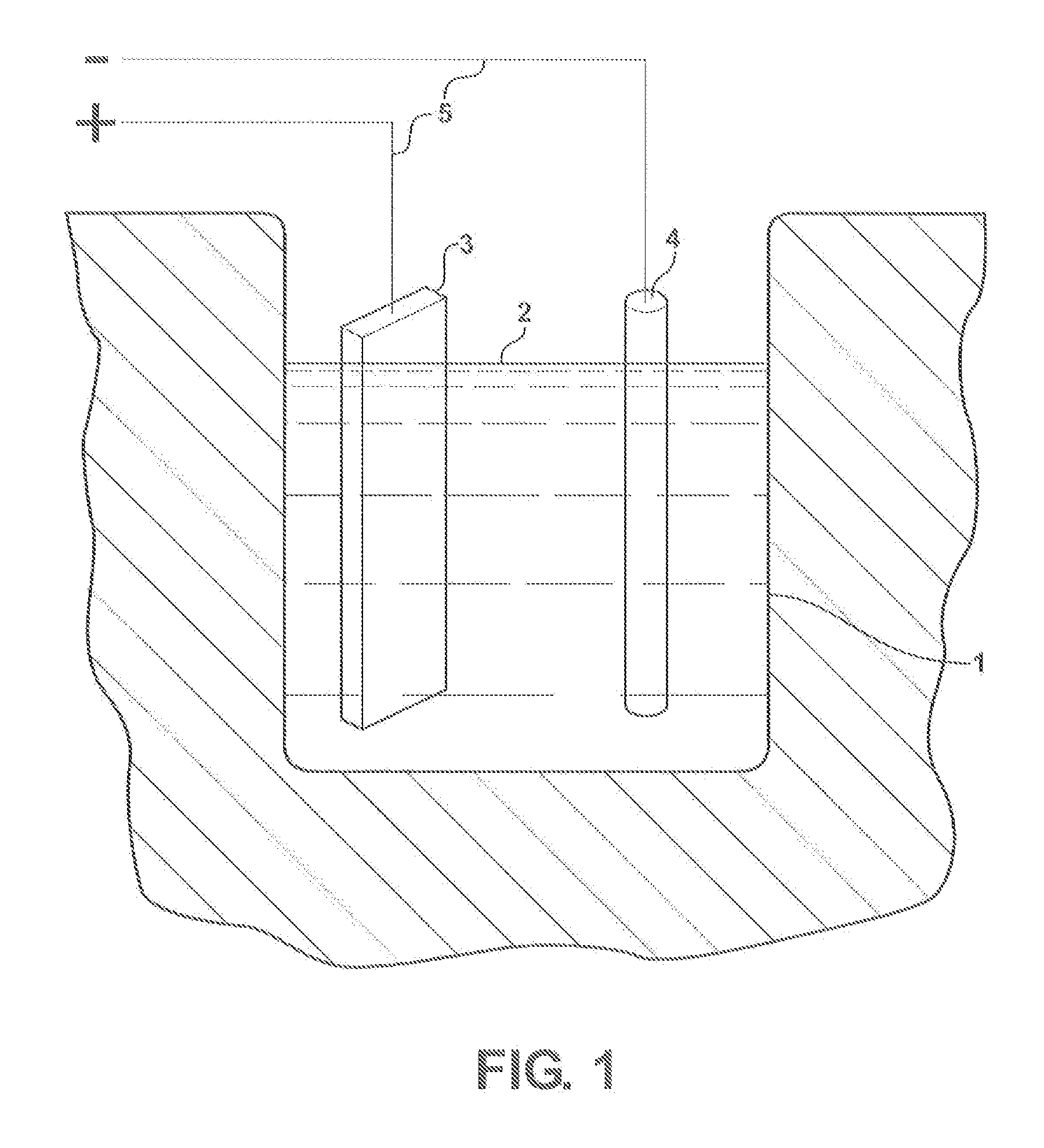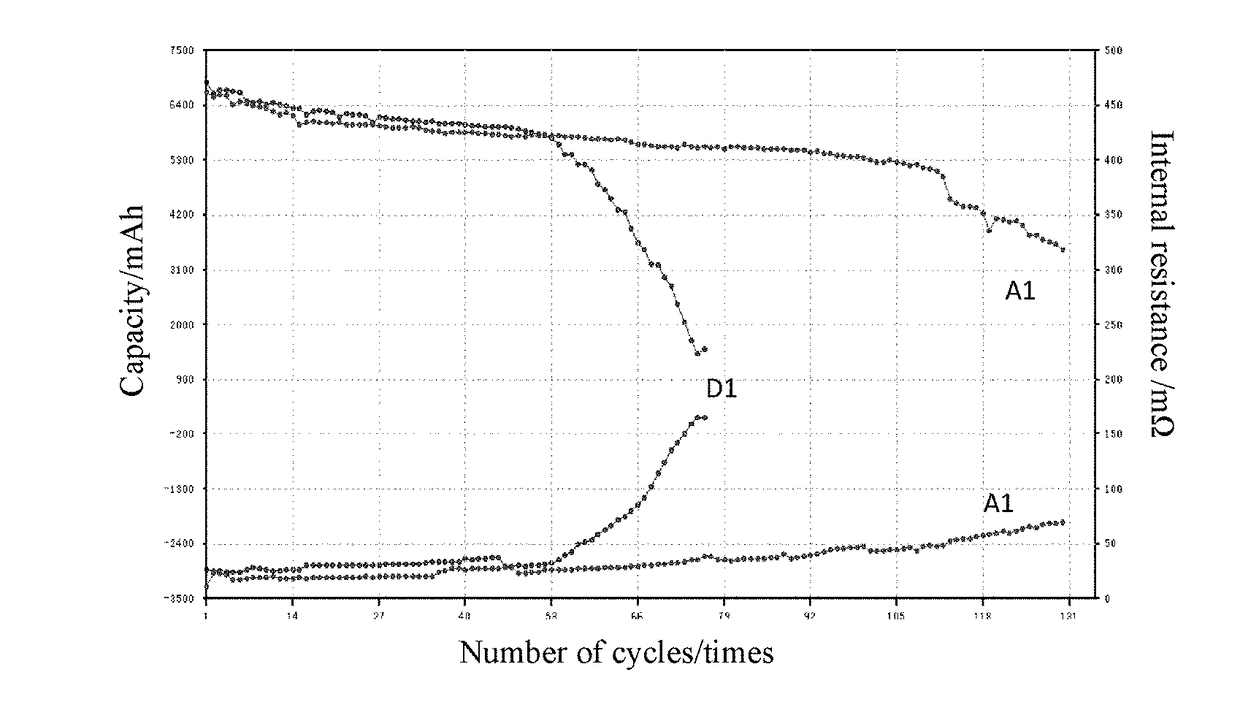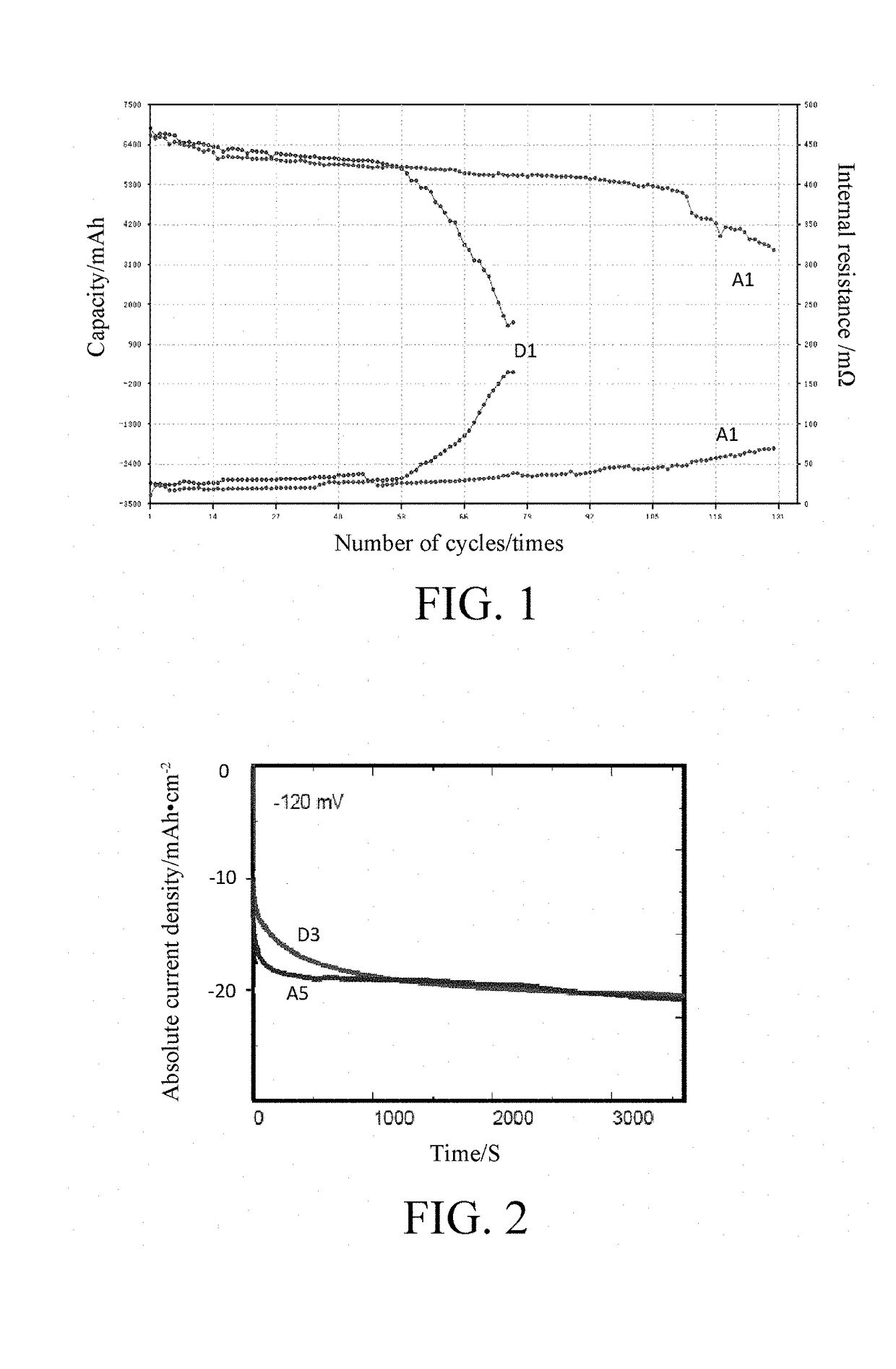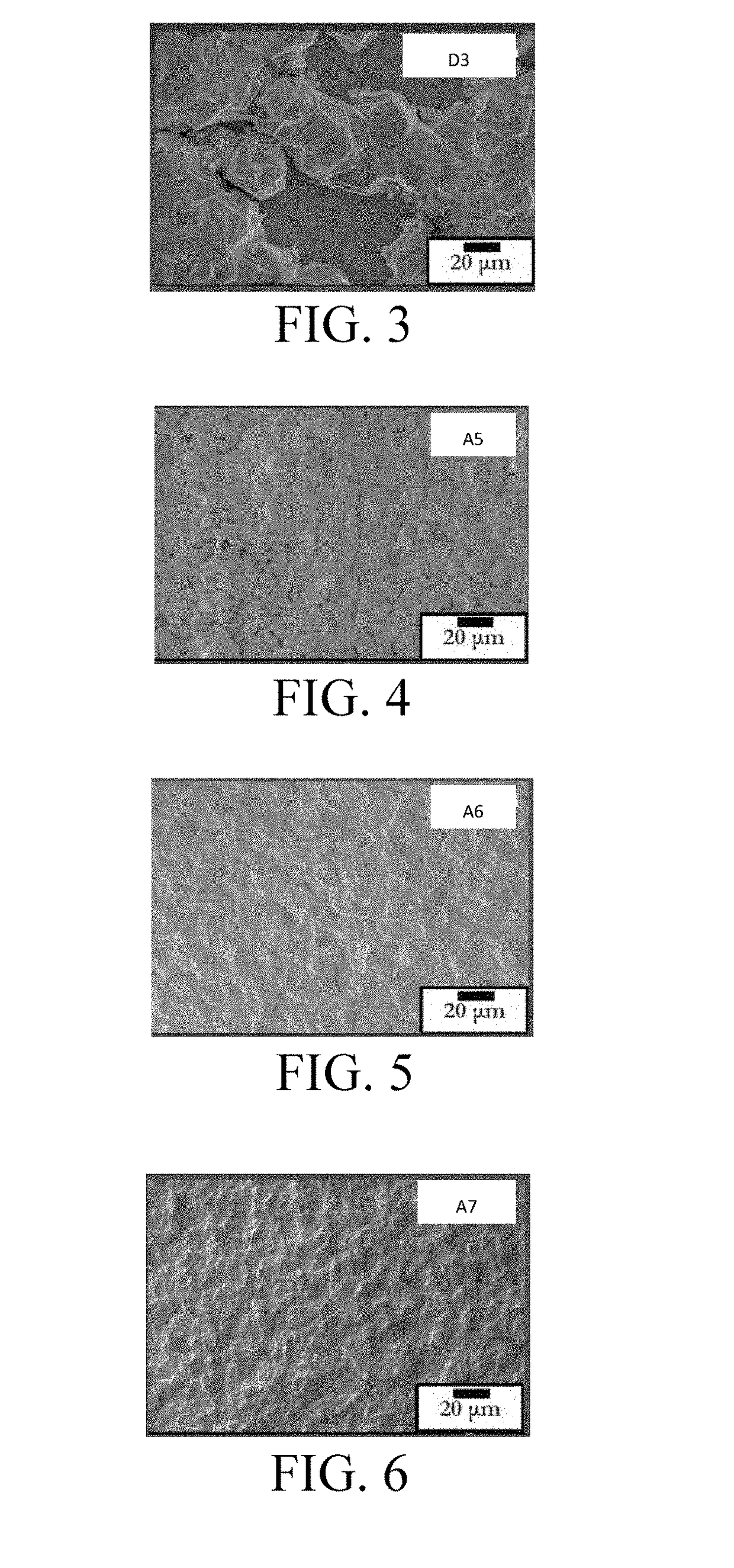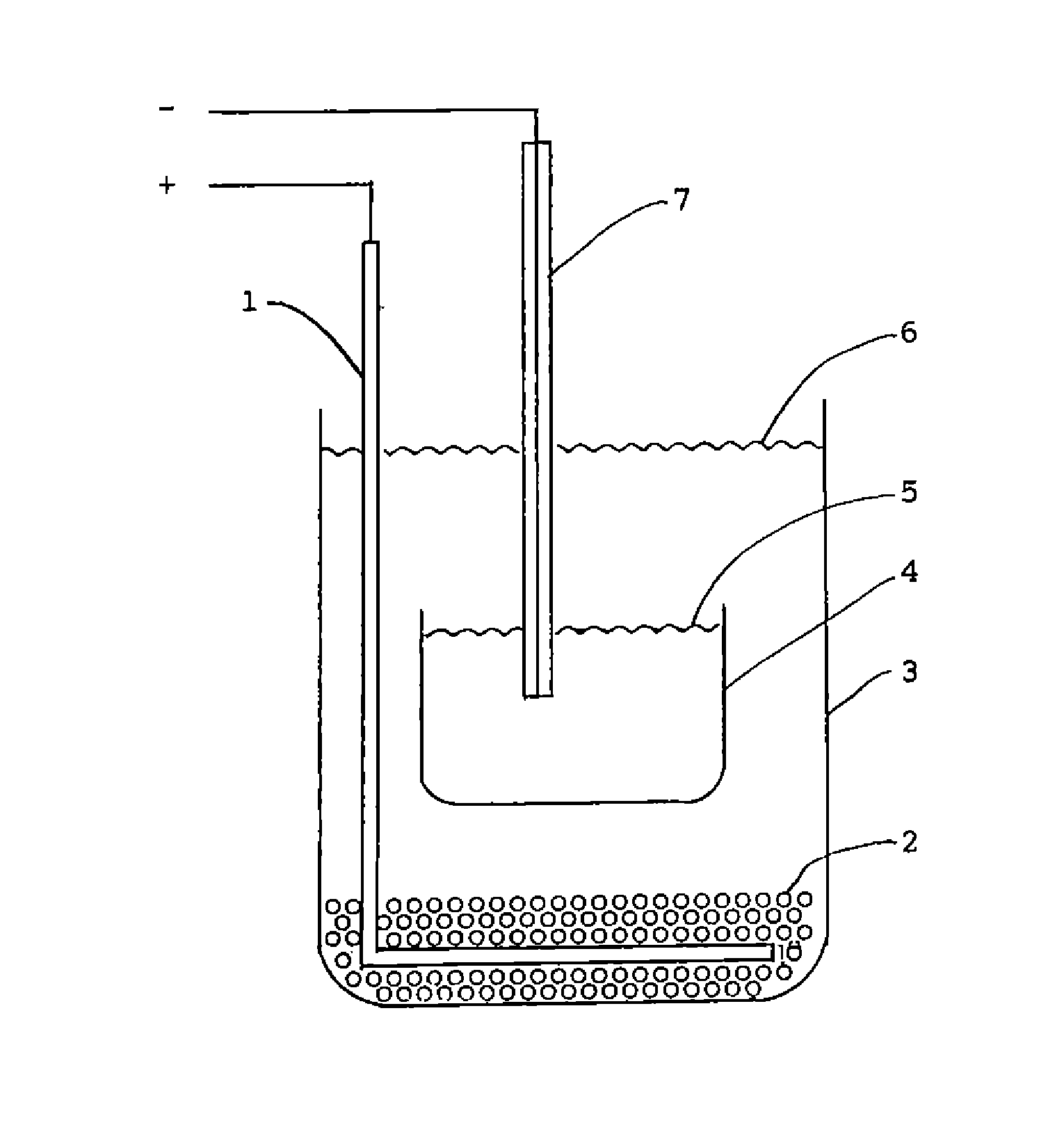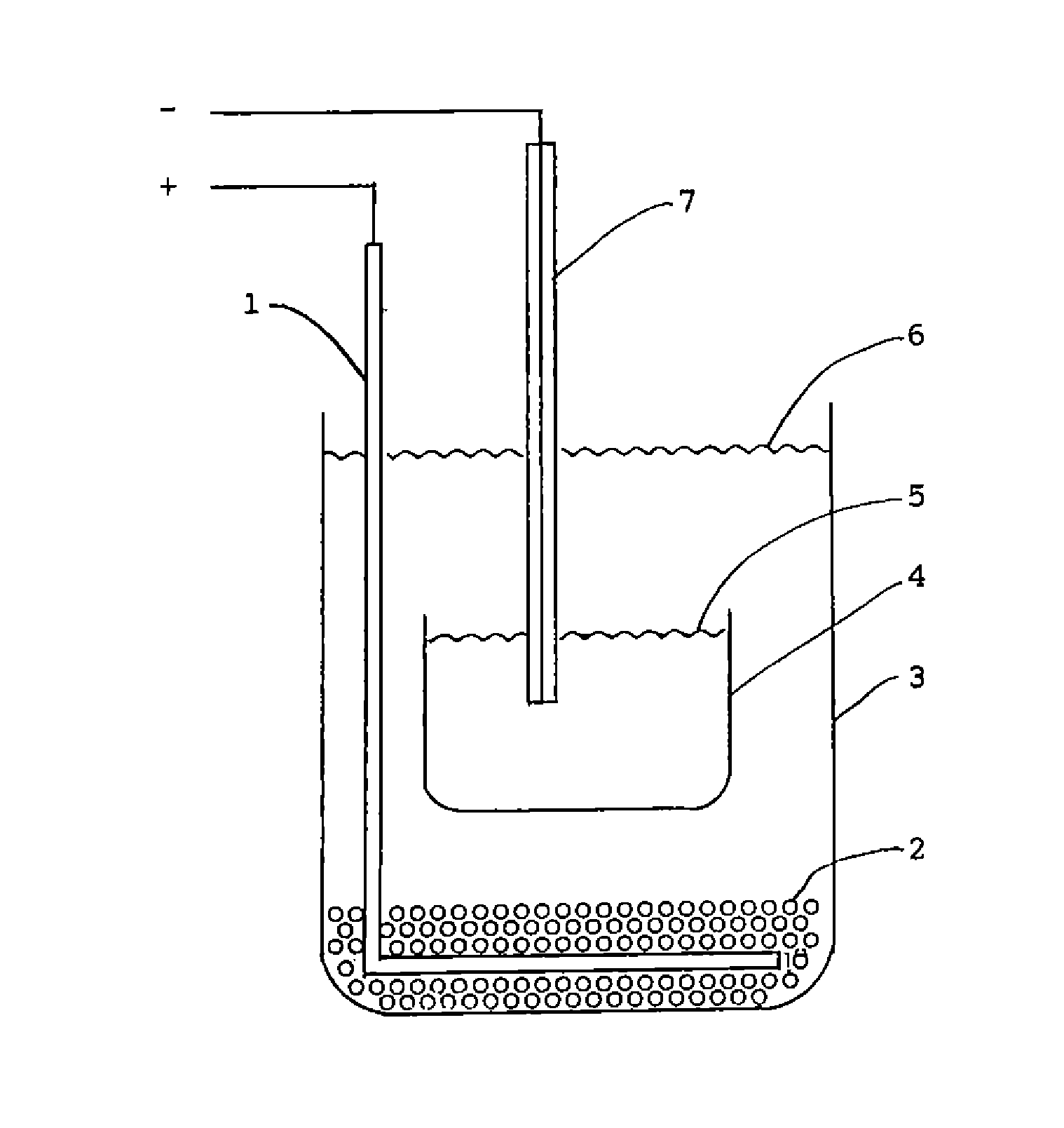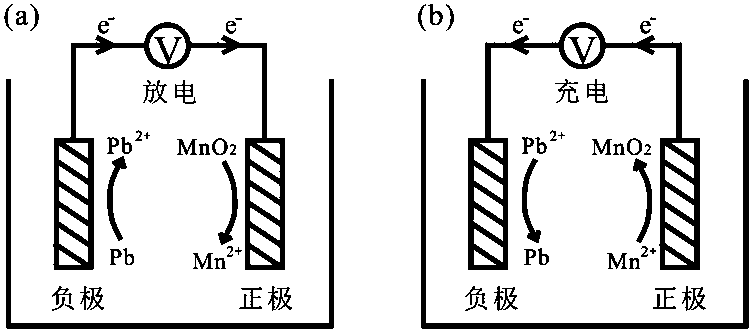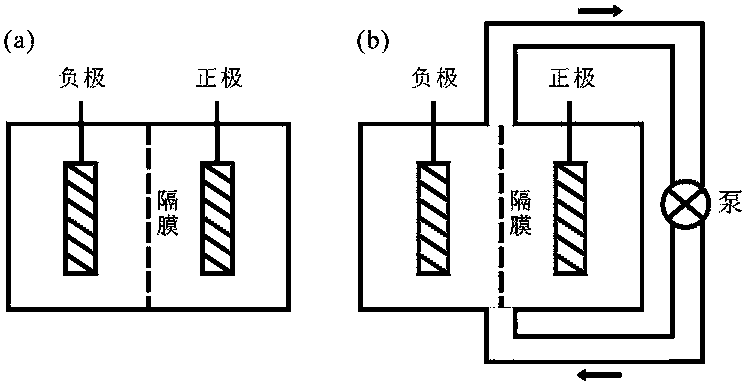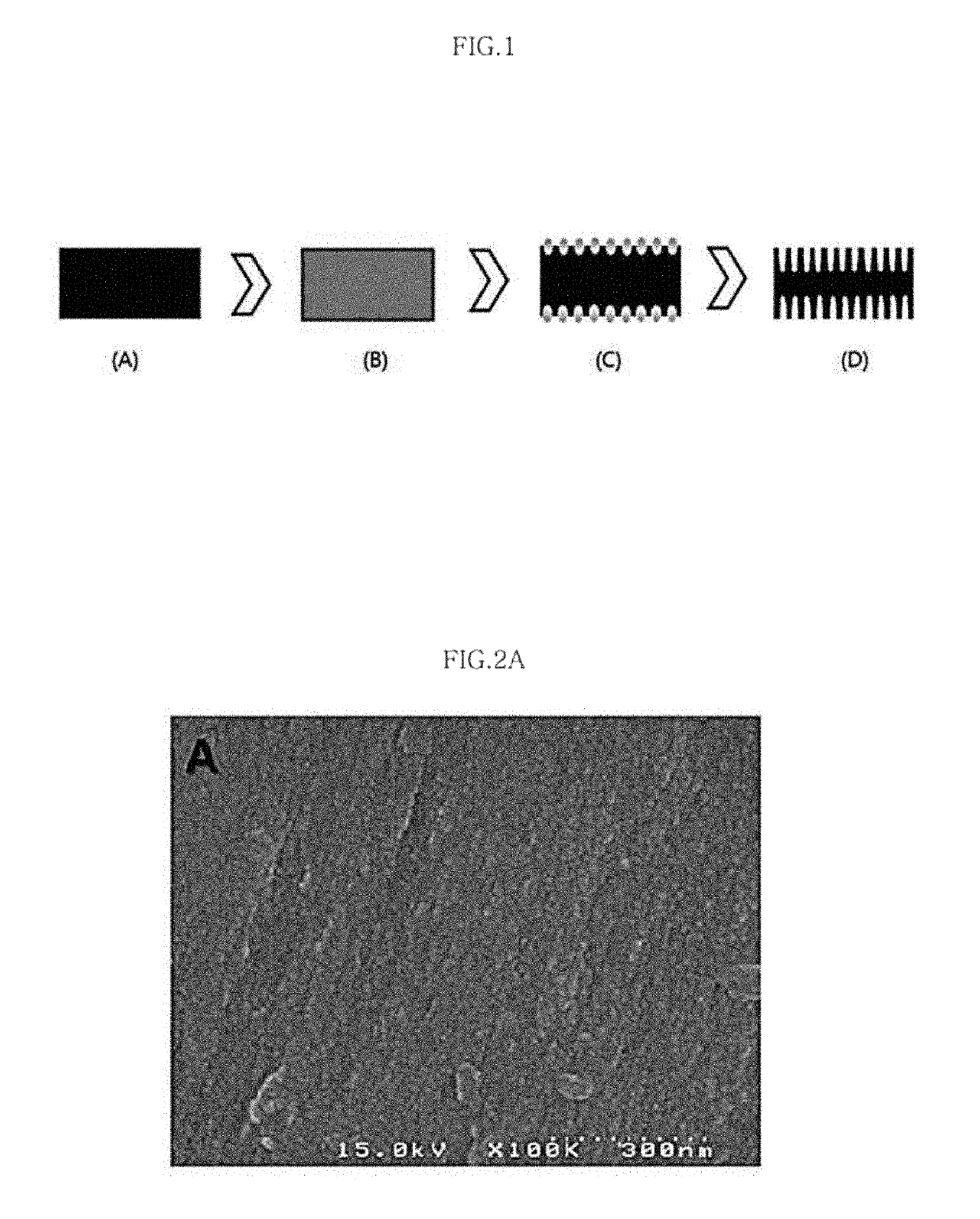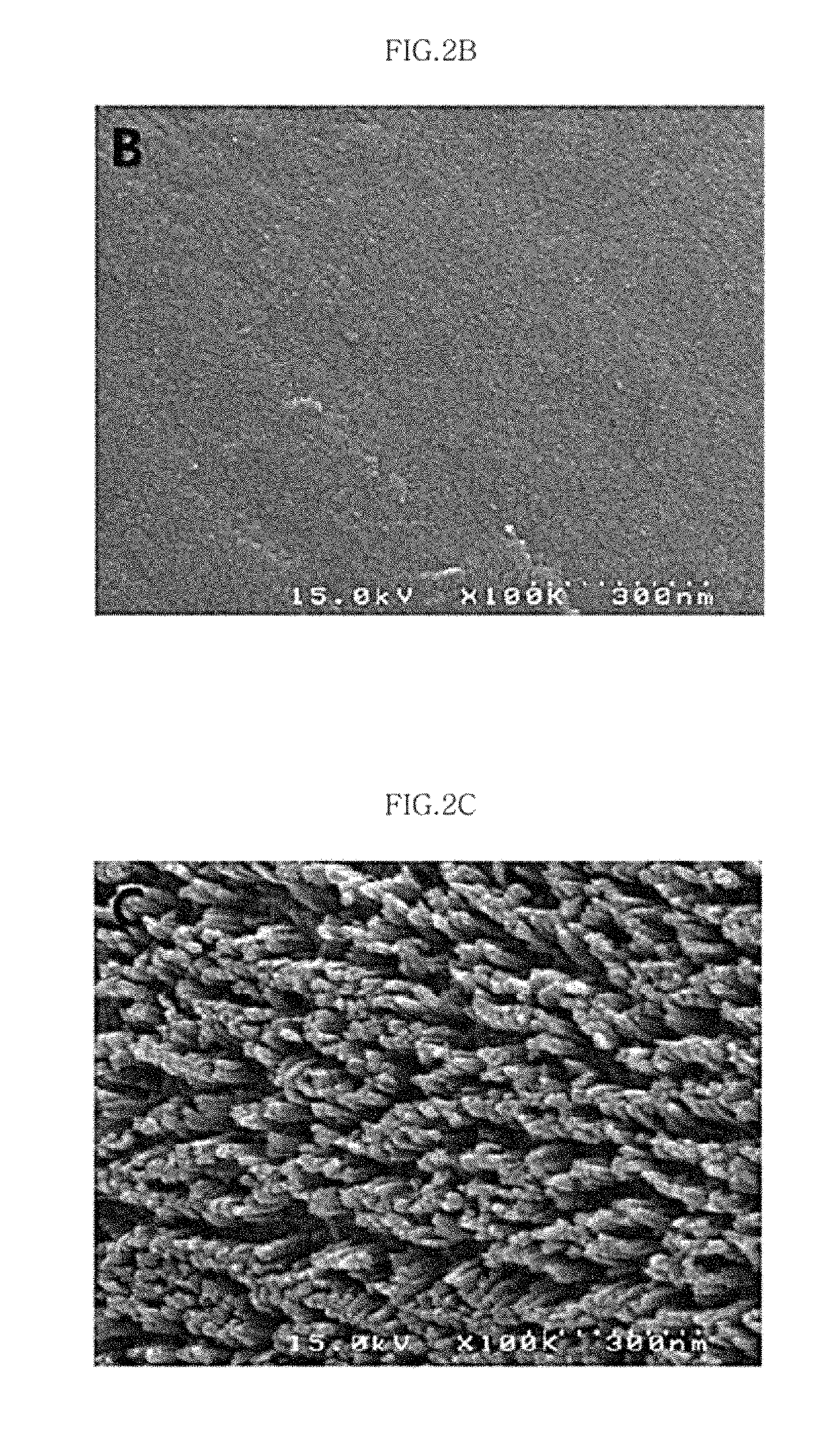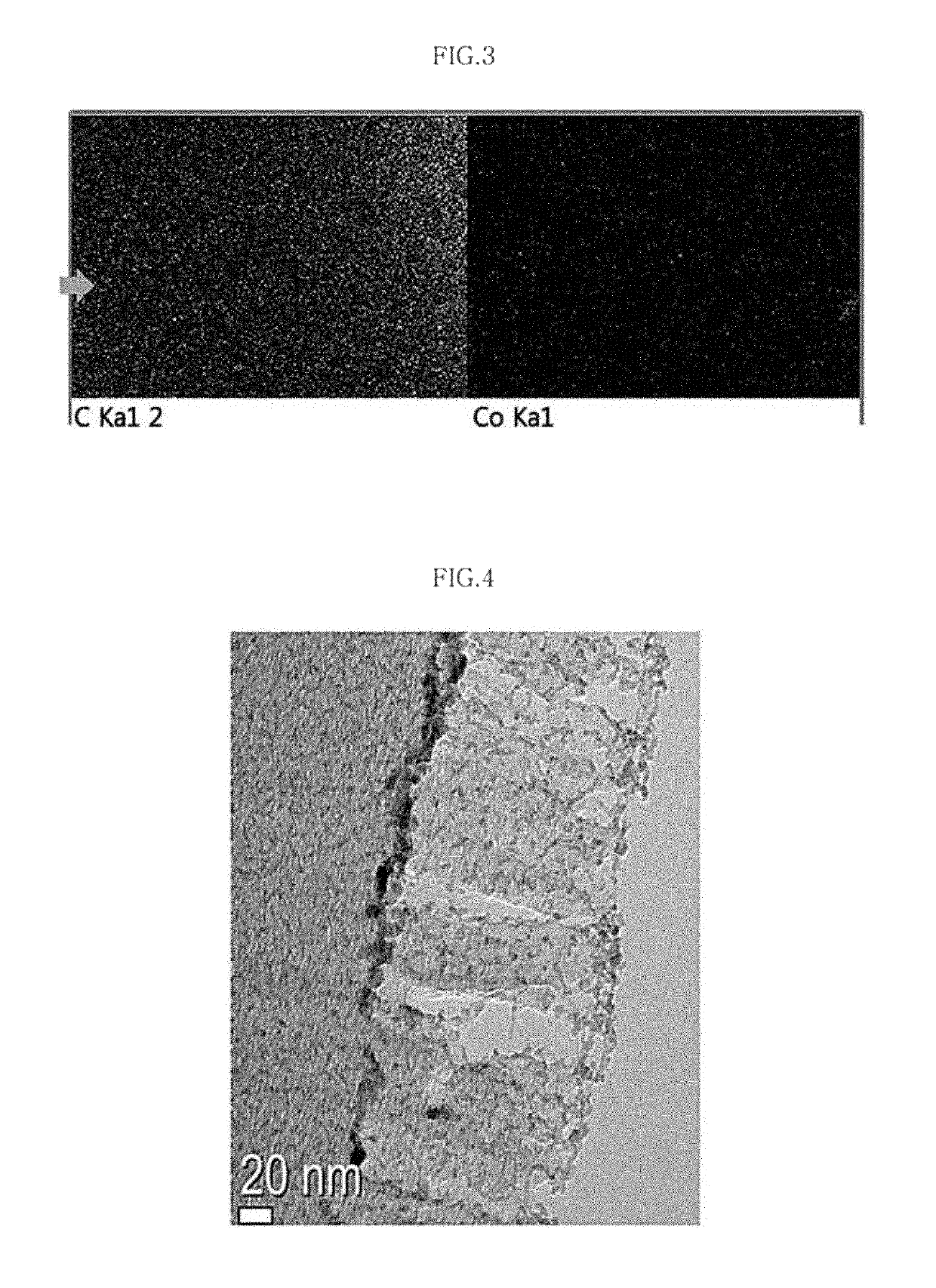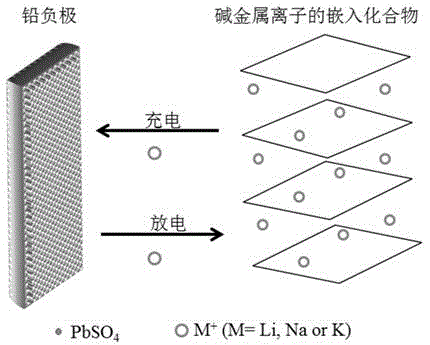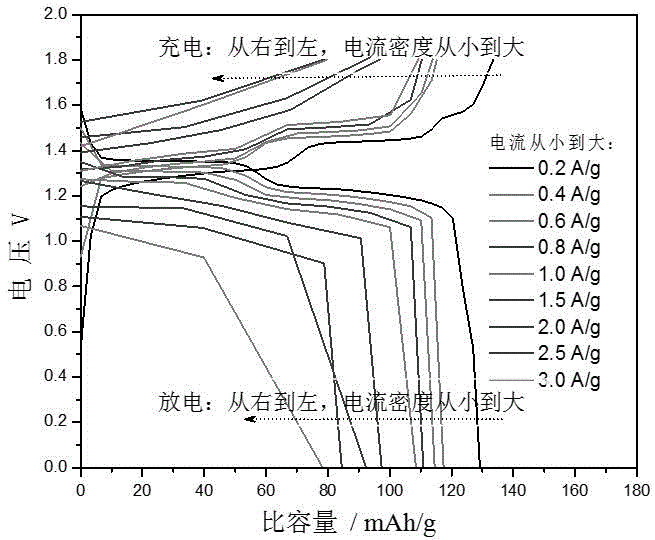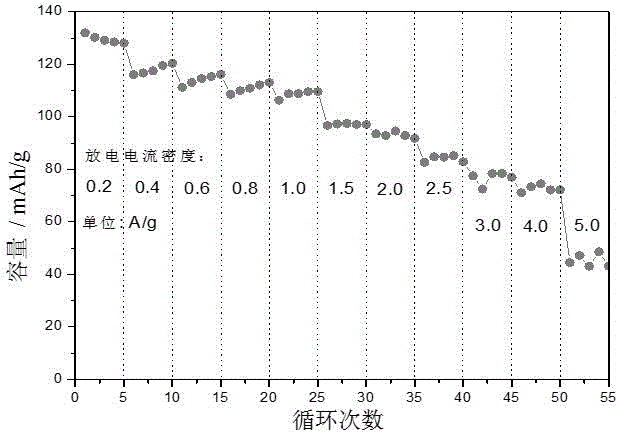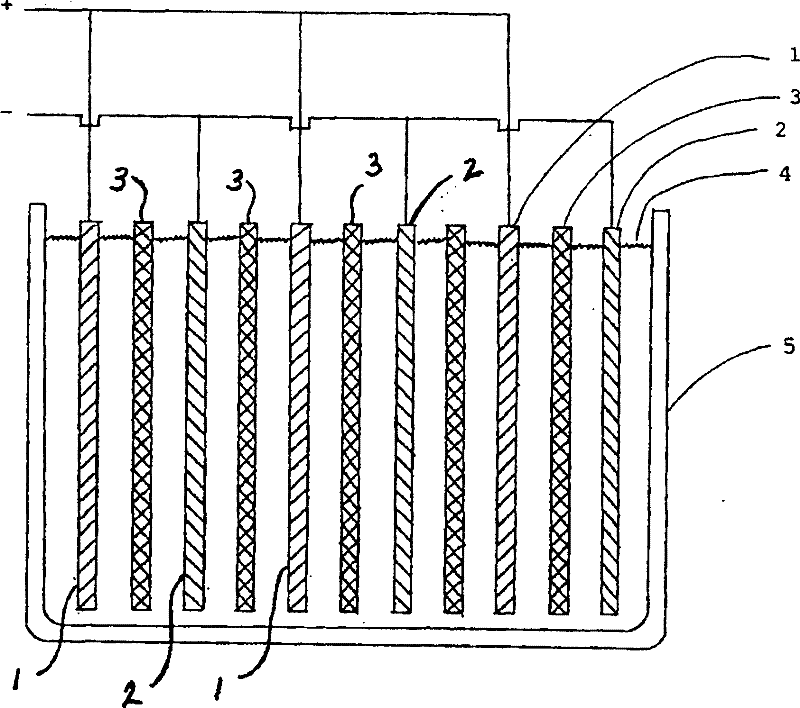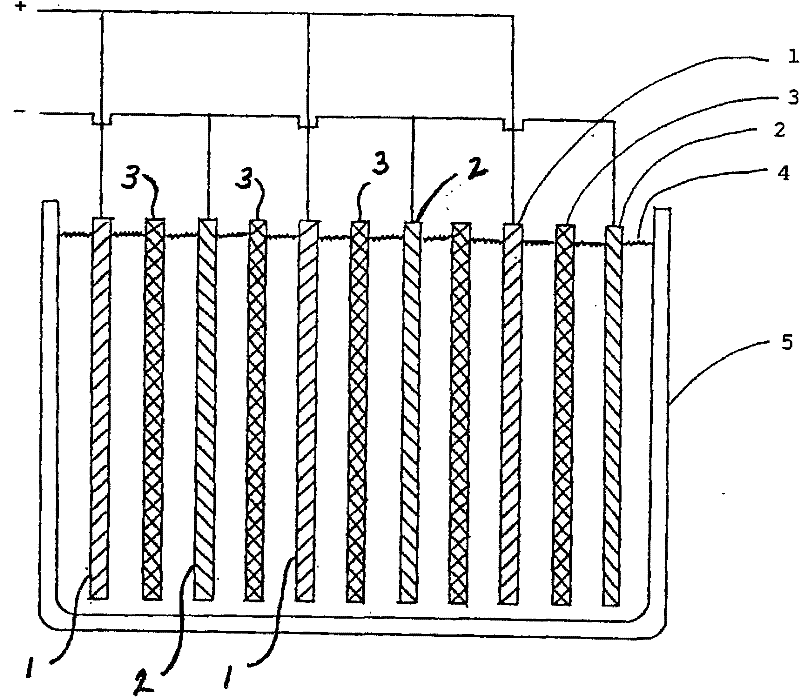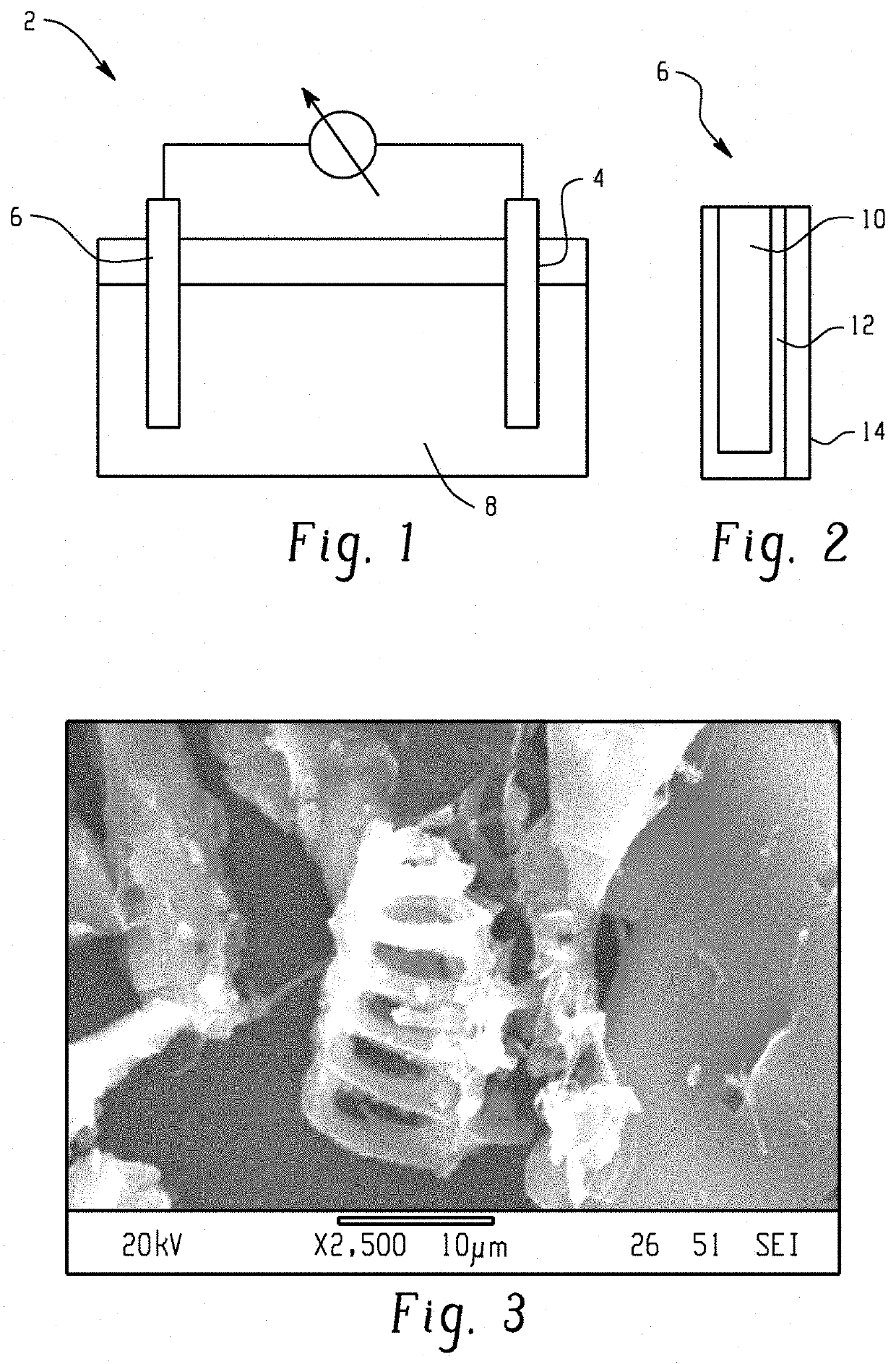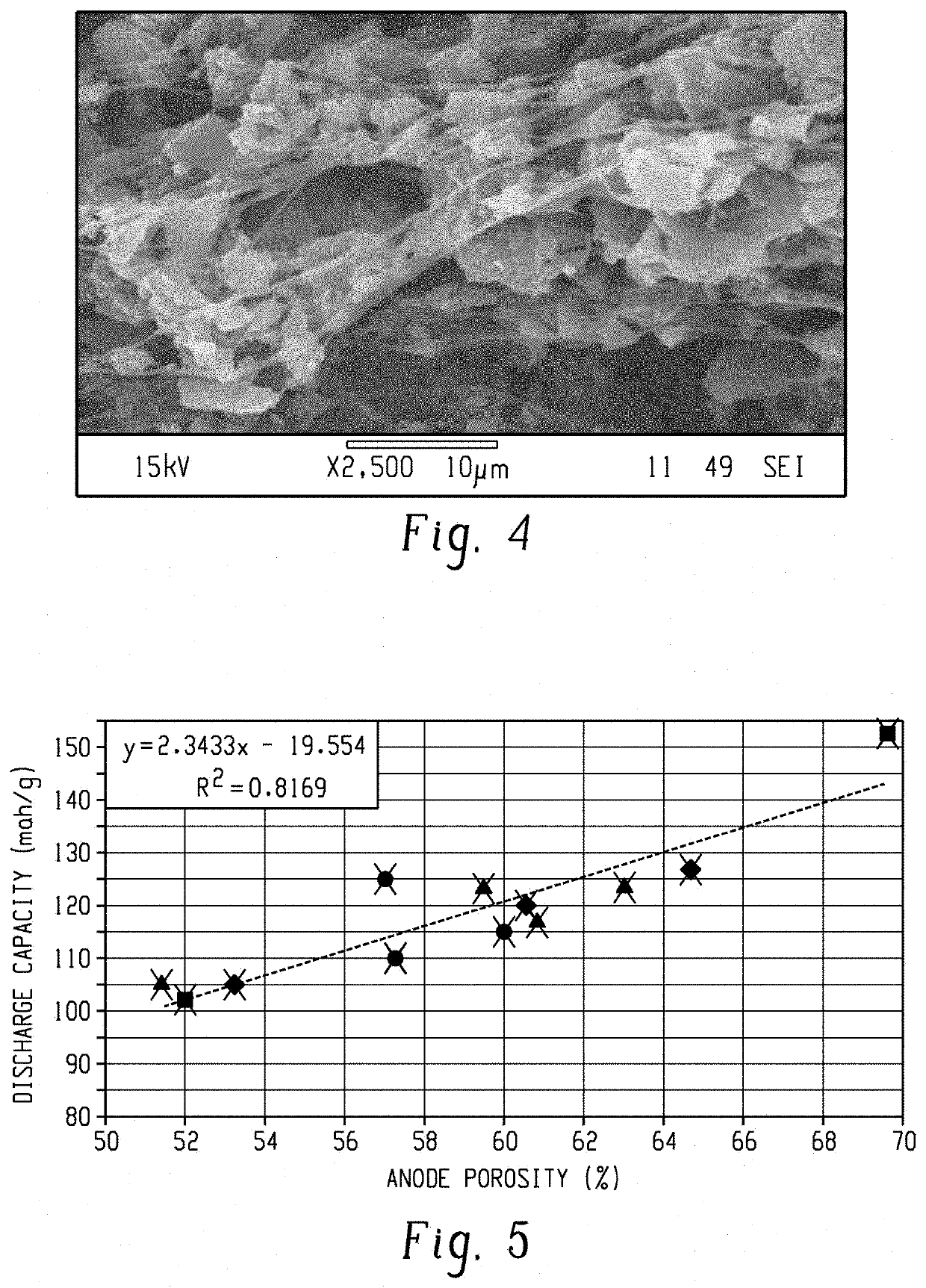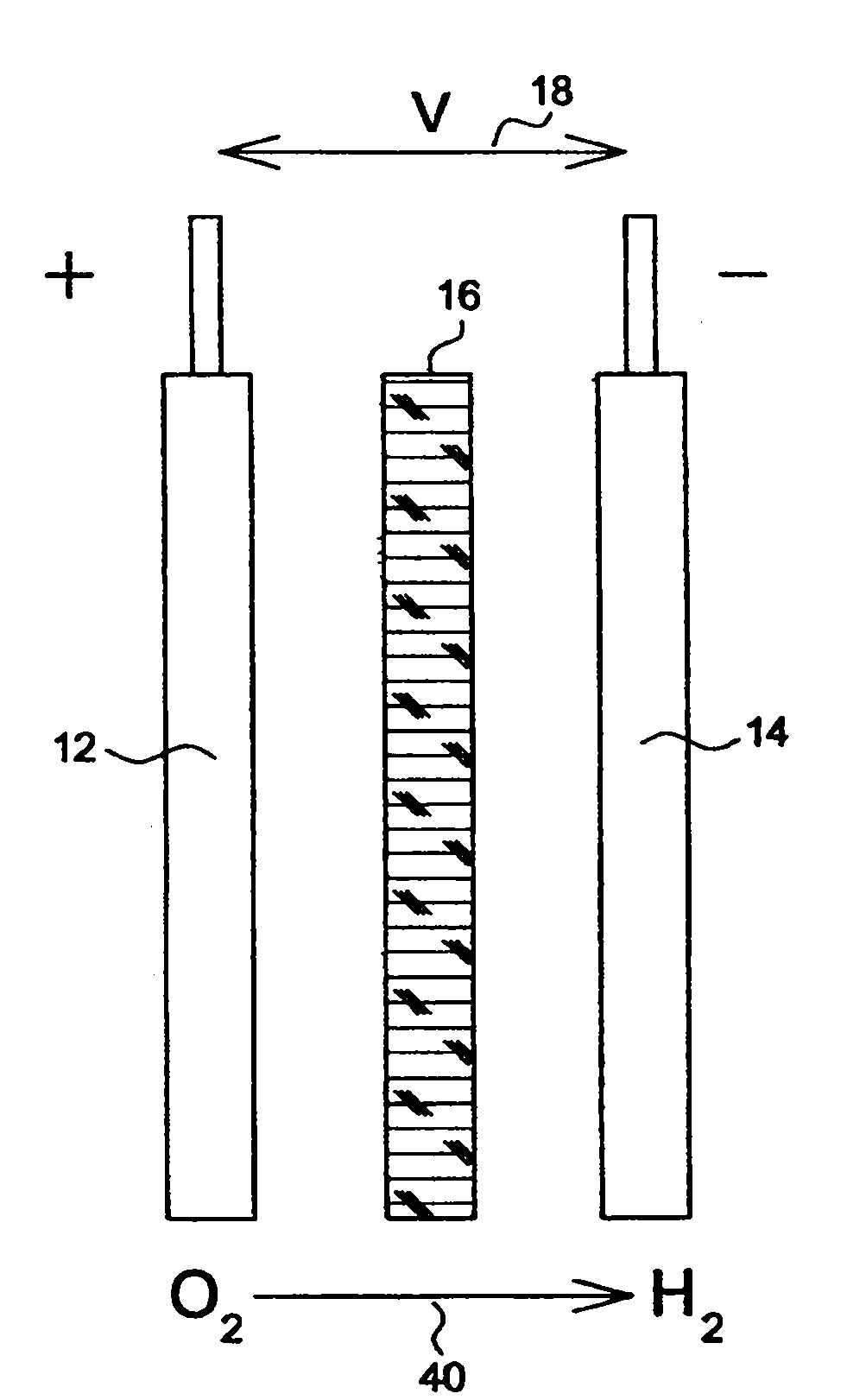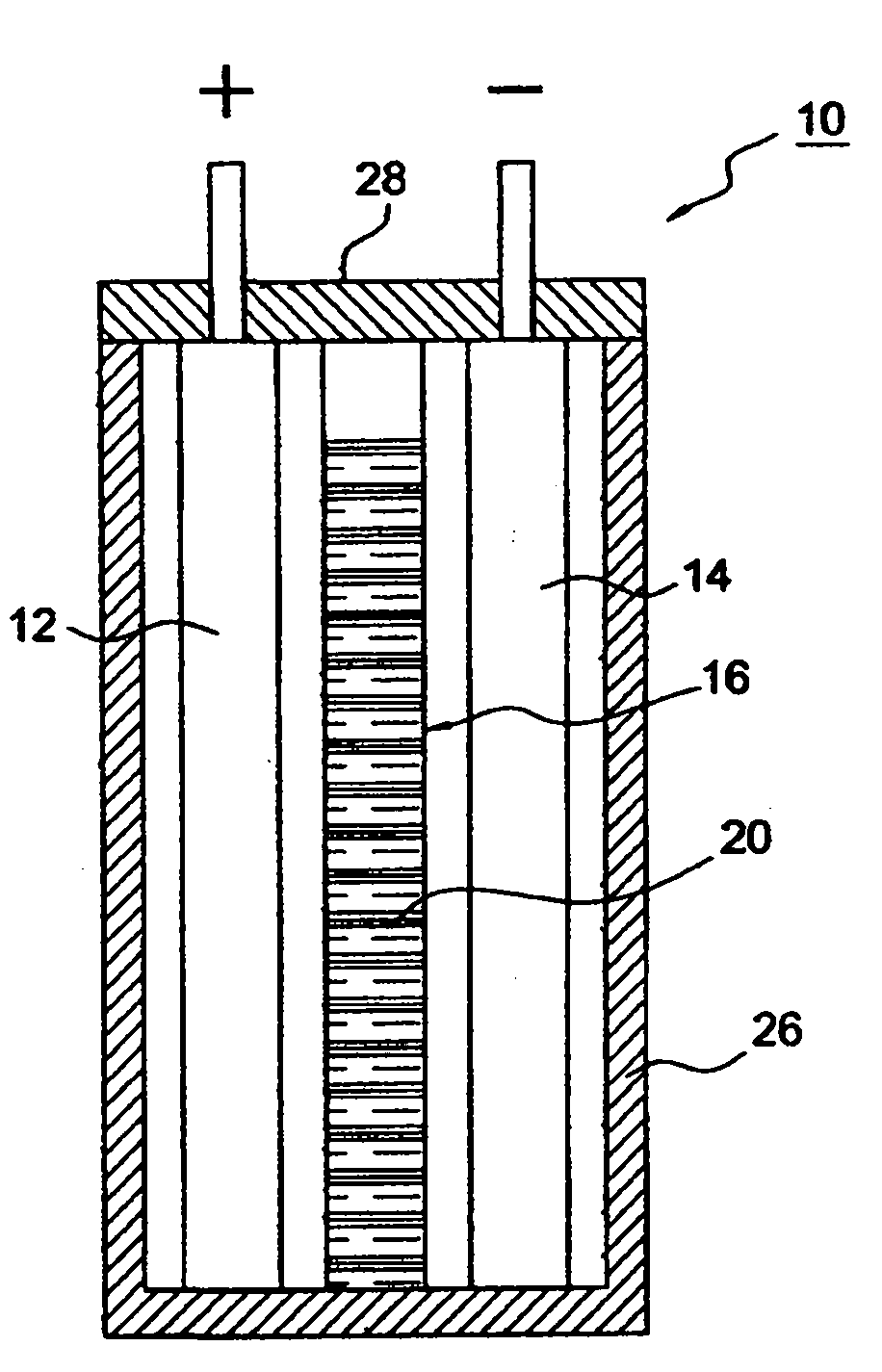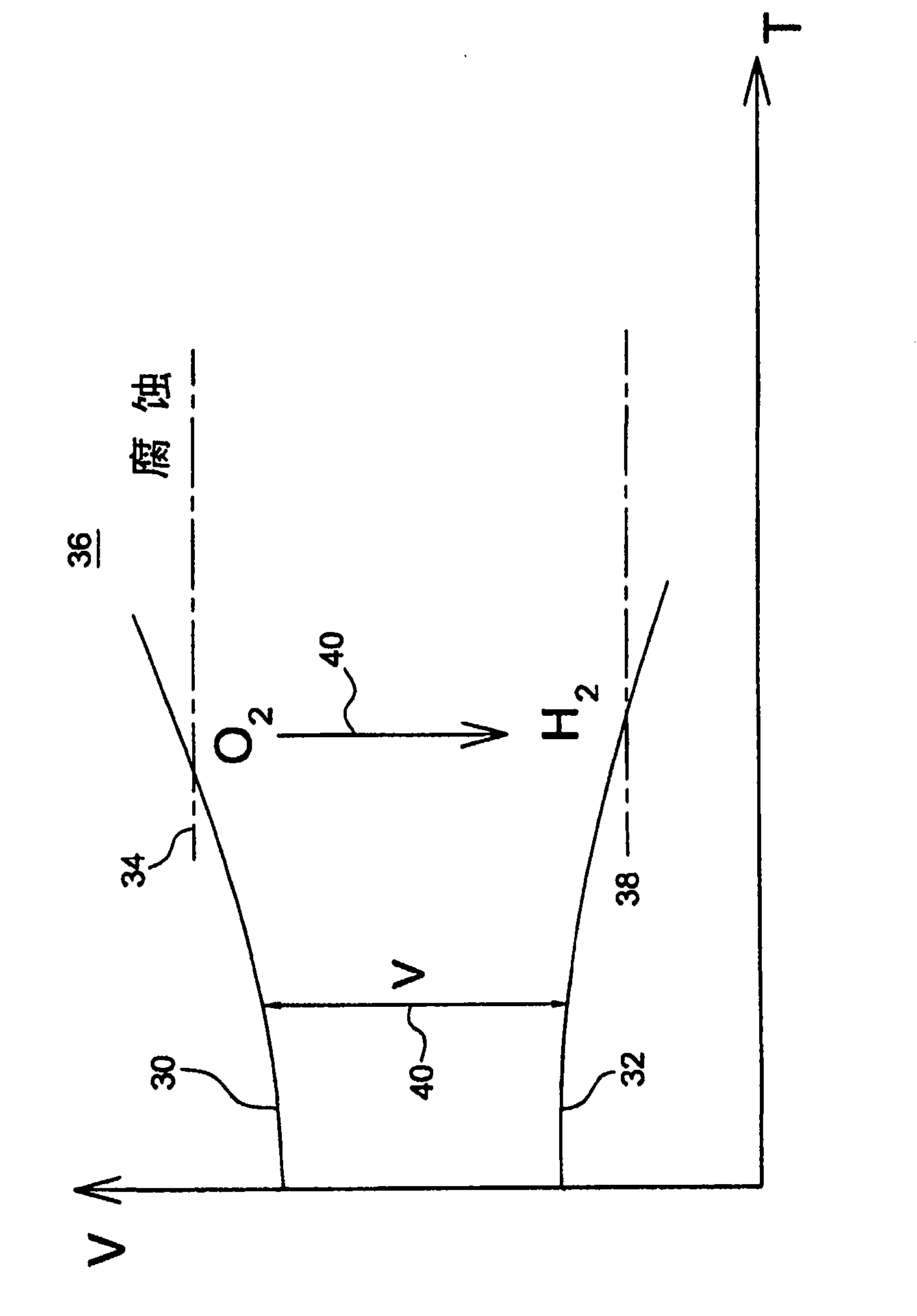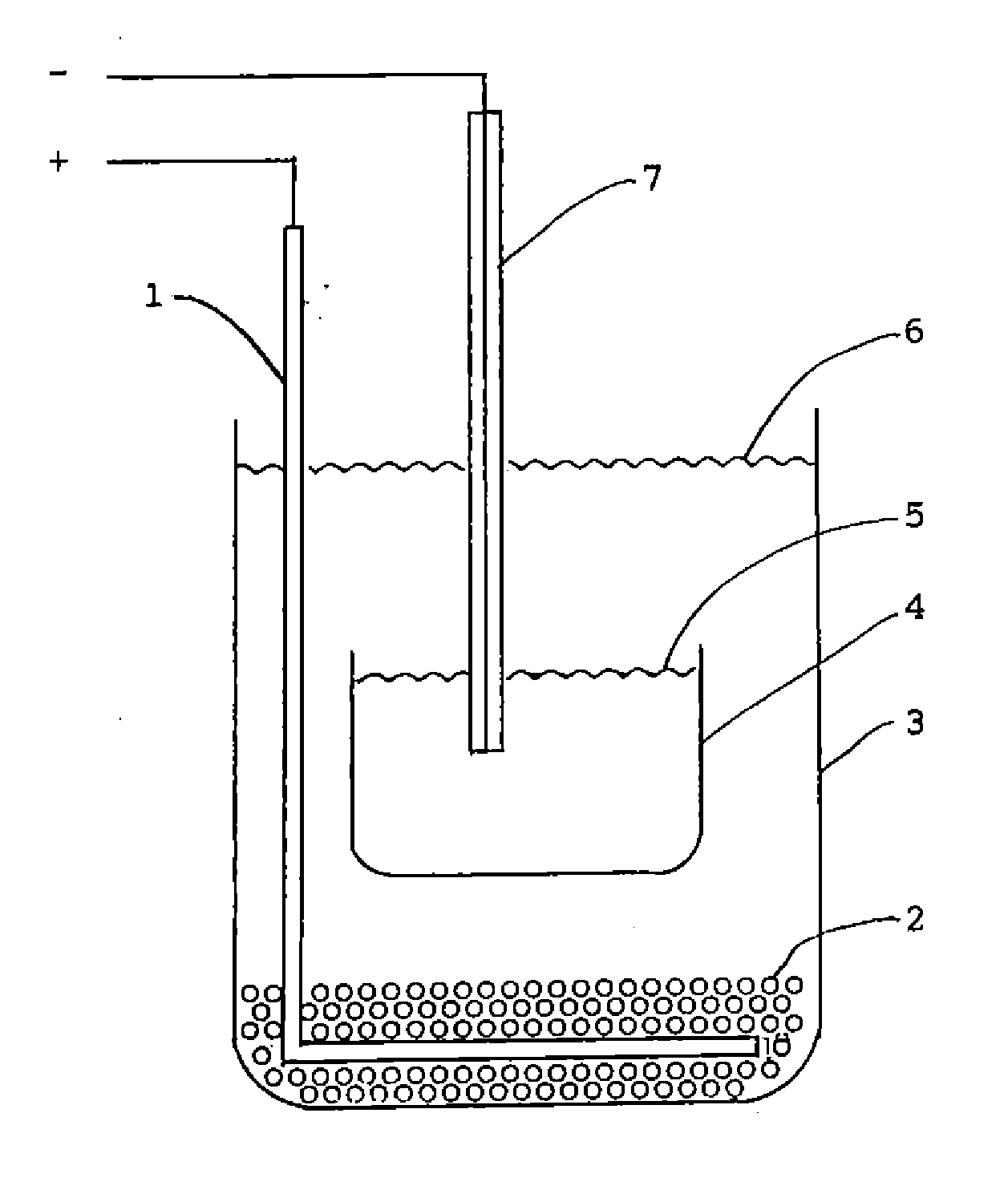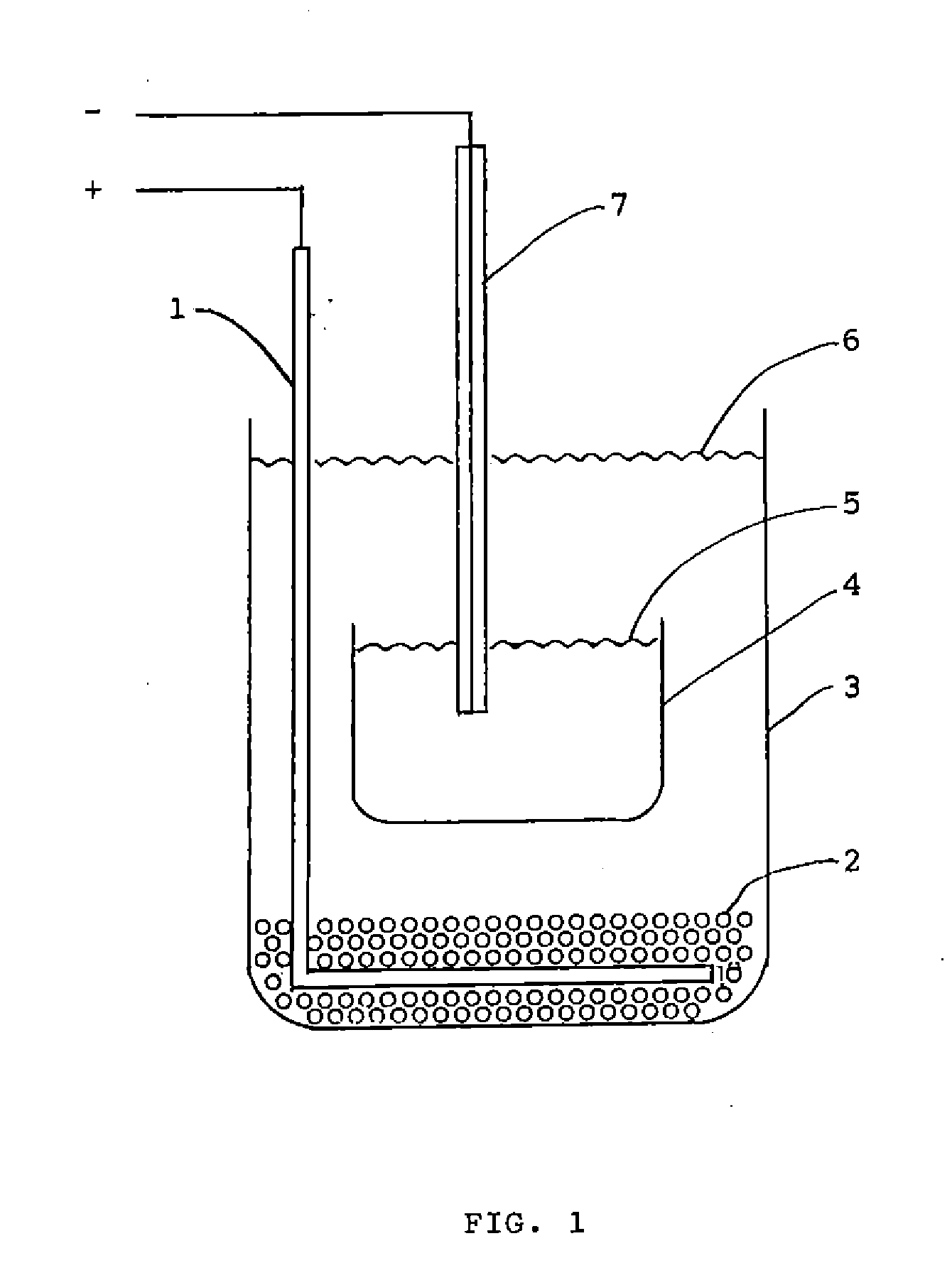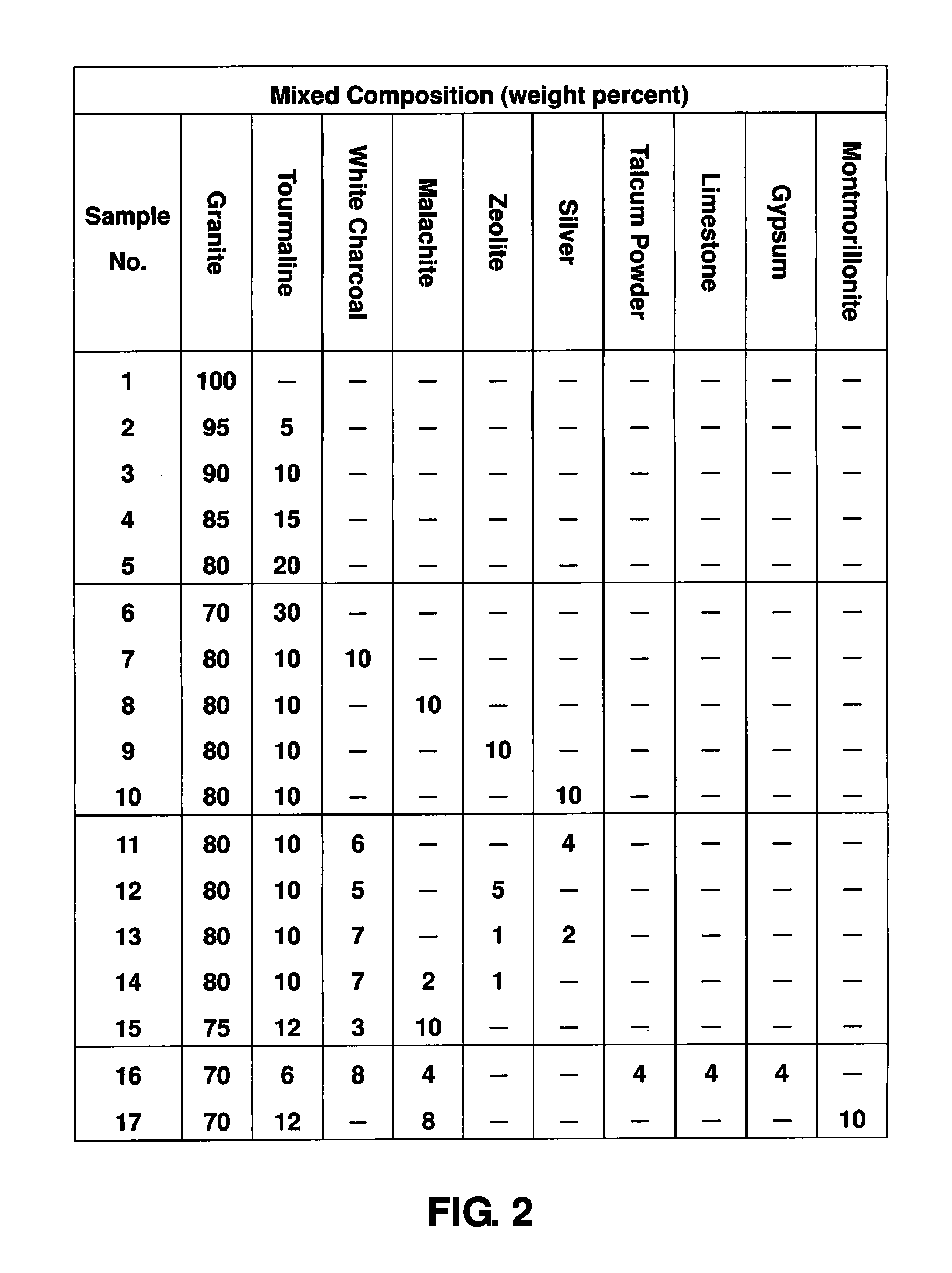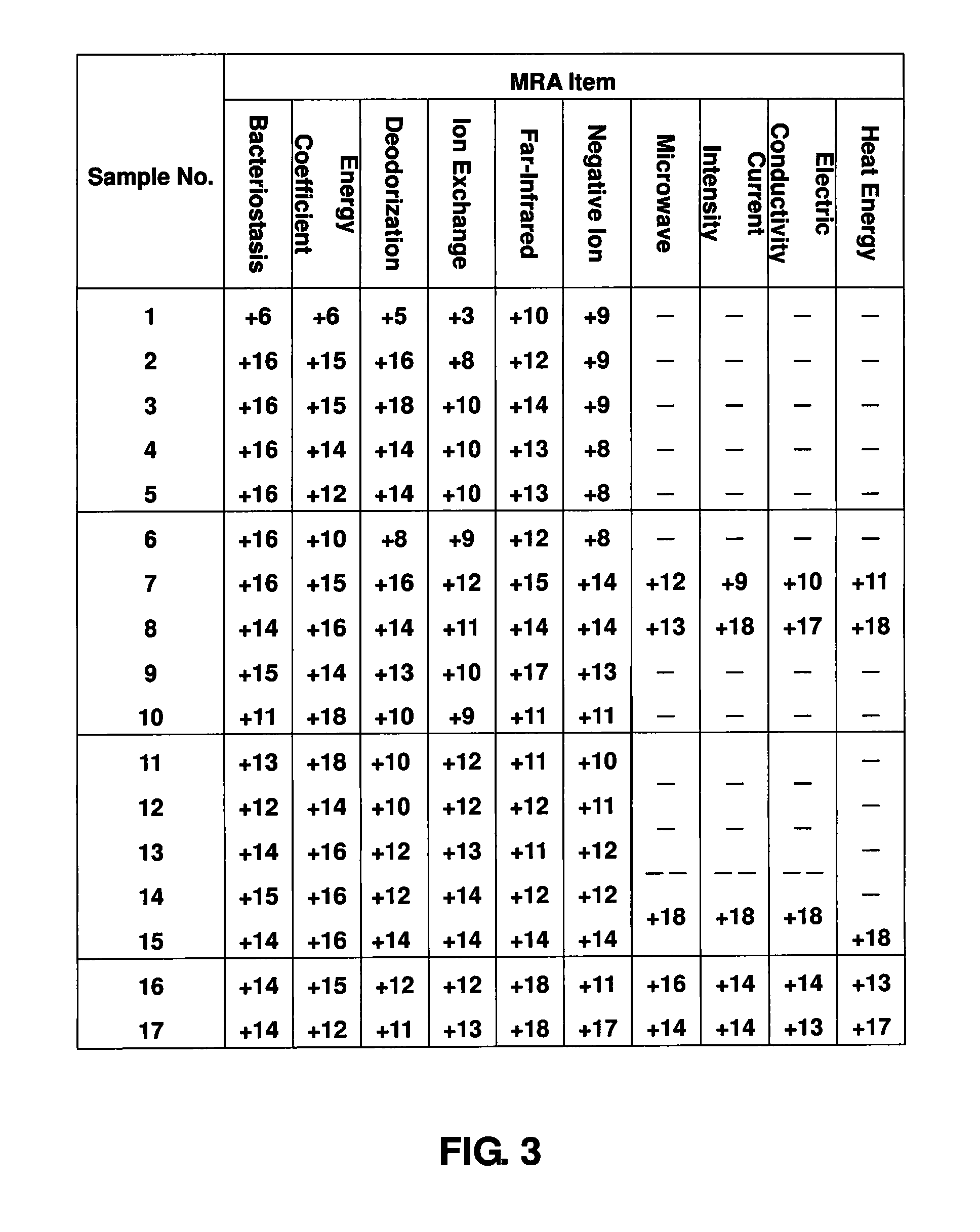Patents
Literature
Hiro is an intelligent assistant for R&D personnel, combined with Patent DNA, to facilitate innovative research.
60results about "Semi-lead accumulators" patented technology
Efficacy Topic
Property
Owner
Technical Advancement
Application Domain
Technology Topic
Technology Field Word
Patent Country/Region
Patent Type
Patent Status
Application Year
Inventor
Battery including carbon foam current collectors
InactiveUS6979513B2Electrode manufacturing processesSemi-lead accumulatorsElectrical batteryNanotechnology
Owner:FIREFLY ENERGY INC
Fluoride ion electrochemical cell
ActiveUS20090029237A1Improve performanceHigh energyAlkaline accumulatorsLead-acid accumulatorsMetallic lithiumState of art
The present invention provides electrochemical cells capable of good electronic performance, particularly high specific energies, useful discharge rate capabilities and good cycle life. Electrochemical cells of the present invention are versatile and include primary and secondary cells useful for a range of important applications including use in portable electronic devices. Electrochemical cells of the present invention also exhibit enhanced safety and stability relative to conventional state of the art primary lithium batteries and lithium ion secondary batteries. For example, electrochemical cells of the present invention include secondary electrochemical cells using anion charge carriers capable of accommodation by positive and negative electrodes comprising anion host materials, which entirely eliminate the need for metallic lithium or dissolved lithium ion in these systems.
Owner:CALIFORNIA INST OF TECH +1
Nickel-metal hydride secondary battery
InactiveUS6399247B1High materialImprove featuresCell seperators/membranes/diaphragms/spacersElectrolytic capacitorsHigh temperature storageNickel oxide hydroxide
A nickel-metal hydride secondary battery comprising electrode group comprising positive electrode comprised mainly of nickel hydroxide, negative electrode comprised mainly of a hydrogen storage alloy, and separator being disposed between the positive electrode and the negative electrode, wherein the electrode group is sealed in battery casing, together with an alkali electrolyte liquid, wherein, in the battery, a W element and an Na element are present simultaneously. The nickel-metal hydride secondary battery of the present invention is advantageous not only in that it exhibits high utilization of the active material and excellent self-discharge characteristics in a high temperature storage as well as high charging efficiency in a high temperature environment, but also in that it has excellent large current discharge characteristics.
Owner:TOSHIBA BATTERY +1
Low-Temperature Liquid Metal Batteries for Grid-Scaled Storage
ActiveUS20140099522A1Alkaline accumulatorsSemi-lead accumulatorsElectrical batteryElectric power system
An electrochemical cell and its method of operation includes an electrolyte having a binary salt system of an alkali hydroxide and a second alkali salt. The anode, cathode, and electrolyte may be in the molten phase. The cell is operational for both storing electrical energy and as a source of electrical energy as part of an uninterruptible power system. The cell is particularly suited to store electrical energy produced by a renewable energy source.
Owner:MASSACHUSETTS INST OF TECH
Battery including carbon foam current collectors
InactiveUS20050191555A1Electrode manufacturing processesElectrode carriers/collectorsElectrical batteryNanotechnology
A battery having a current collector constructed of carbon foam. The carbon foam includes a network of pores into which a chemically active material is disposed to create either a positive or negative plate for the battery. The carbon foam resists corrosion and exhibits a large amount of surface area. The invention includes a method for making the disclosed carbon foam current collector used in the battery.
Owner:FIREFLY INT ENERGY CO
Recombinant Hybrid Energy Storage Device
InactiveUS20080113268A1ThinnerHybrid capacitor separatorsHybrid capacitor electrolytesAcid electrolyteMaterials science
A hybrid energy storage device has at least one lead-based positive electrode and at least one carbon-based negative electrode, a separator between the electrodes, a casing which will contain the electrodes and separator, and an acid electrolyte. The separator is gas permeable, and is capable of absorbing and entraining acid electrolyte. The separator has a finite capacity for absorption of acid electrolyte, and the quantity of acid electrolyte which is present in the cell is less than the finite capacity of the separator. Upon assembly of the cell, the casing is sealed, and there is no liquid acid electrolyte within the assembled cell.
Owner:AXION POWER INT
Connector assembly for stacked electric power modules
InactiveUS10109835B2Simple connection structureEasy to operateCoupling device connectionsSide-by-side/stacked arrangementsComputer moduleEngineering
A connector assembly is provided for stacked electric power modules. Each of the electric power modules includes a front board, a back board, a top board, a bottom board, a left side board, a right side board, and a battery pack contained in the electric power module. The back board of the electric power module includes a connector module mounted thereto and the connector module includes at least one power connector connected to the battery pack and at least one signal connector. The at least one power connector and the at least one signal connector of the connector module are arranged to project beyond a horizontal surface of the top board.
Owner:FORMOSA ELECTRONICS IND INC
Gel electrolyte of power lead-acid storage battery
ActiveCN101908650AReduced silica contentLower impedanceFinal product manufactureSemi-lead accumulatorsPolyethylene glycolColloid
The invention discloses a gel electrolyte of a power lead-acid storage battery, which comprises the following raw materials in percentage by weight: 40-46 percent of H2SO4, 0.2-0.5 percent of SiO2, 0.1-0.5 percent of SnSO4, 0.8-1.2 percent of Na2SO4, 0.01-0.15 percent of PEG (Polyethylene Glycol), 0.01-0.5 percent of PAM (Polyacrylamide) and 47-57 percent of deionized water. The invention also discloses a method for preparing the gel electrolyte of a lead-acid storage battery. The invention has lower silicon dioxide content compared with the traditional electrolyte and no larger change on gelatinous performance and thixotropy, the ohmic resistance of the storage battery prepared by the invention is about 50 percent lower than that of the storage battery made of the traditional electrolyte, and the charging performance is improved by 15 percent or so.
Owner:TIANNENG BATTERY GROUP
Improved energy storage device
InactiveCN101641809ALead-acid accumulatorsCapacitor and primary/secondary cellsTin dioxideEngineering
An energy storage device comprising at least one negative electrode, wherein each negative electrode is individually selected from (i) an electrode comprising negative battery electrode material; (ii)an electrode comprising capacitor electrode material; (iii) a mixed electrode comprising either - a mixture of battery and capacitor electrode material or - a region of battery electrode material anda region of capacitor electrode material, or - a combination thereof, and wherein the energy storage device either comprises at least one electrode of type (iii), or comprises at least one electrodeof each of types (i) and (ii), - at least one positive electrode, wherein the positive electrode comprises positive battery electrode material and a charging ability-increasing additive, such as one or a mixture of: (a) carbon nanomaterial, vapour grown carbon fibre, fullerene, or a mixture thereof, and (b) tin dioxide conductive materials.
Owner:COMMONWEALTH SCI & IND RES ORG +1
Fluoride ion electrochemical cell
ActiveUS20120270076A9Improve performanceHigh energyAlkaline accumulatorsLead-acid accumulatorsMetallic lithiumState of art
Owner:CALIFORNIA INST OF TECH +1
Lead-zinc battery
Owner:STAUFFER JOHN E
In-vehicle electricity storage system
InactiveUS20170136968A1Avoid inefficient chargingConstant voltageLead-acid accumulatorsSemi-lead accumulatorsElectricityComponent Load
When a charge state of an auxiliary battery transitions to a first charge state, a charge / discharge controller executes a first process in which a first voltage is applied to an in-vehicle power supply unit to charge the in-vehicle power supply unit with a constant voltage. When the charge state of the auxiliary battery transitions to a second charge state, the charge / discharge controller executes a second process in which a second voltage is applied to the in-vehicle power supply unit, charging of the auxiliary battery is stopped, and the auxiliary battery is caused to discharge electricity to an electrical component load or the like. The charge / discharge controller repeats the first process and the second process until a charge state of a lead storage battery transitions to a third charge state.
Owner:PANASONIC INTELLECTUAL PROPERTY MANAGEMENT CO LTD
Lead carbon battery comprising an activated carbon anode
InactiveUS20200075953A1Improve discharge performanceHigh porosityCell electrodesSemi-lead accumulatorsActivated carbonLead oxide
A lead carbon battery includes an activated carbon anode comprising the active layer and a current collector, wherein the active layer is in electrical contact with the current collector; a lead oxide cathode that is in electrical contact with a cathode side current collector; an acid located in between the activated carbon anode and the cathode; and a casing encapsulating the activated carbon anode, the cathode, and the acid wherein the active layer includes greater than or equal to 85 weight percent of the activated carbon, 1 to 15 weight percent of a fibrillated poly(vinylidene fluoride), and 0 to 10 weight percent of an electrically conductive filler.
Owner:TEEBS R&D LLC
An energy storage device, an inorganic gelled electrolyte and methods thereof
InactiveCN103875050AHybrid capacitor electrolytesHybrid capacitor electrodesActivated carbonFaraday efficiency
The present invention is related to hybrid capacitors specifically to PbO2 / Activated Carbon hybrid ultracapacitors with an inorganic thixotropic-gelled-polymeric-electrolyte. The hybrid ultracapacitor of the present invention is simple to assemble, bereft of impurities, and can be charged / discharged rapidly with high faradaic efficiency.
Owner:INDIAN INSTITUTE OF SCIENCE
Electrolyte for acid-free ion sodium salt storage cell
InactiveCN1808756AImprove electrochemical performanceExtended service lifeLead-acid accumulatorsSemi-lead accumulatorsButylated hydroxytolueneSodium salt
The invention discloses an inacidity ionic state sodium salt battery electrolyte, which comprises 40.0-60.0%(w / / v) of sodium salts, 0.5-0.8%(w / / v) of EDTA, 0.2-0.4%(v / v) of anti-aging agent 2-sulfhydryl benzimidazole allyl sulfide, 0.2-0.4% (w / v) of anti-oxidizing agent 2, 6-butylated hydroxytoluene, 30.0-35% (v / v) of H3PO4 and distilled water. The invention can be applied for avoiding environmental pollution by sulfuric acid in the lead-acid accumulator electrolyte.
Owner:张西琮
Lead-zinc battery
InactiveUS20130252083A1Area maximizationImprove conductivityAlkaline accumulatorsLead-acid accumulatorsLead dioxideLead sulfate
A rechargeable battery is provided such that the positive electrode comprises lead, the negative electrode zinc, and the electrolyte is an aqueous solution of an alkali metal bisulfate. Upon discharge, lead dioxide is reduced to lead sulfate, zinc is oxidized to zinc oxide, and the electrolyte is converted to an alkali metal hydroxide. The reactions are reversed when the battery is charged.
Owner:STAUFFER JOHN E
Lead-alkaline battery
A rechargeable battery is provided such that the positive electrode comprises lead dioxide, the negative electrode zinc, iron, lead or cadmium, and the electrolyte is alkaline. Upon discharge, the lead dioxide is reduced to lead oxide, the metal is oxidized to an oxide, and the electrolyte remains unchanged. The reactions are reversed when the battery is charged.
Owner:JES TECH LLC
Overlapped copper-acid storage battery
InactiveCN105322238AGuaranteed long-term useCan not produce "vulcanization" phenomenonSemi-lead accumulatorsElectrochemical responseLead sheet
The invention relates to the technical field of electrochemical energy storage equipment, and discloses an overlapped copper-acid storage battery. The overlapped copper-acid storage battery comprises a housing (1), an electrolyte (7), a negative electrode plate (5) and a partition plate (4); the electrolyte comprises a copper sulfate saturated aqueous solution; the current carrier of the negative electrode plate is a pure lead sheet or a copper sheet, wherein a metal layer resistant to dilute sulphuric acid is plated on the surface of the copper sheet; and a copper layer is plated on the surface of the current carrier of the negative electrode plate to be used as the negative electrode active substance. According to the copper-acid storage battery, copper is used to replace lead to be used as the negative electrode active substance; the mixed liquid of dilute sulphuric acid and copper sulfate is used as the electrolyte; the charging / discharging electrochemical reaction of the negative electrode plate only comprises the conversion of copper and the copper sulfate, so that the headache problem that the lead sulfate deposition in the negative electrode plate of a lead-acid storage battery is solved completely, and the service life of the copper-acid storage battery is greatly prolonged consequently.
Owner:汤恭年
Lead-palladium battery
A storage battery is provided comprising a positive electrode of lead, a negative electrode of palladium, and an electrolyte consisting of an aqueous solution of a sulfate salt. Upon charging, lead is converted to lead dioxide and atomic hydrogen is absorbed by the palladium. During discharge, lead dioxide is reduced to the plumbous state and hydrogen is oxidized to hydrogen ions.
Owner:JES TECH LLC
Battery, battery pack, and uninterruptible power supply
ActiveUS20180048016A1Extend battery lifeImprove battery performanceFinal product manufactureCell electrodesMass ratioElectrochemistry
The present invention provides a battery, including a cathode, a anode, and an electrolyte solution. The cathode includes a cathode active substance and a cathode current collector. The electrolyte solution includes first metal ions and second metal ions. In a charging / discharging process, the first metal ions can be reversibly deintercalated-intercalated at the cathode, the second metal ions can be reduced and deposited as a second metal at the anode, and the second metal can be oxidized and dissolved back to the second metal ions. The anode includes a anode active substance and a anode current collector. A lead-containing substance is provided on a surface of the anode active substance and / or in the electrolyte solution. A mass ratio of lead in the lead-containing substance to the battery is not greater than 1000 ppm. The present invention can effectively improve a dendrite problem at a anode of a battery, prolong the cycle life of the battery, and improve the electrochemical performance and safety performance of the battery.
Owner:POSITEC POWER TOOLS (SUZHOU) CO LTD +1
Water system lithium-ion hybrid battery
ActiveCN106229463AImprove cycle lifeImprove securityCell electrodesSemi-lead accumulatorsElectrical batteryEngineering
The invention discloses a water system lithium-ion hybrid battery, and belongs to the technical field of hybrid batteries. The water system lithium-ion hybrid battery comprises a positive plate and a negative plate, the positive plate is composed of a positive current collector and a positive active substance, the negative plate is composed of a negative current collector and a negative active substance, and the positive current collector is plated with terne metal; the negative active substance is prepared from, by mass, 80-90% of lead sulfate, 0.05-0.15% of barium sulfate, 2-10% of binder, 1-10% of conducting agent and 0.1-0.5% of organic expanding agent. A positive pole of the hybrid battery is made of a lithium-ion battery positive pole material, a negative pole is made of a negative pole material of a lead storage battery, the energy density of the battery reaches 70 Wh / kg or more and is about twice that of the lead storage battery, the cycle life is larger than 1000 times, the cost is about 0.6 yuan / Wh and is slightly higher than that of the lead storage battery while remarkably lower than that of the traditional lithium-ion battery, and safety is excellent.
Owner:TIANNENG BATTERY GROUP
Aluminum storage battery
A storage battery is provided comprising a positive electrode of lead, a negative electrode of gallium and an aqueous electrolyte containing aluminum sulfate. Upon charging the cell, lead dioxide is formed and aluminum is alloyed with the gallium. During discharge, aluminum goes back into solution and lead dioxide is reduced to lead sulfate.
Owner:JES TECH LLC
Lead-manganese secondary battery
ActiveCN108390110AReduce dosageExcellent fast charge and discharge performanceSemi-lead accumulatorsElectrical batteryManganese
The invention belongs to the technical field of electrochemistry and in particular relates to a lead-manganese secondary battery. The secondary battery comprises a negative electrode taking lead as anactive substance, a positive electrode taking manganese dioxide as an active substance, sulfuric acid solution electrolyte and a porous diaphragm. According to the lead-manganese secondary battery, based on dissolving and deposition reaction of the electrode active substances, the reaction speed of positive electrode reaction is not controlled by dispersion of ions in an electrode crystal structure and ultrahigh power density is realized; negative electrode reaction is stable and reliable lead / lead sulfate conversion reaction and a dendritic crystal problem is not caused; the battery has high-stability cycling life. Compared with a commercialized lead acid battery system, one half of dosage of the lead of a battery system is reduced and a semi-lead battery can be obtained; the rapid charging / discharging performance and the cycling life are better than that of an existing lead acid battery system, so that the market of existing lead acid batteries can be replaced.
Owner:FUDAN UNIV
Porous carbon materials and methods of manufacturing the same
ActiveUS10454115B2Large specific surface areaImprove electrochemical activityCell electrodesSemi-lead accumulatorsElectrochemical responsePtru catalyst
Provided is a porous carbon material having carbon nano-rods on the surface thereof. The porous carbon material has an increased specific surface area and an increased electrochemically active area, and thus may be expected to provide improved performance, when used as an electrode for electrochemical reactions. In addition, the carbon nano-rods of the porous carbon material are formed through an etching process using a catalyst for etching formed on the carbon material, and thus the carbon material may have various functions.
Owner:KOREA INST OF SCI & TECH
Acid-free storage battery taking lead as negative electrode
ActiveCN104157916AImprove performanceImprove stabilitySemi-lead accumulatorsElectric powerElectrolyte
The invention belongs to the technical field of electrochemistry, and in particular relates to an acid-free storage battery taking lead as a negative electrode. The negative electrode of the acid-free storage battery is metal lead or an alloy of the lead or other modified objects; an electrolyte is an aqueous solution of common alkali metal ions or hydrogel; a common positive electrode material is a compound or a dopant thereof, a coating-type compound and a mixture in which the alkali metal ions can generate reversible intercalation. The acid-free storage battery taking the lead as the negative electrode is extremely high in safety and rate capability, and can be widely applied in storage and release of electric power.
Owner:长兴诺力电源有限公司
Lead-zinc battery
InactiveCN102055026AMaximize electrode surface areaImprove conductivityAlkaline accumulatorsLead-acid accumulatorsLead dioxideSulfate
A rechargeable battery is provided such that the positive electrode comprises lead, the negative electrode zinc, and the electrolyte is an aqueous solution of an alkali metal sulphate. Upon discharge, lead dioxide is reduced to lead sulphate and zinc is oxidized to zinc oxide. The reactions are reversed when the battery is charged.
Owner:约翰·E·斯托弗
Method of forming a carbon based active layer for an anode of a lead carbon battery and the active layer formed therefrom
A method of making an active layer for an activated carbon anode in a lead carbon battery includes forming a solvent mixture including poly(vinylidene fluoride) and a solvent; combining the solvent mixture with a non-solvent to form a precipitate comprising an activated carbon in a fibrillated poly(vinylidene fluoride) matrix; separating the precipitate from the solvent and the non-solvent; and forming the active layer from the precipitate. An active layer is formed by the method. A lead carbon battery includes an activated carbon anode comprising the active layer and a current collector, wherein the active layer is in electrical contact with the current collector; a lead oxide cathode that is in electrical contact with a cathode side current collector; an acid located in between the activated carbon anode and the cathode; and a casing encapsulating the activated carbon anode, the cathode, and the acid.
Owner:TEEBS R&D LLC
Recombinant hybrid energy storage device
InactiveCN101836324AHybrid capacitor separatorsHybrid capacitor electrolytesAcid electrolyteMaterials science
A hybrid energy storage device has at least one lead-based positive electrode and at least one carbon-based negative electrode, a separator between the electrodes, a casing which will contain the electrodes and separator, and an acid electrolyte. The separator is gas permeable, and is capable of absorbing and entraining acid electrolyte. The separator has a finite capacity for absorption of acid electrolyte, and the quantity of acid electrolyte which is present in the cell is less than the finite capacity of the separator. Upon assembly of the cell, the casing is sealed, and there is no liquid acid electrolyte within the assembled cell.
Owner:AXION POWER INT
Aluminum storage battery
A storage battery is provided comprising a positive electrode of lead, a negative electrode of gallium and an aqueous electrolyte containing aluminum sulfate. Upon charging the cell, lead dioxide is formed and aluminum is alloyed with the gallium. During discharge, aluminum goes back into solution and lead dioxide is reduced to lead sulfate.
Owner:JES TECH LLC
Lead-acid accumulator material and a forming method thereof
InactiveUS20130015390A1Increase charging rateImprove conversion rateElectrochemical processing of electrodesElectrode thermal treatmentResonanceIon exchange
In the present invention, characteristics specific to all kinds of natural mineral and metal are analyzed by a magnetic resonance analyzer. The natural mineral and metal are combined and ground into powder and made into a lead plate, ceramic and a separator of a lead-acid accumulator to produce an undulation frequency and change a molecule structure of an electrolyte, thereby accelerating an ion exchange rate, speeding up a charging rate, increasing a conversion rate, decreasing stacking of lead sulfate crystalloids, reducing a corrosion rate of a positive electrode lattice body and extending a lifetime of use of the lead-acid accumulator.
Owner:HUANG HSUEH HUNG
Features
- R&D
- Intellectual Property
- Life Sciences
- Materials
- Tech Scout
Why Patsnap Eureka
- Unparalleled Data Quality
- Higher Quality Content
- 60% Fewer Hallucinations
Social media
Patsnap Eureka Blog
Learn More Browse by: Latest US Patents, China's latest patents, Technical Efficacy Thesaurus, Application Domain, Technology Topic, Popular Technical Reports.
© 2025 PatSnap. All rights reserved.Legal|Privacy policy|Modern Slavery Act Transparency Statement|Sitemap|About US| Contact US: help@patsnap.com
